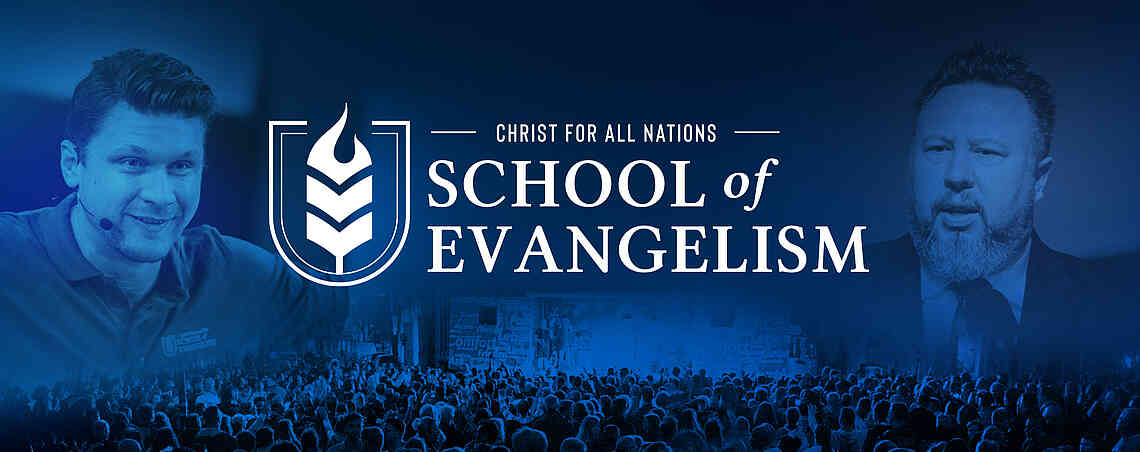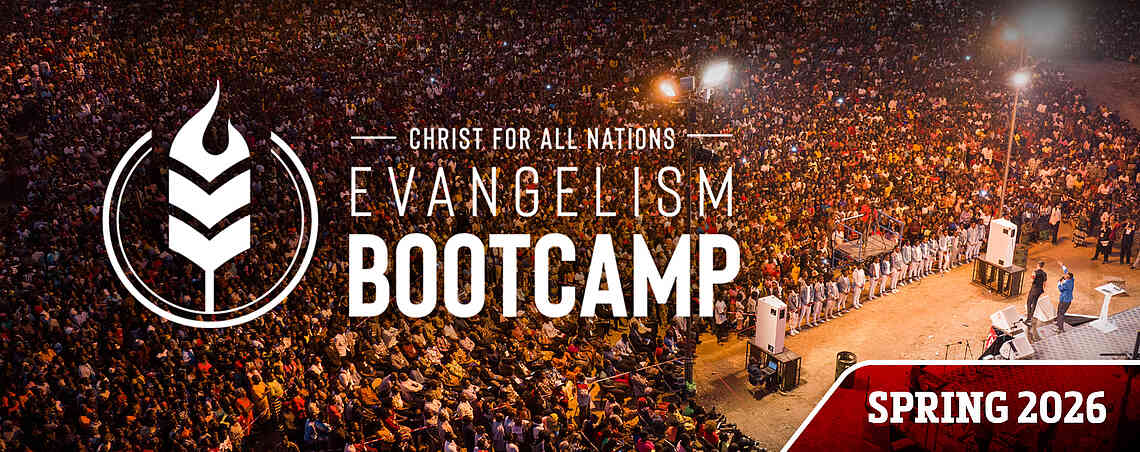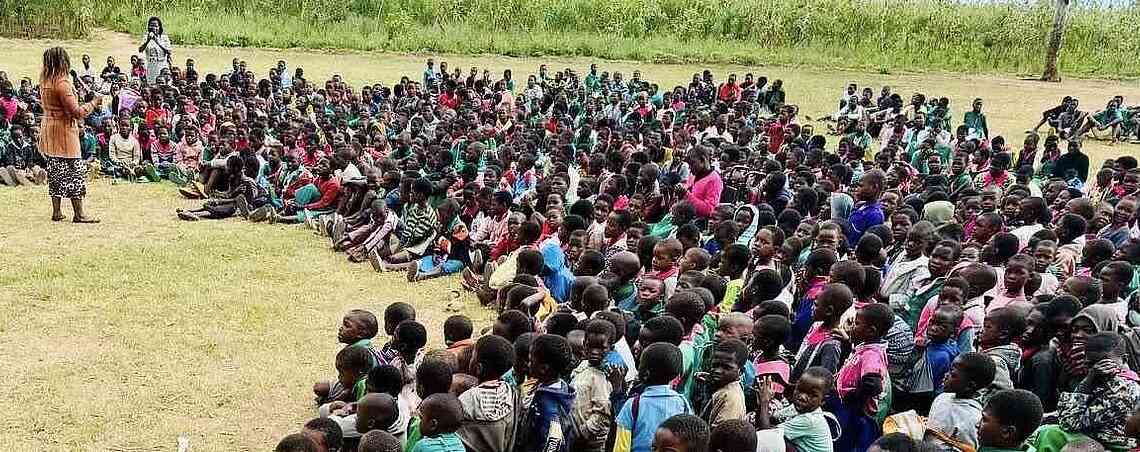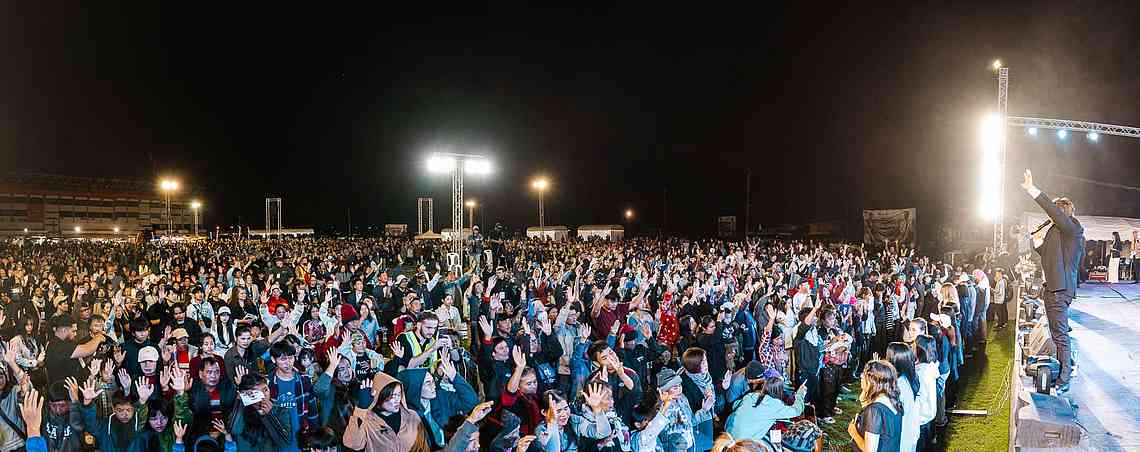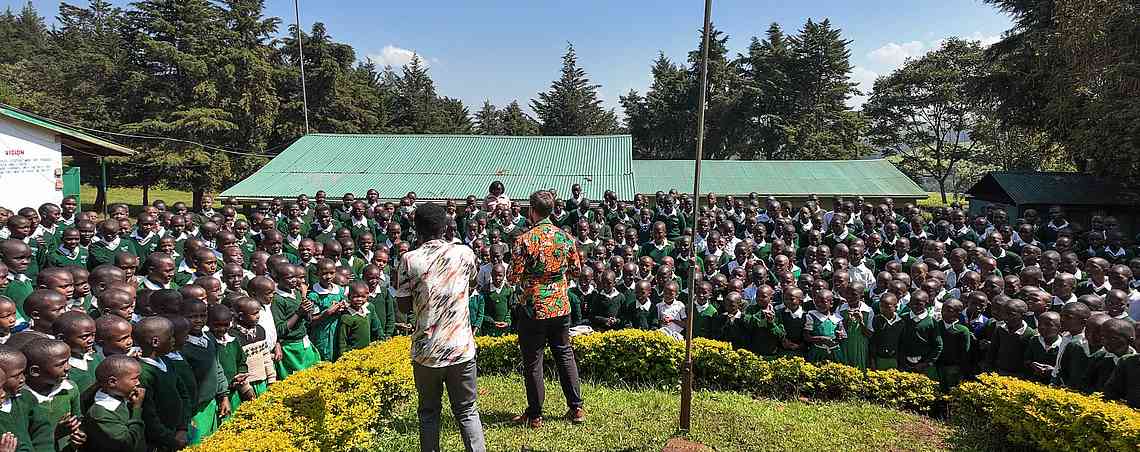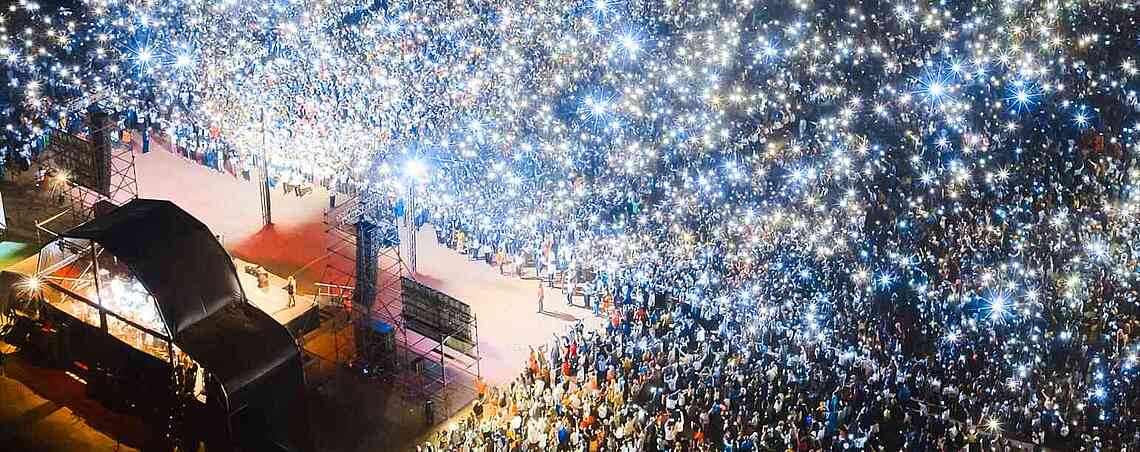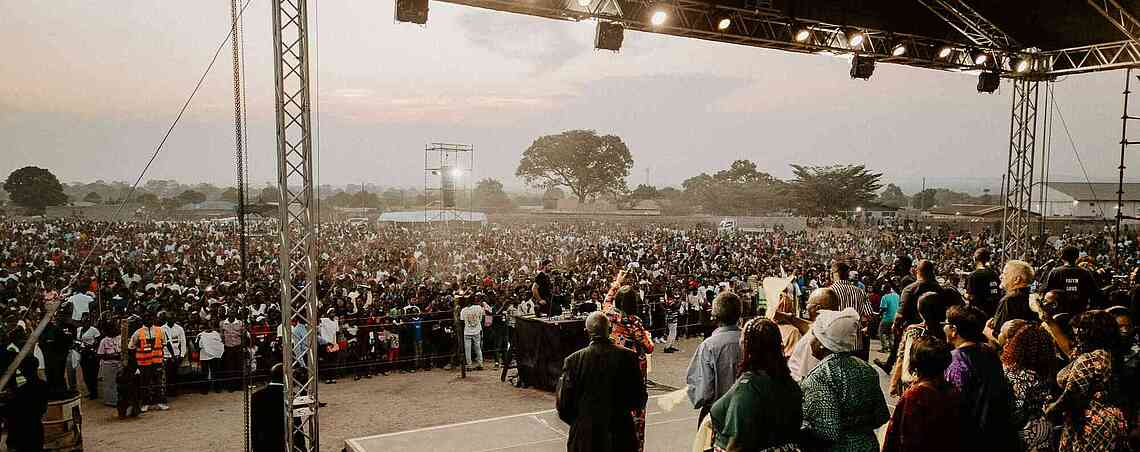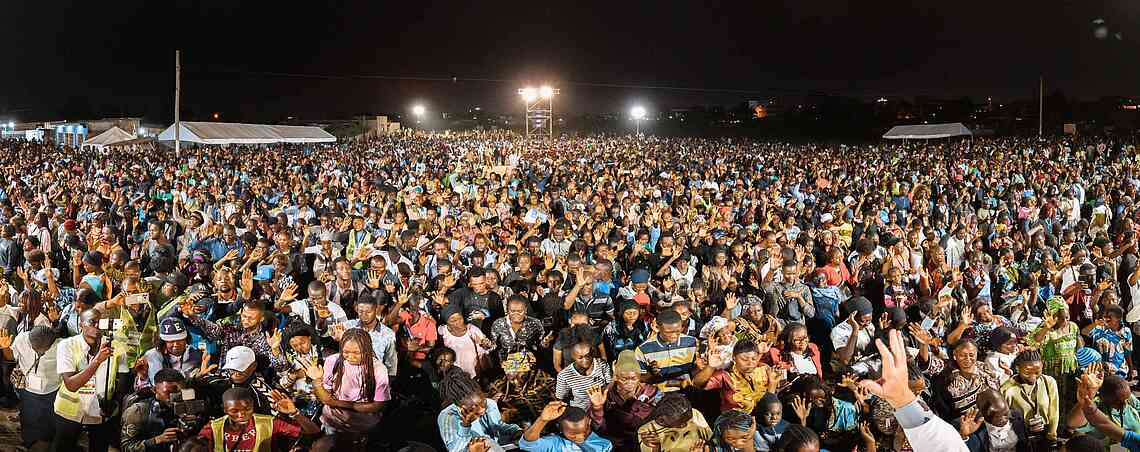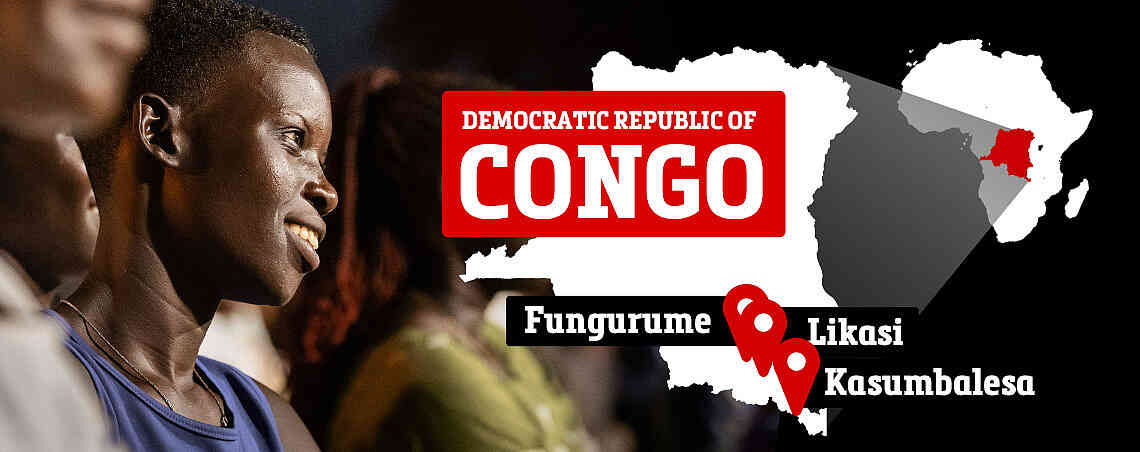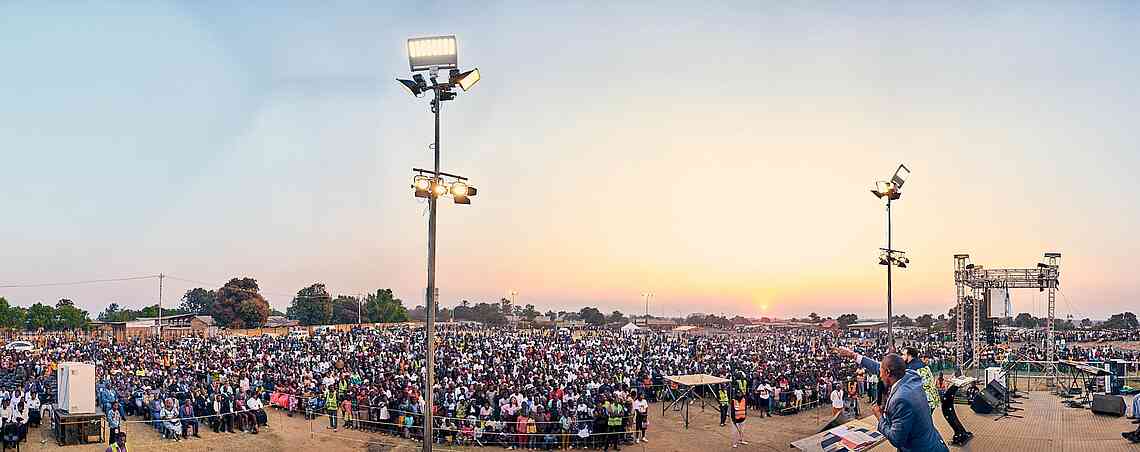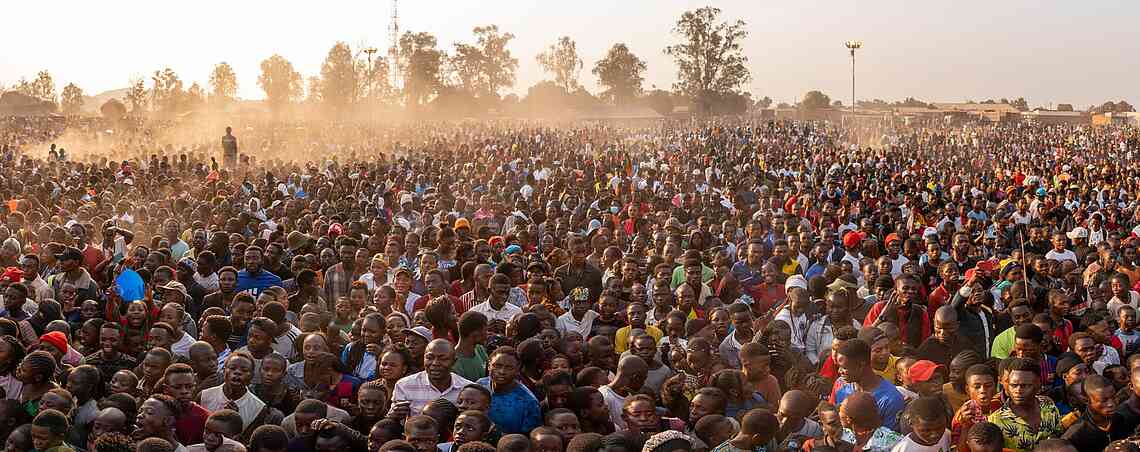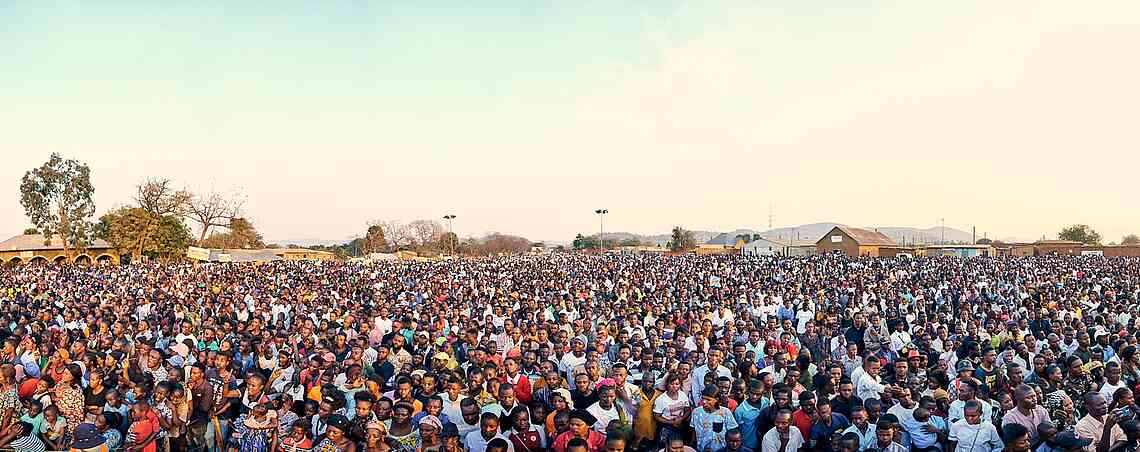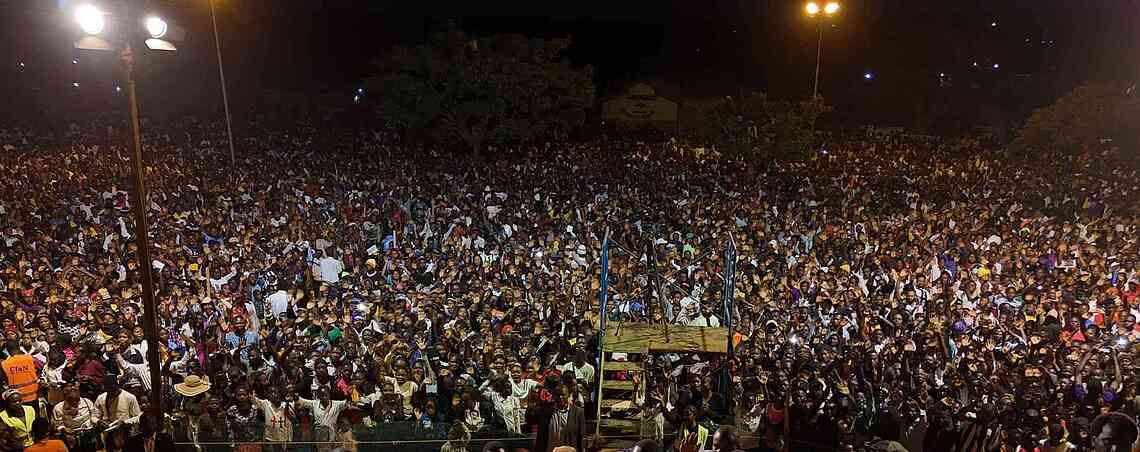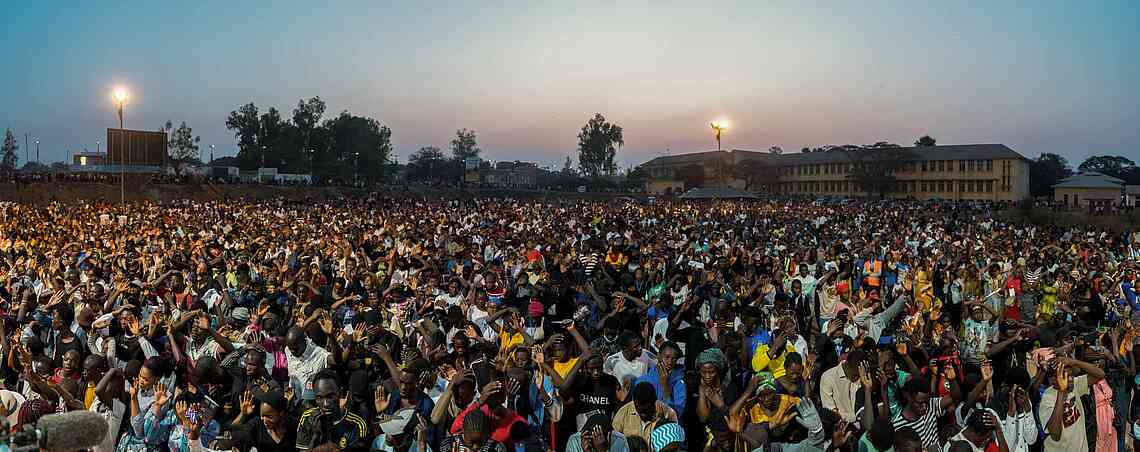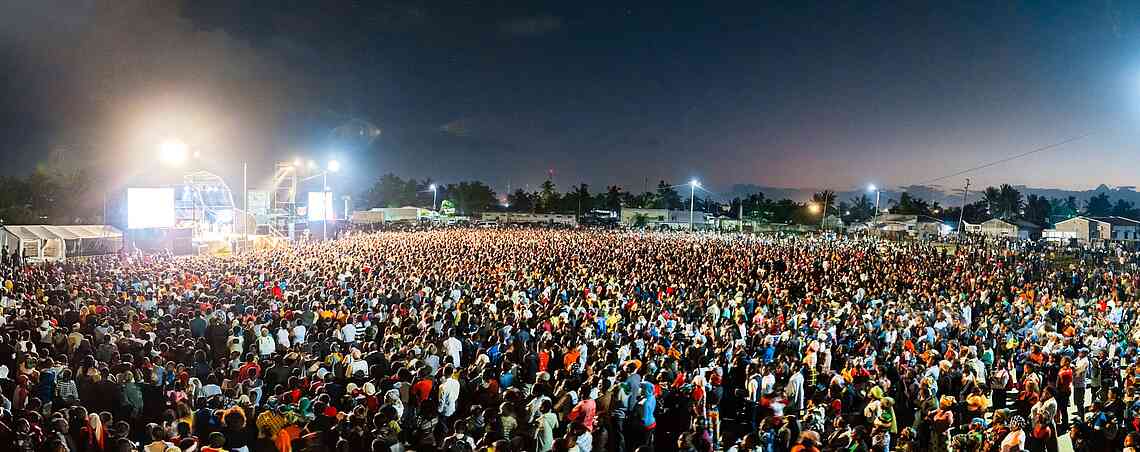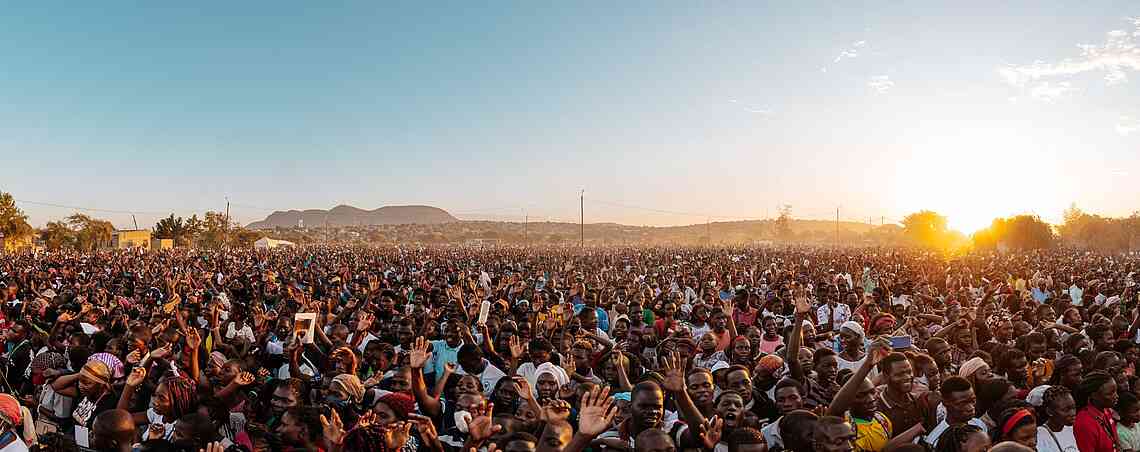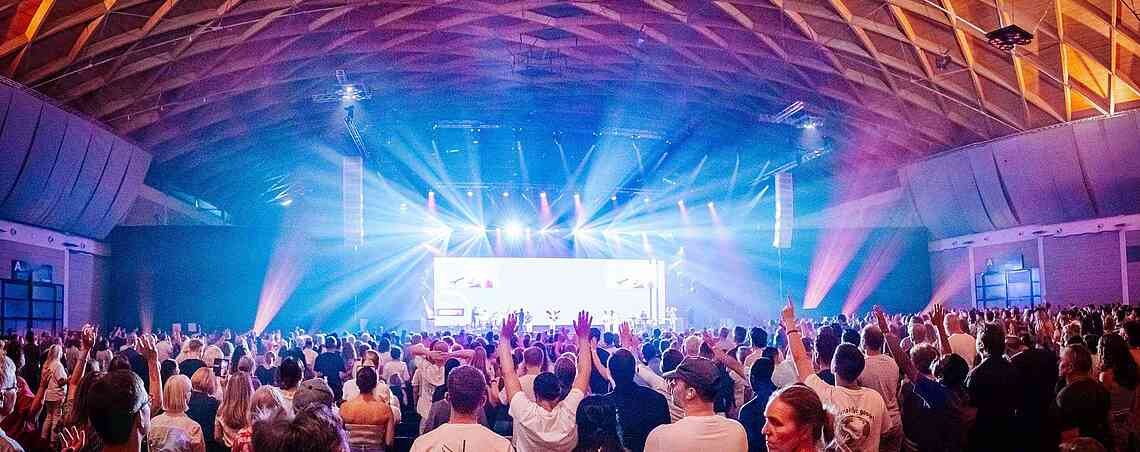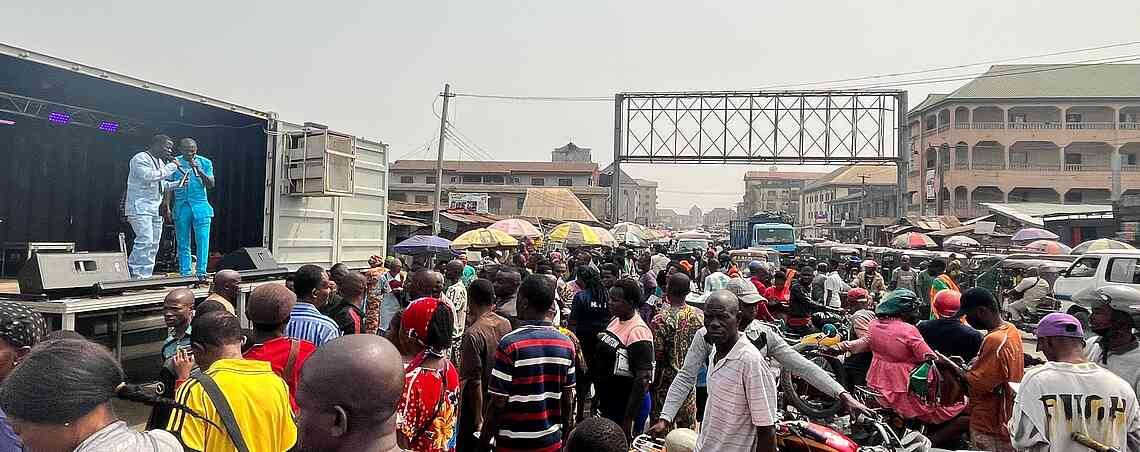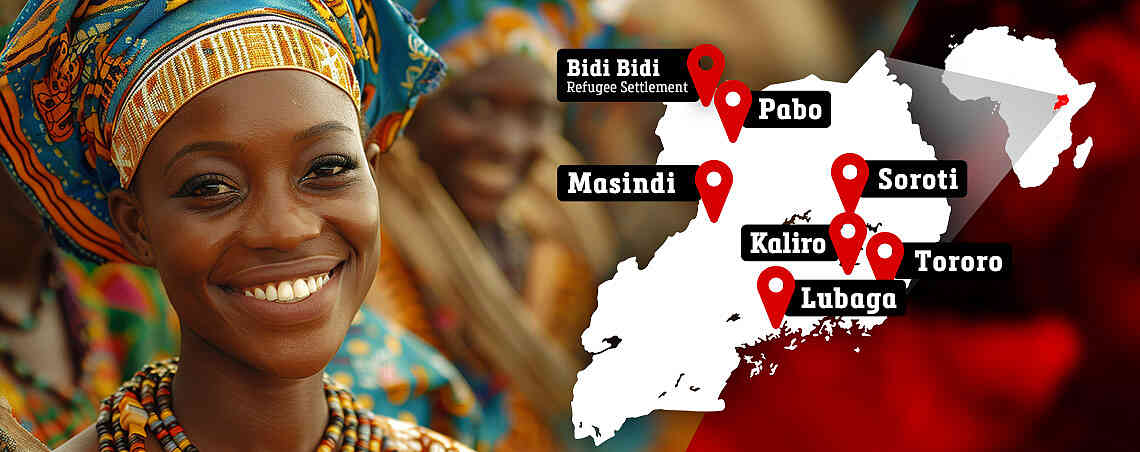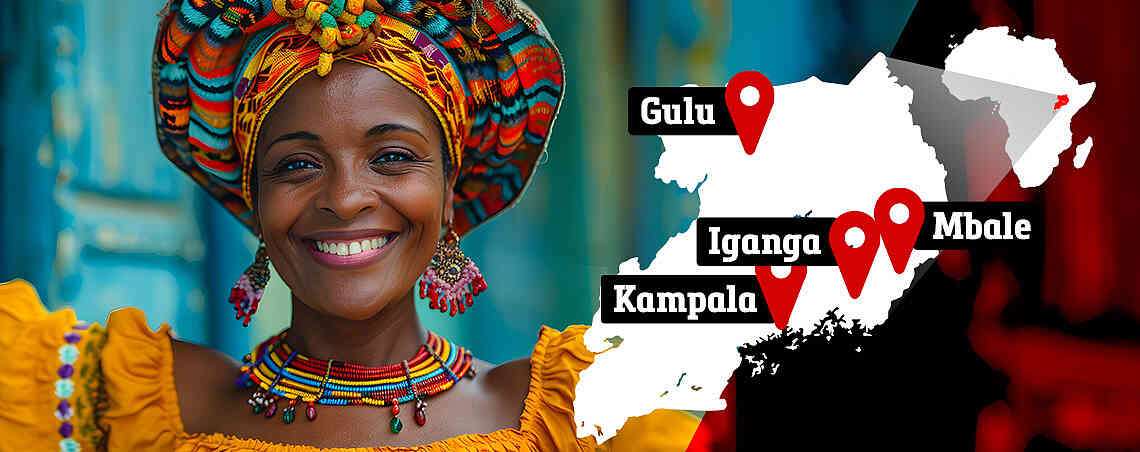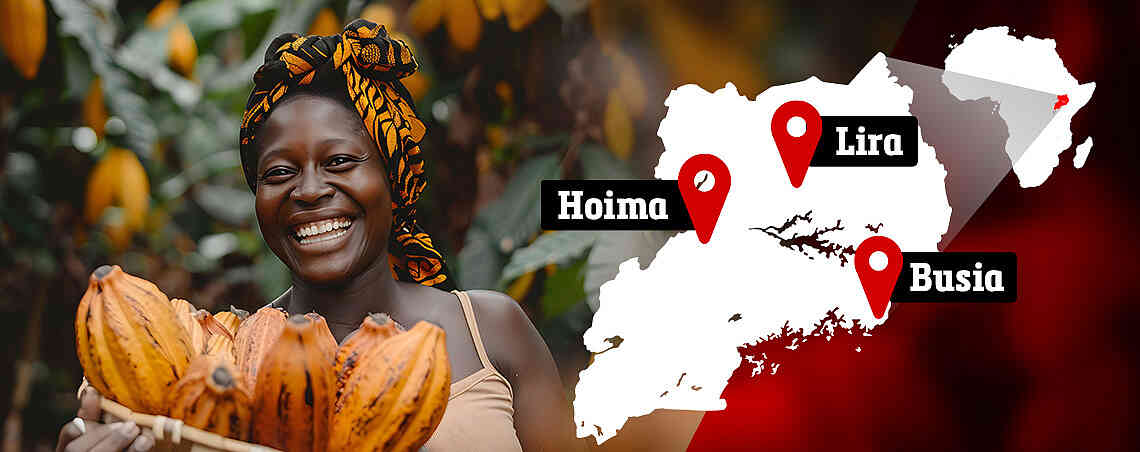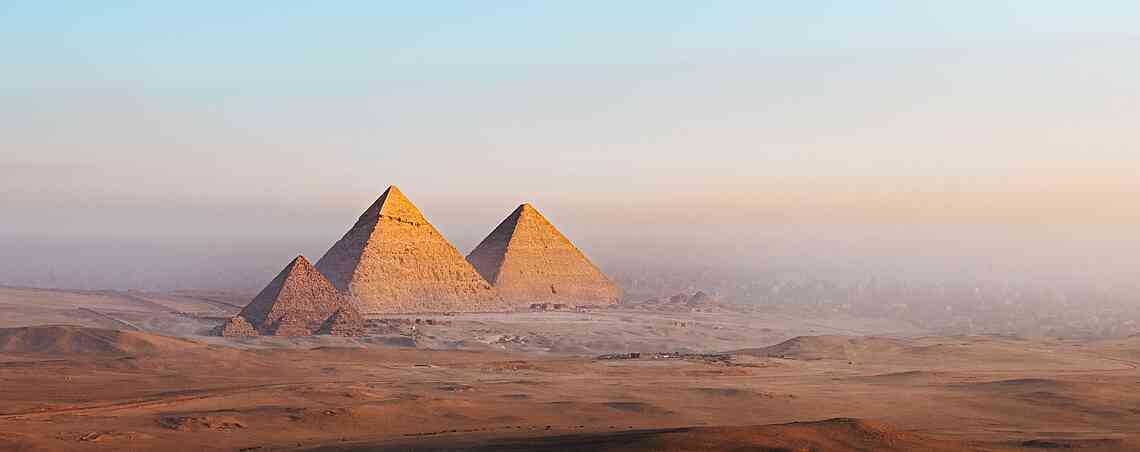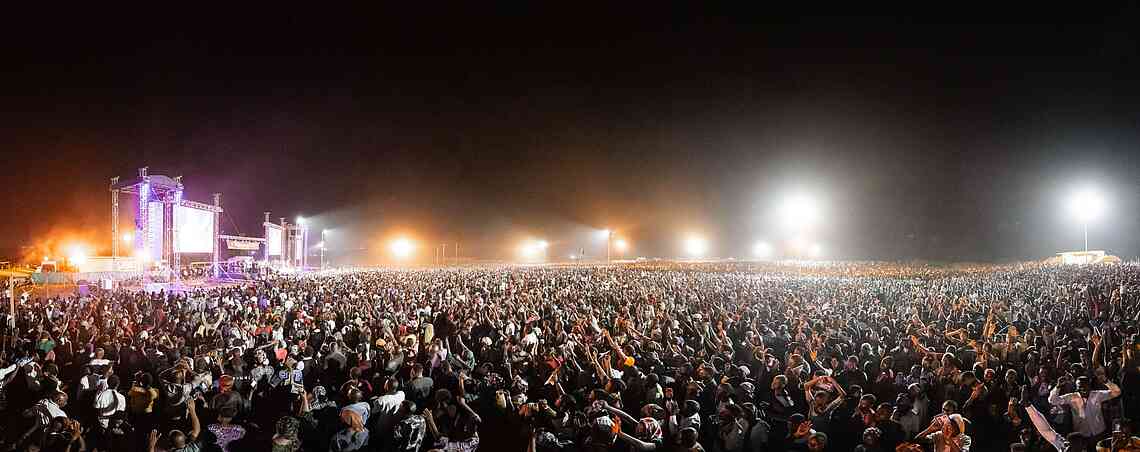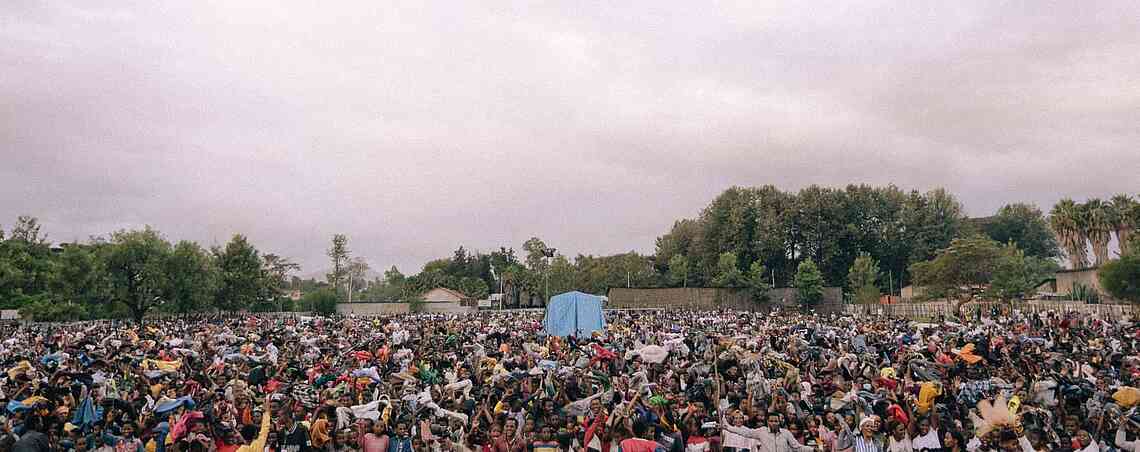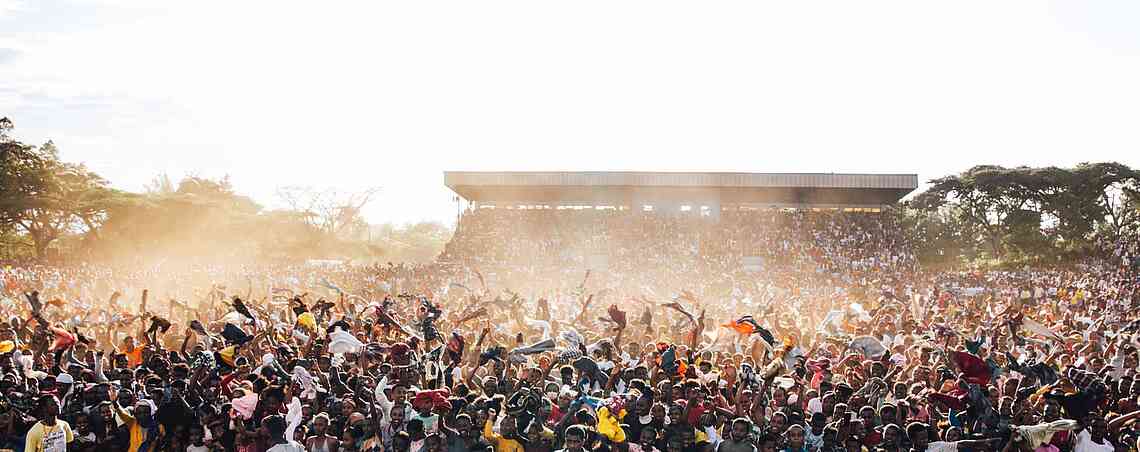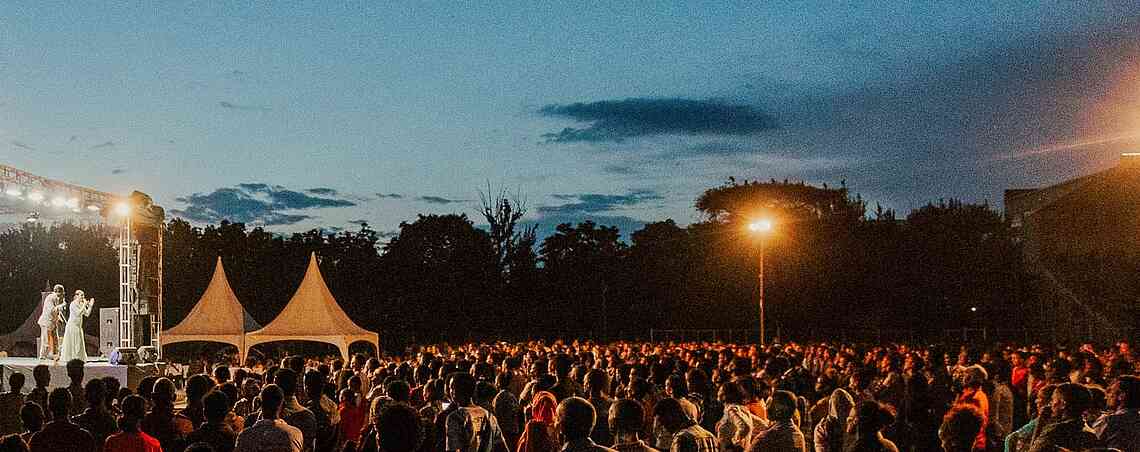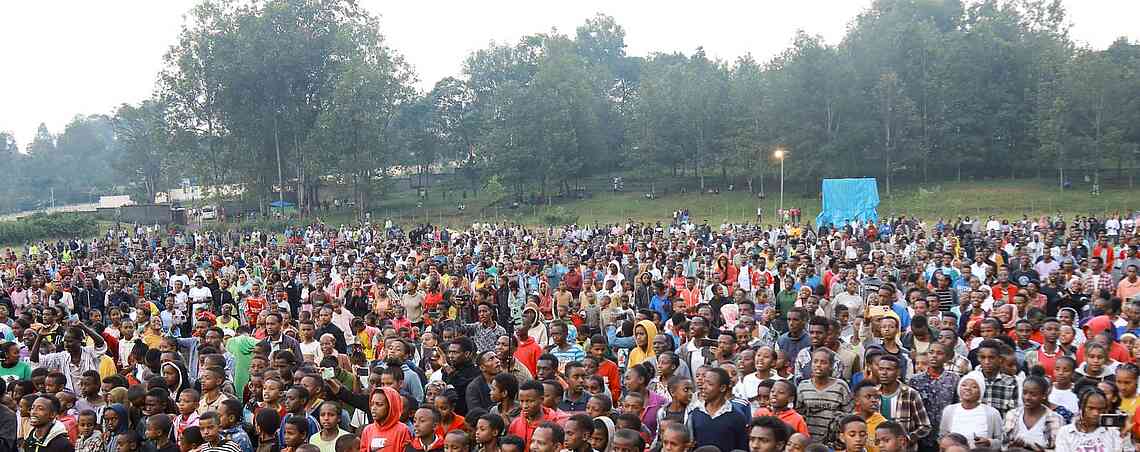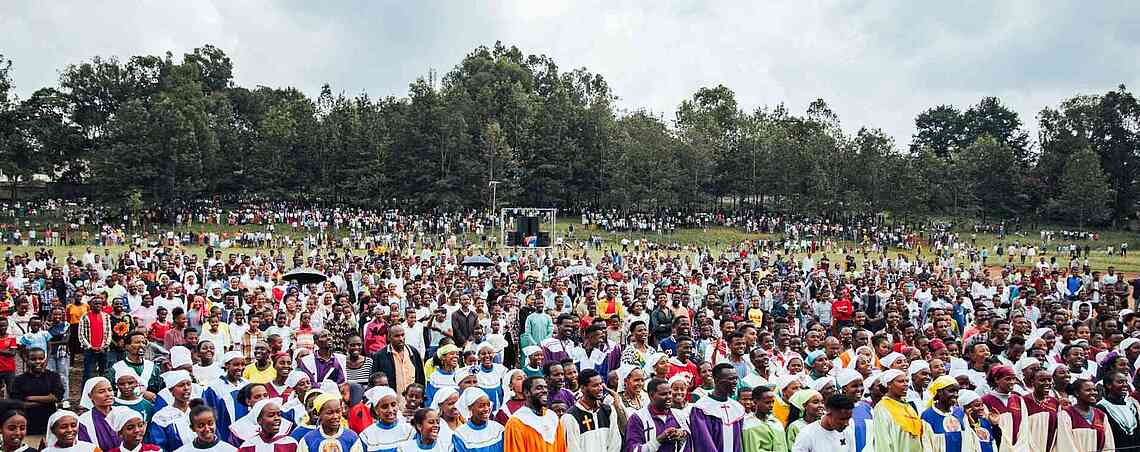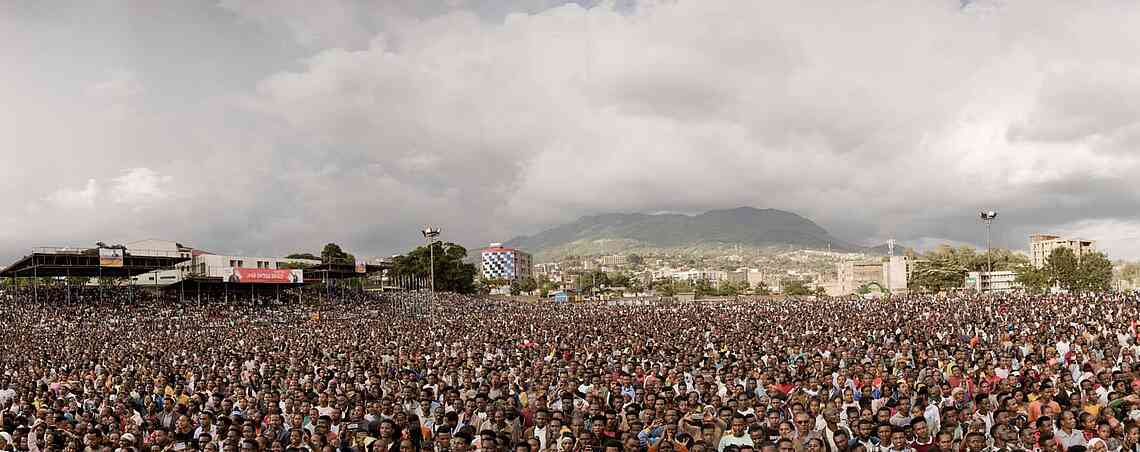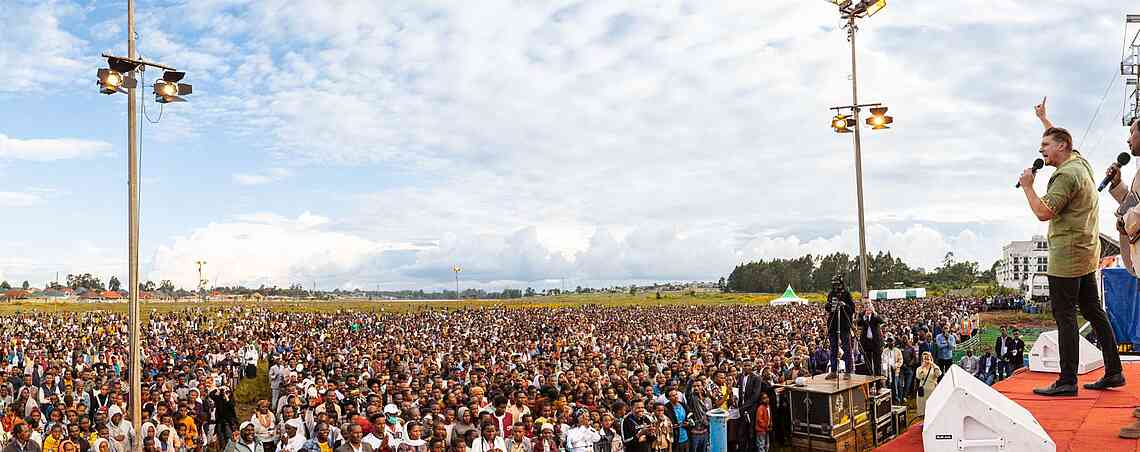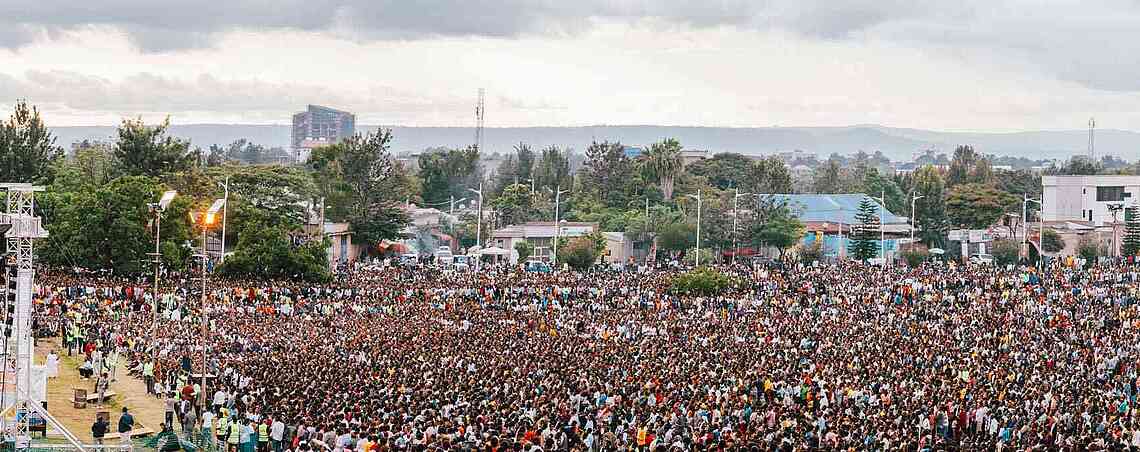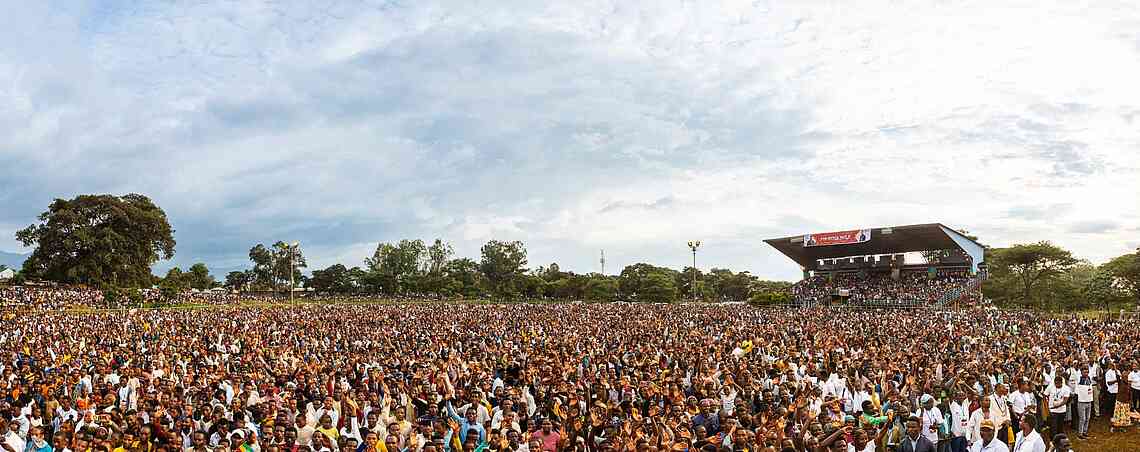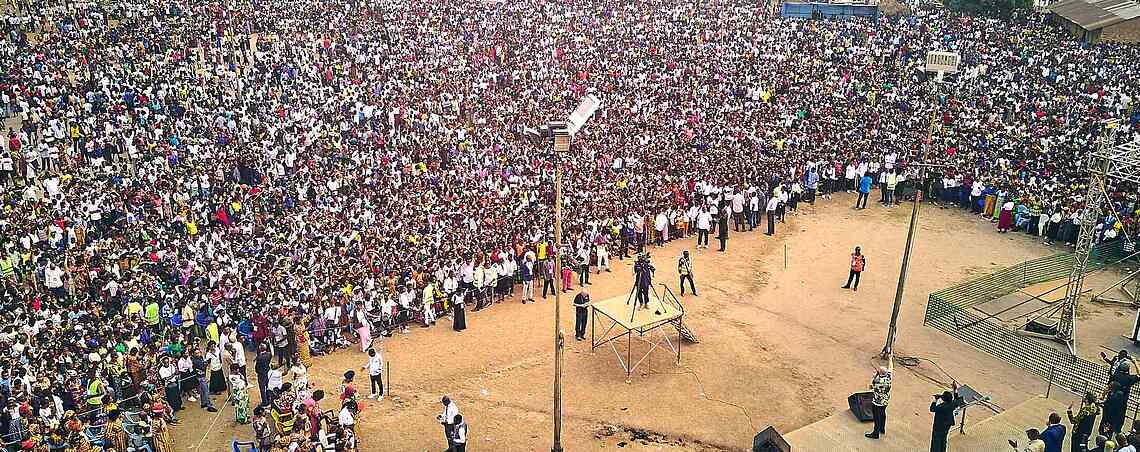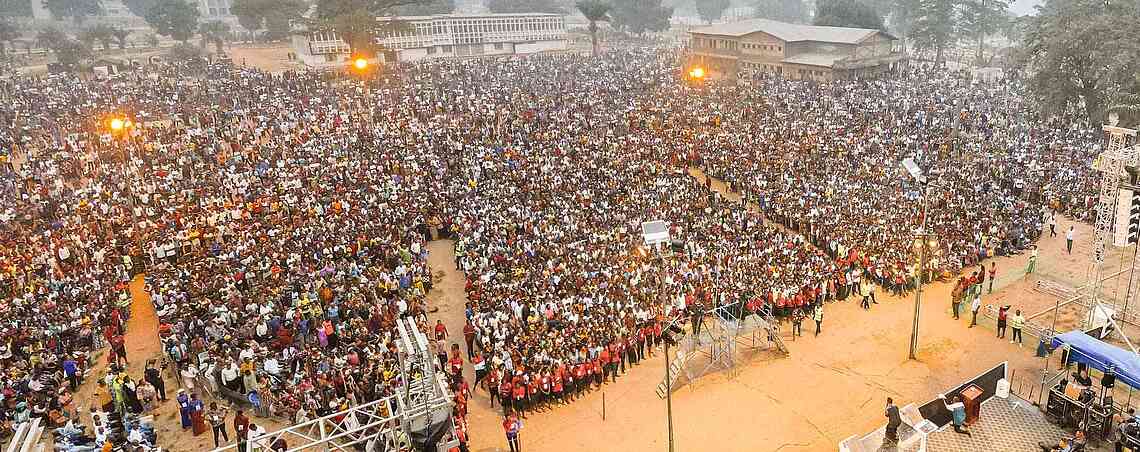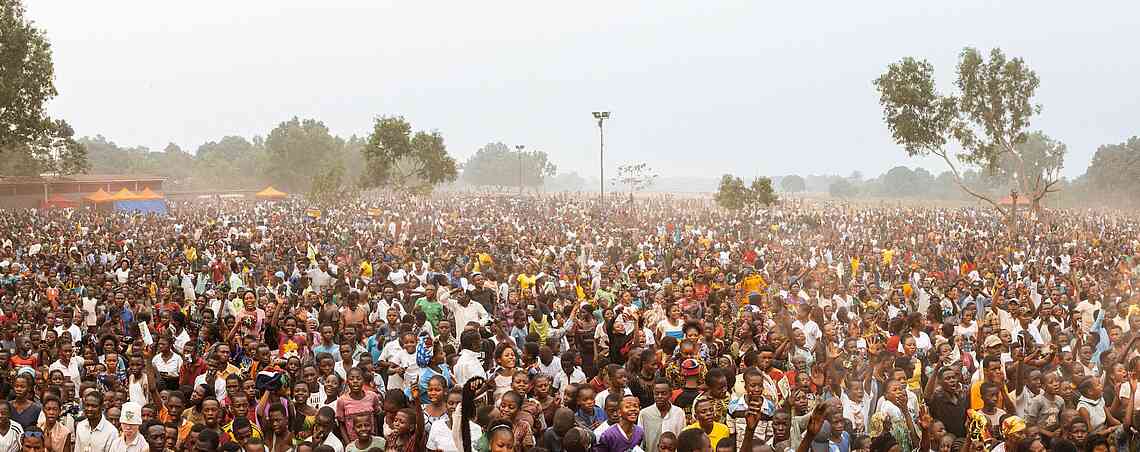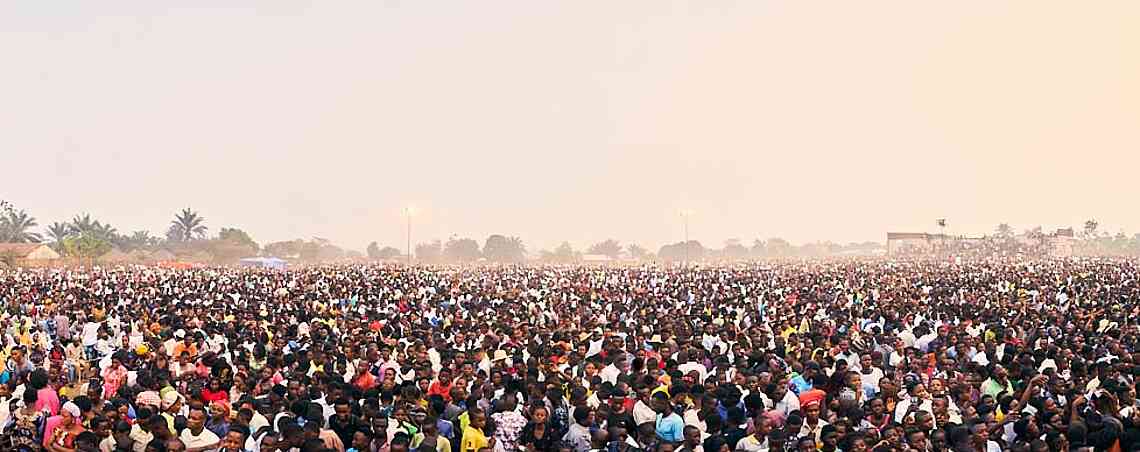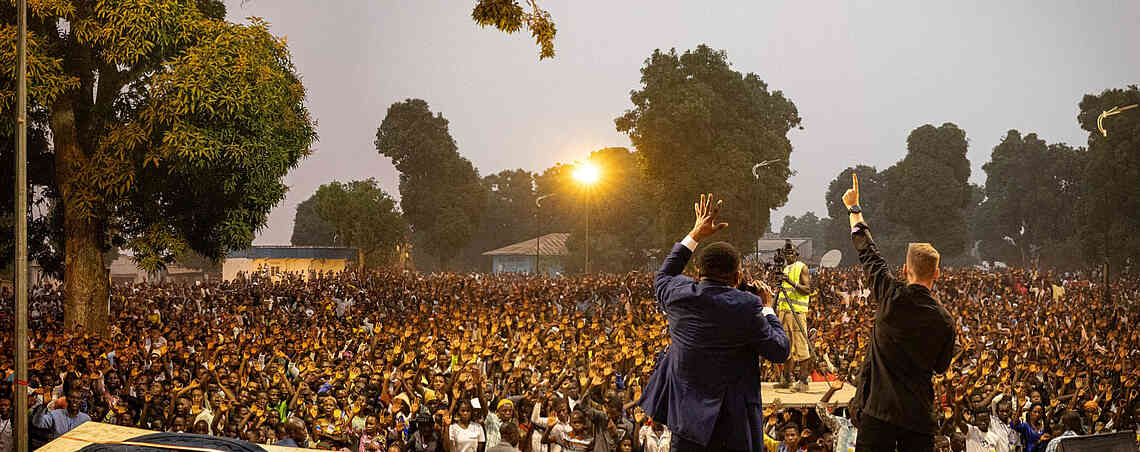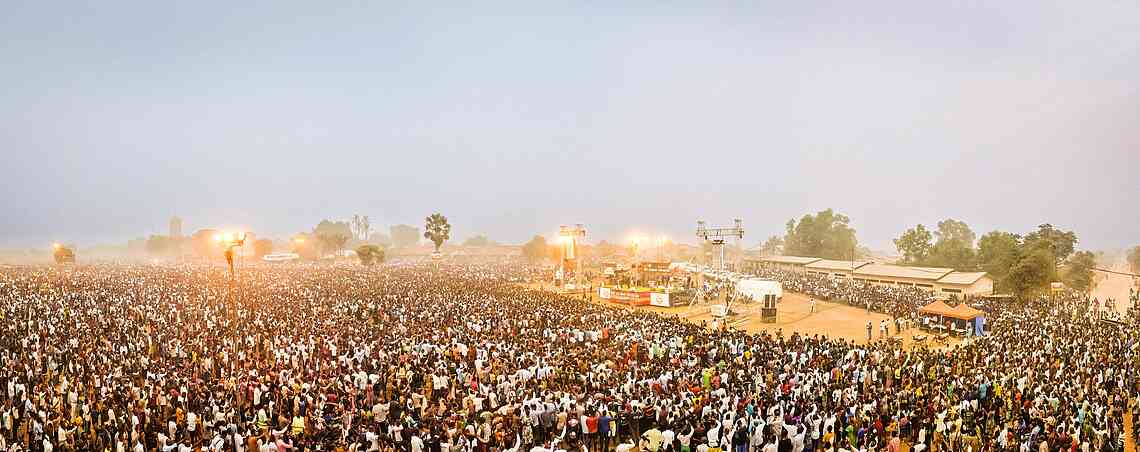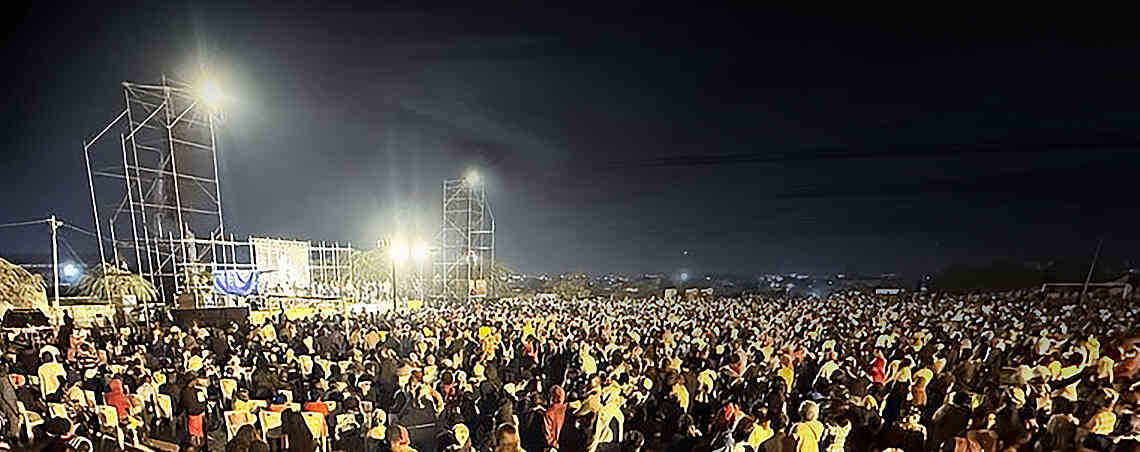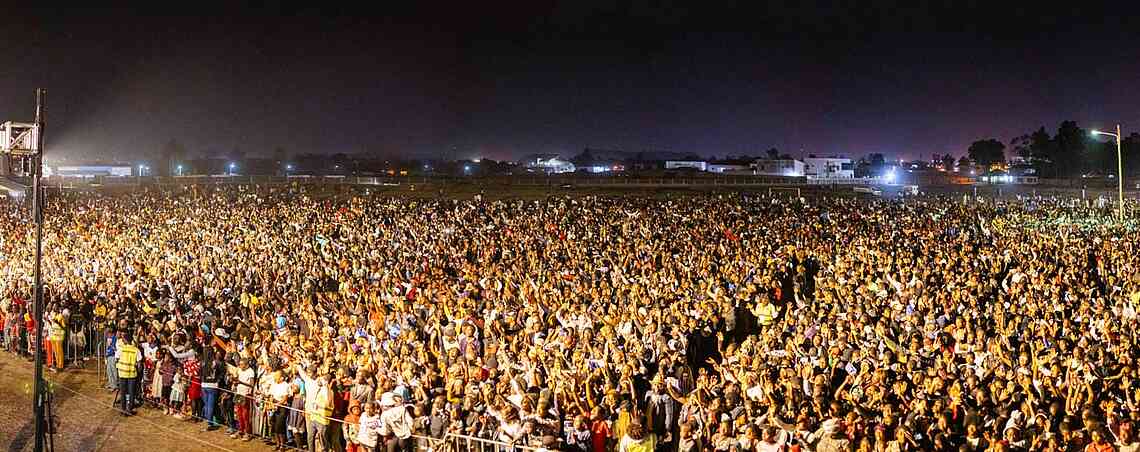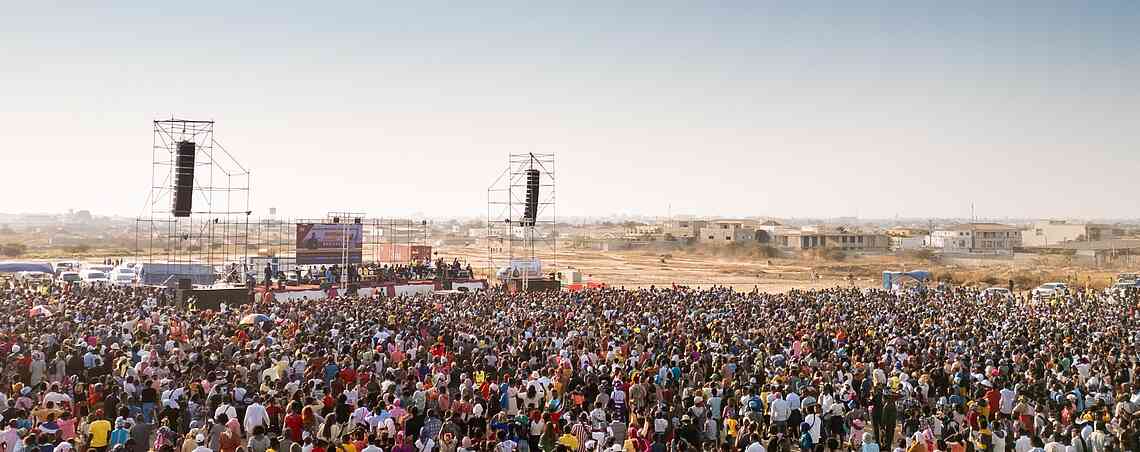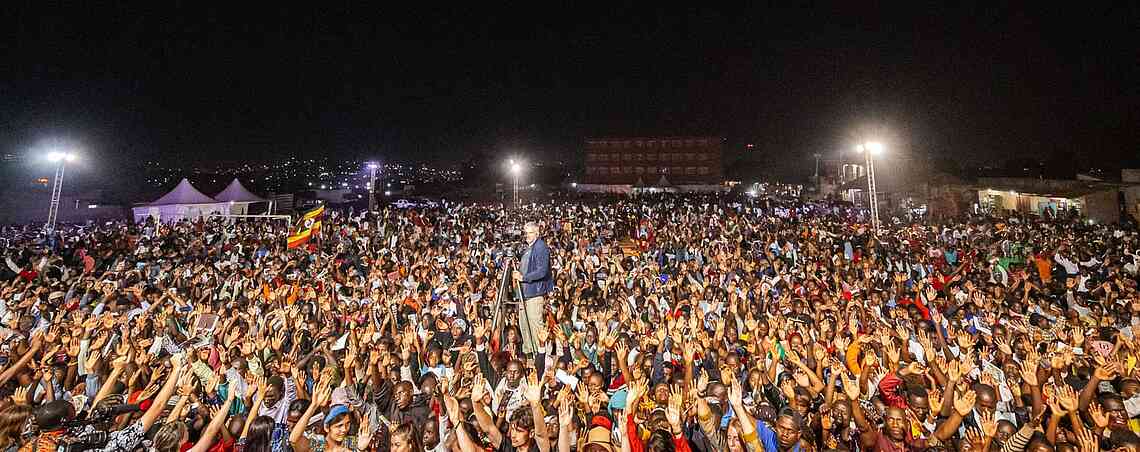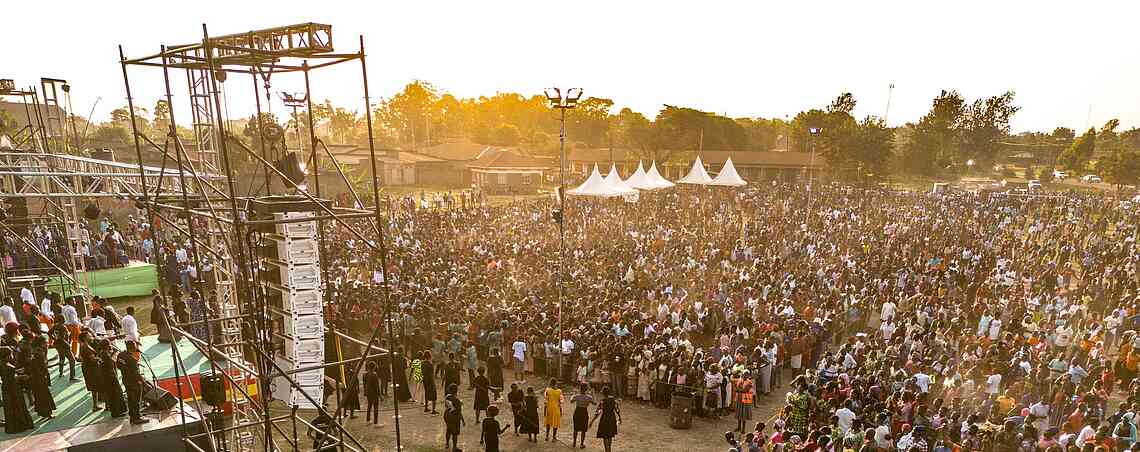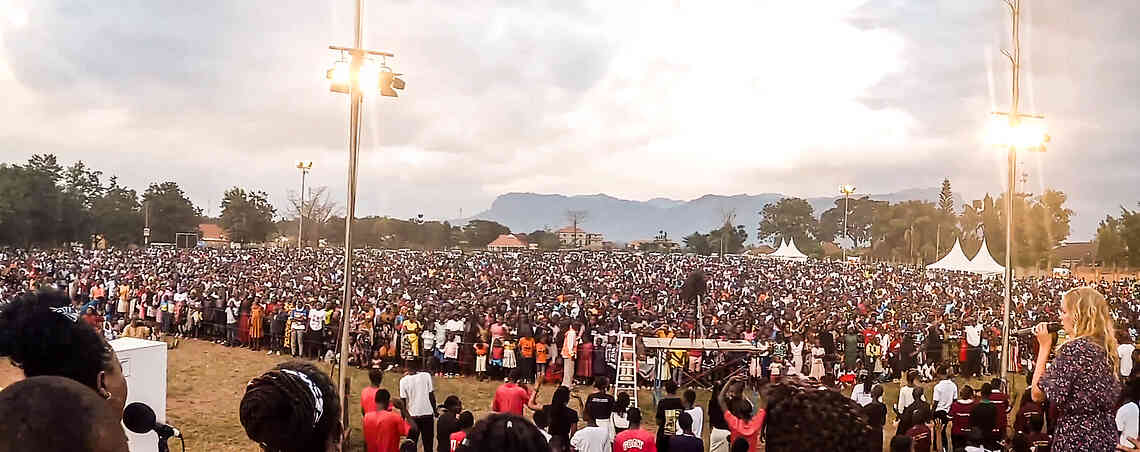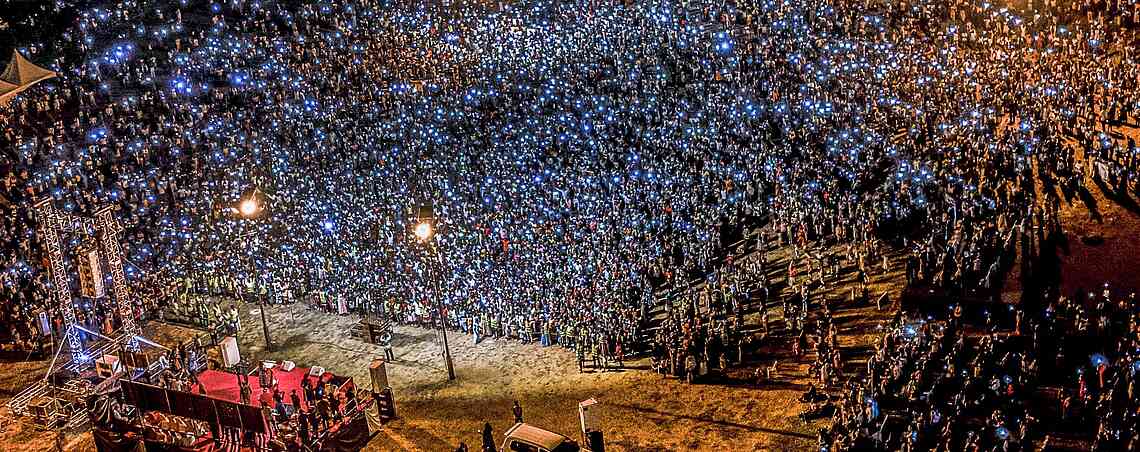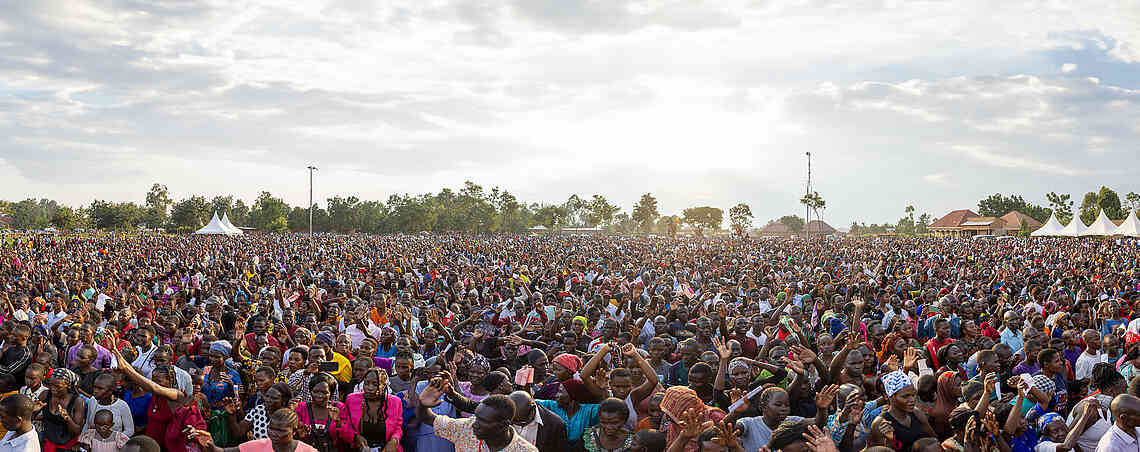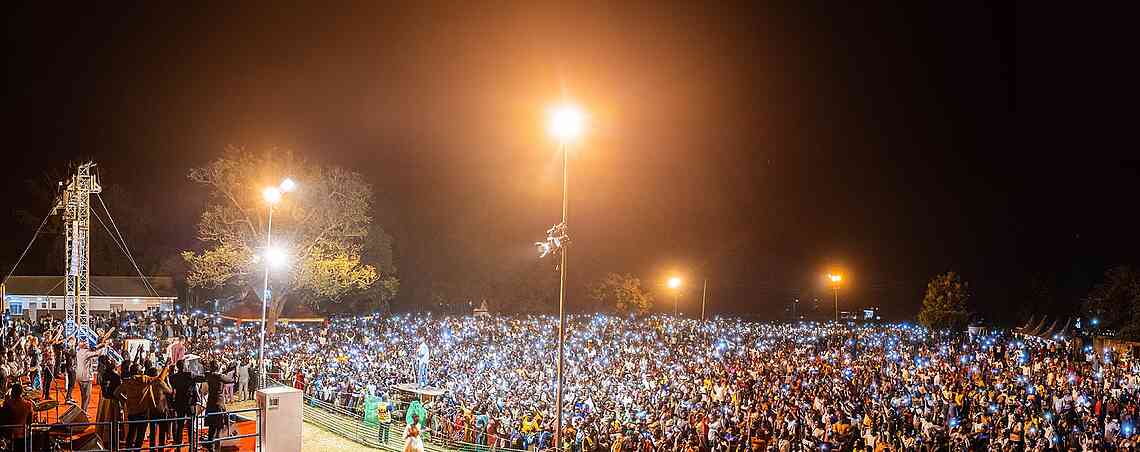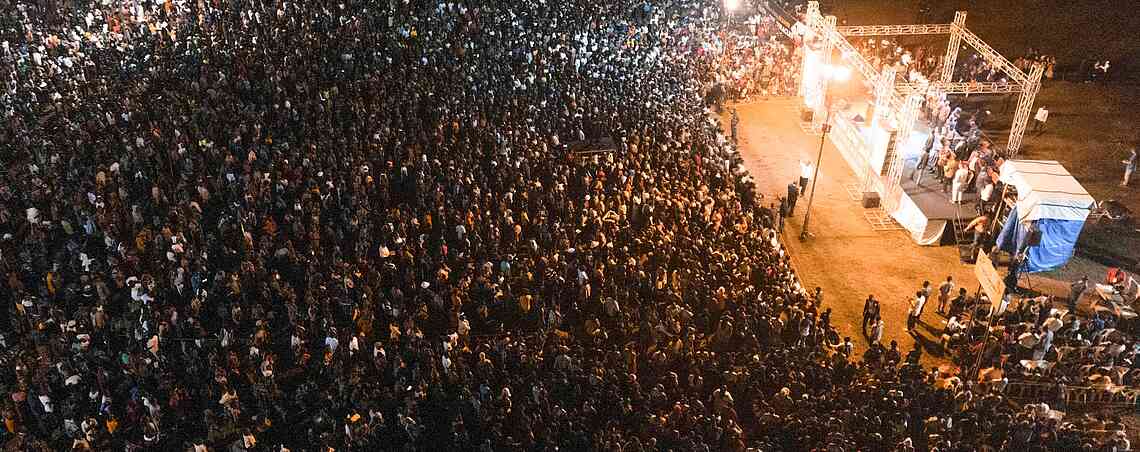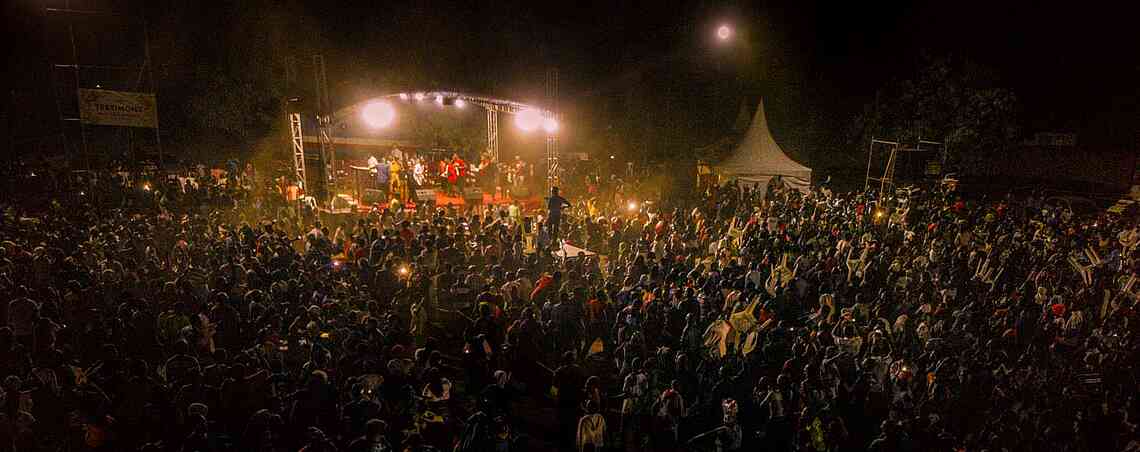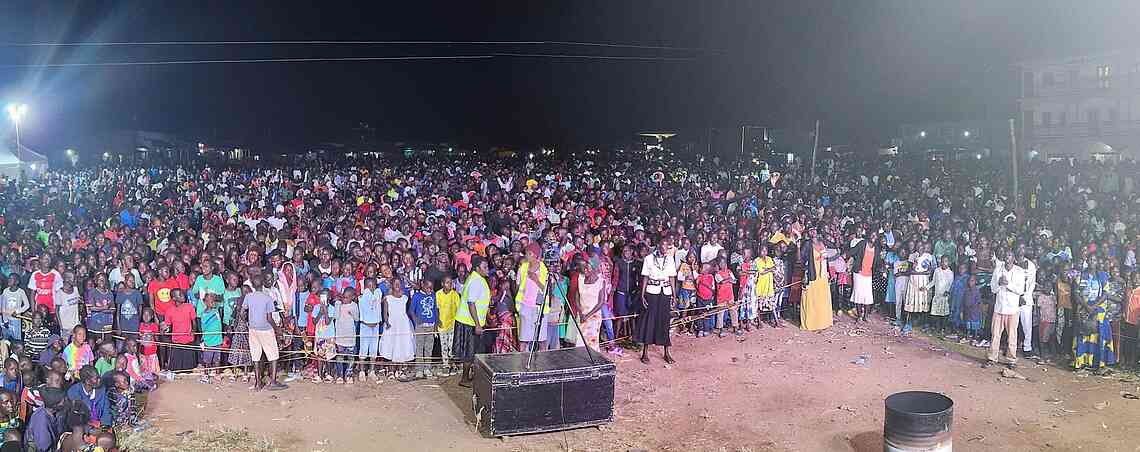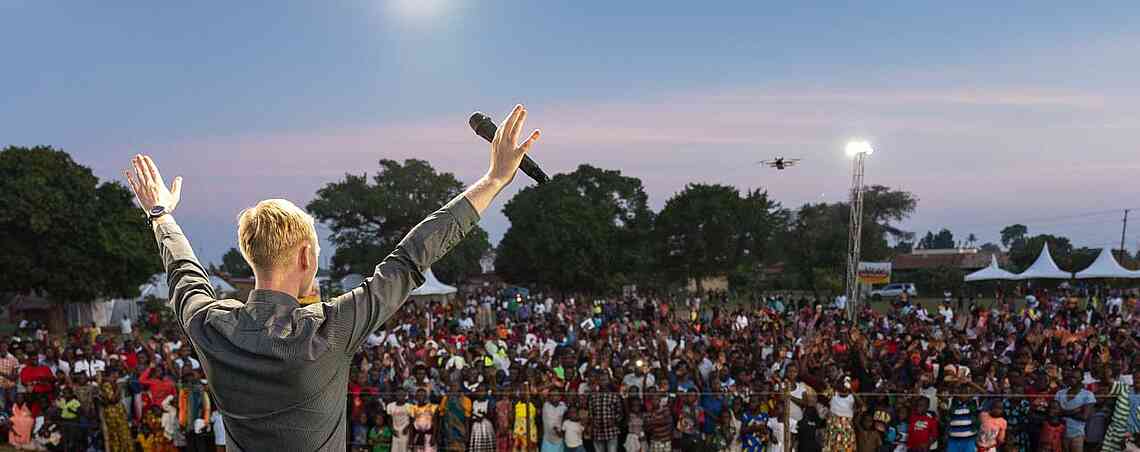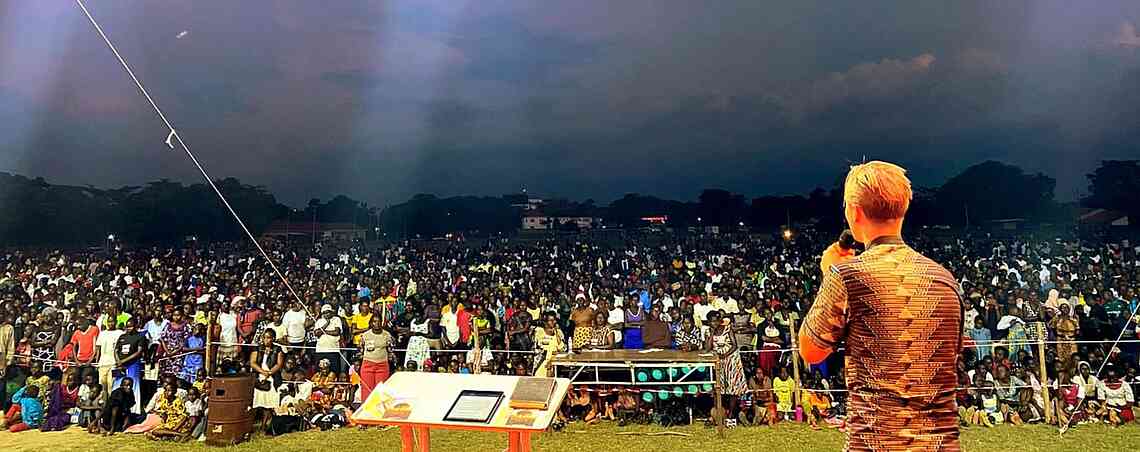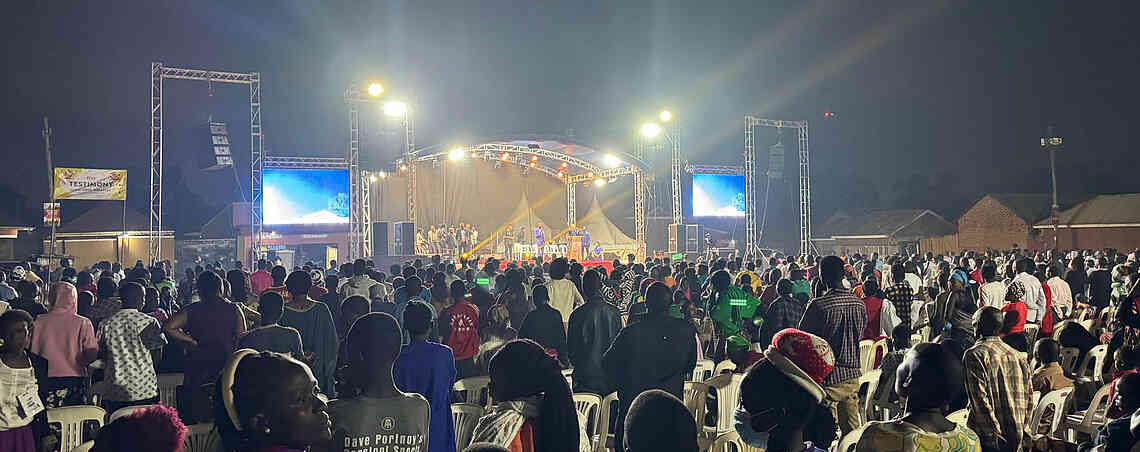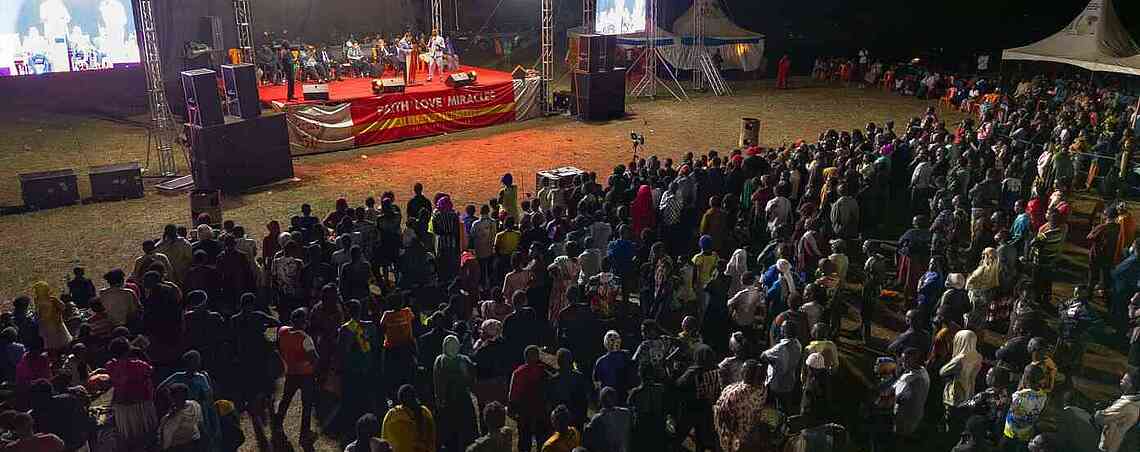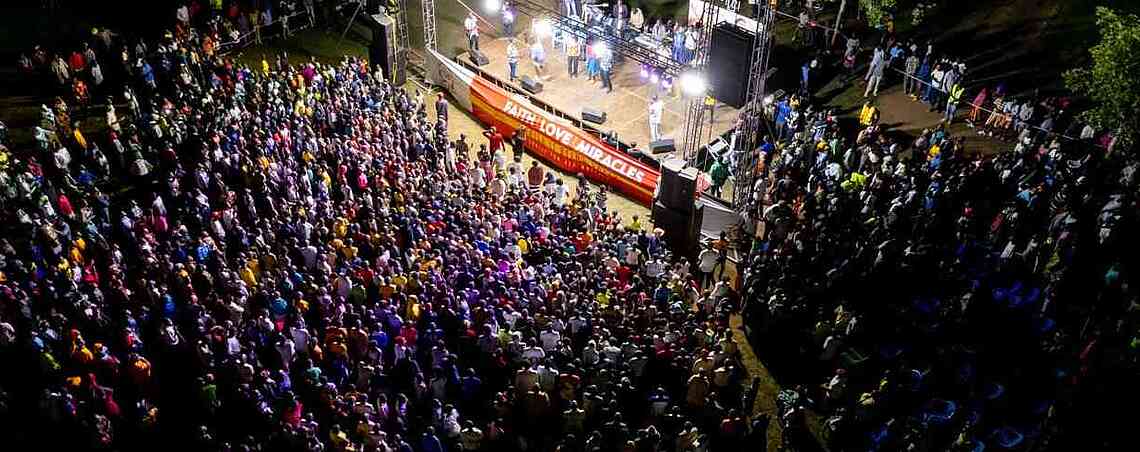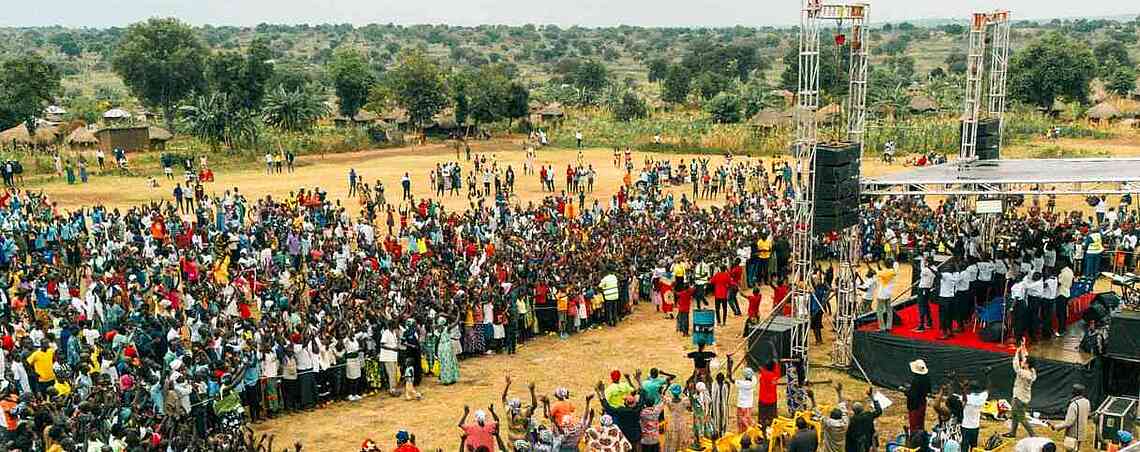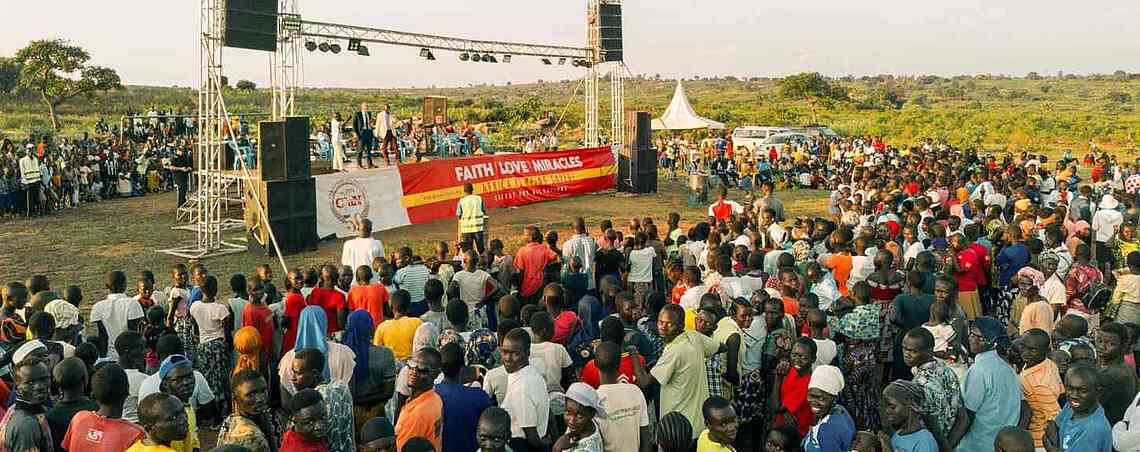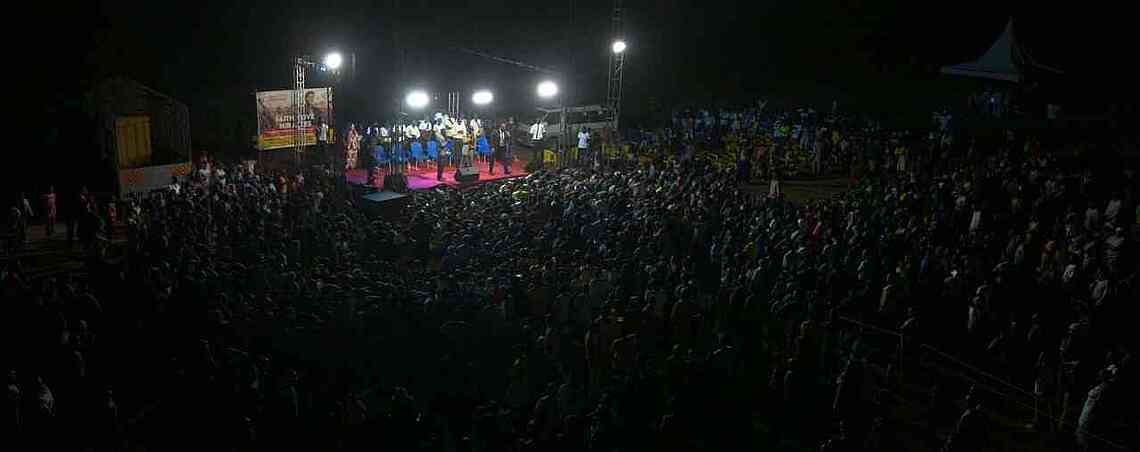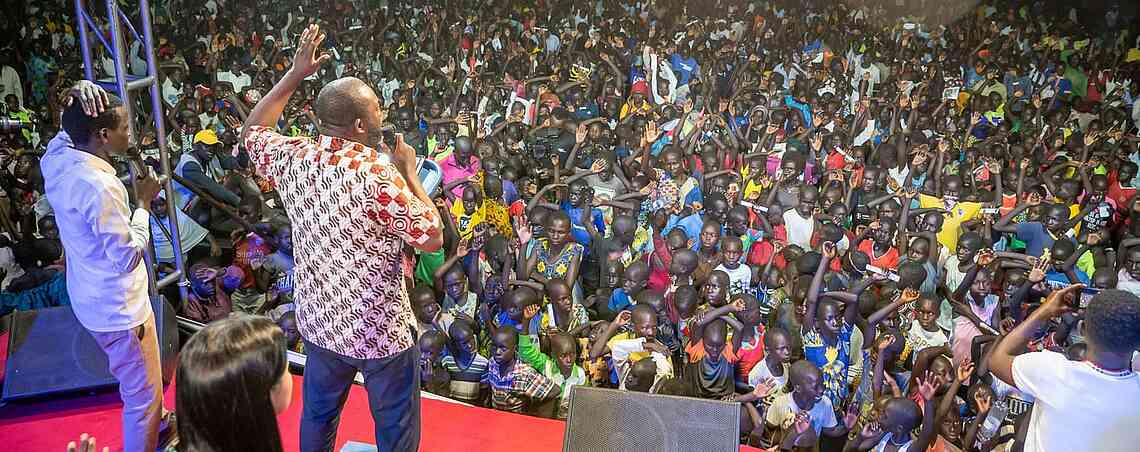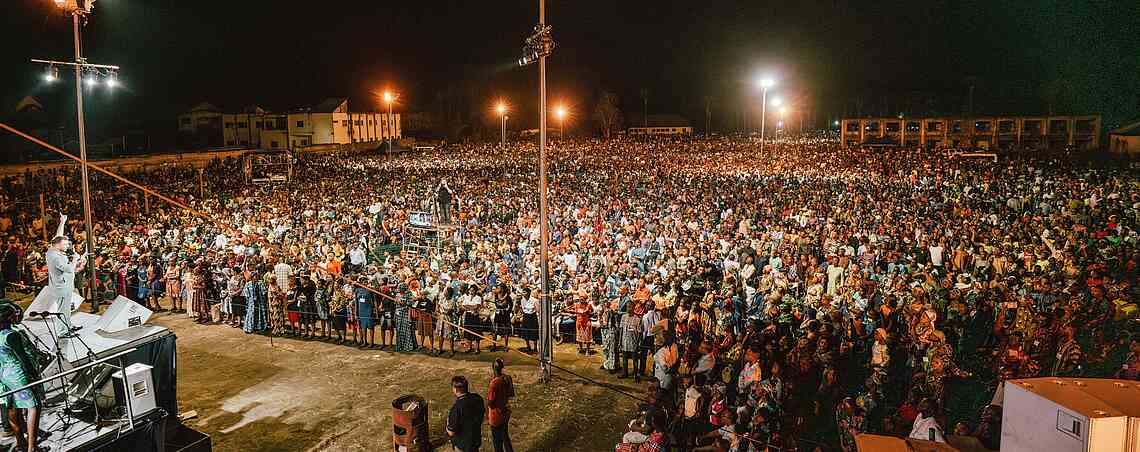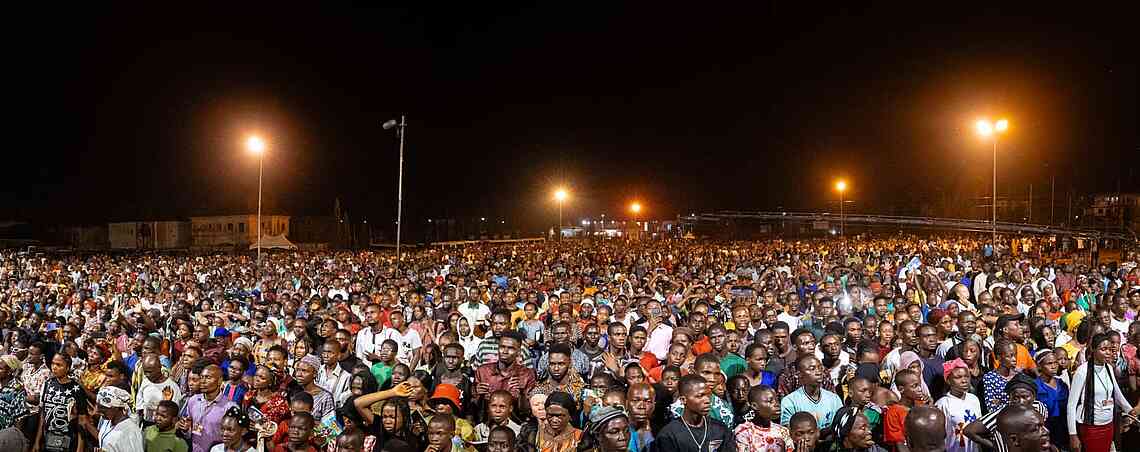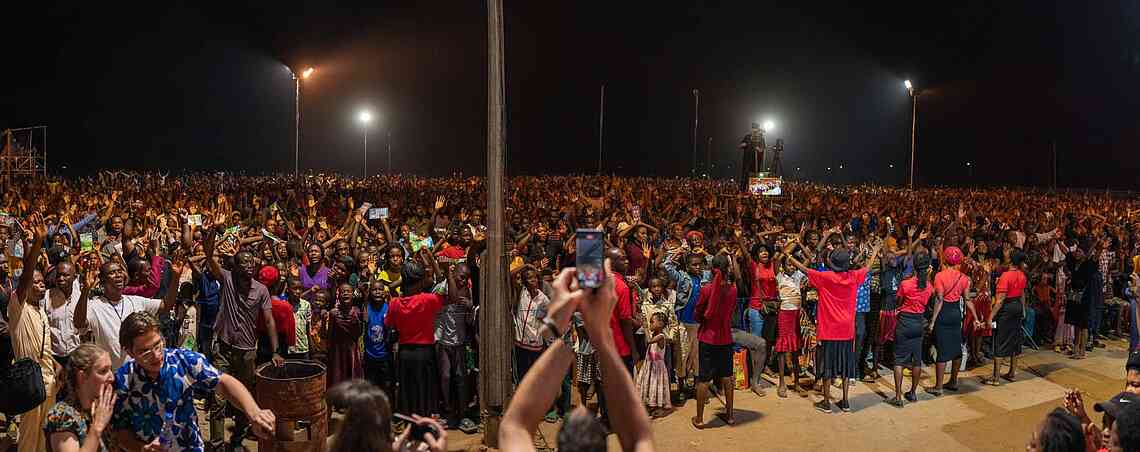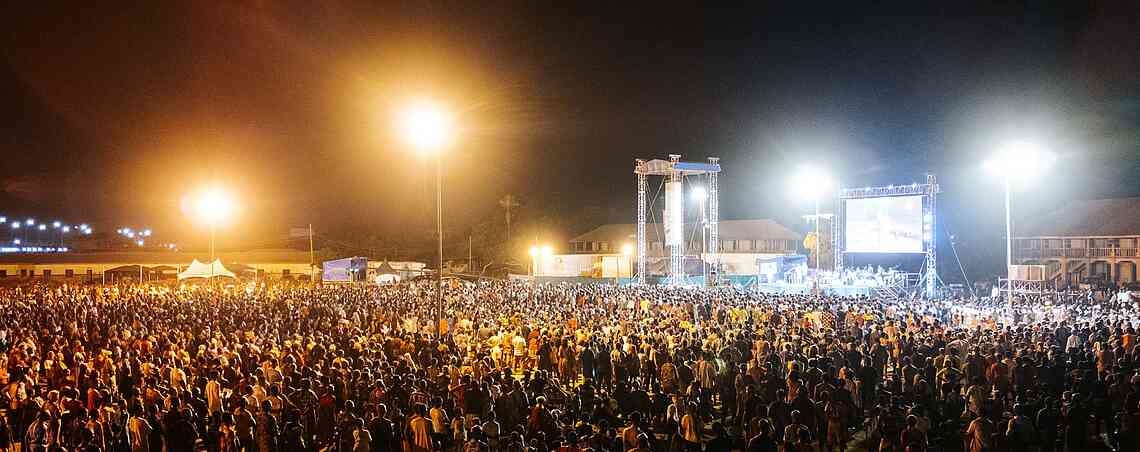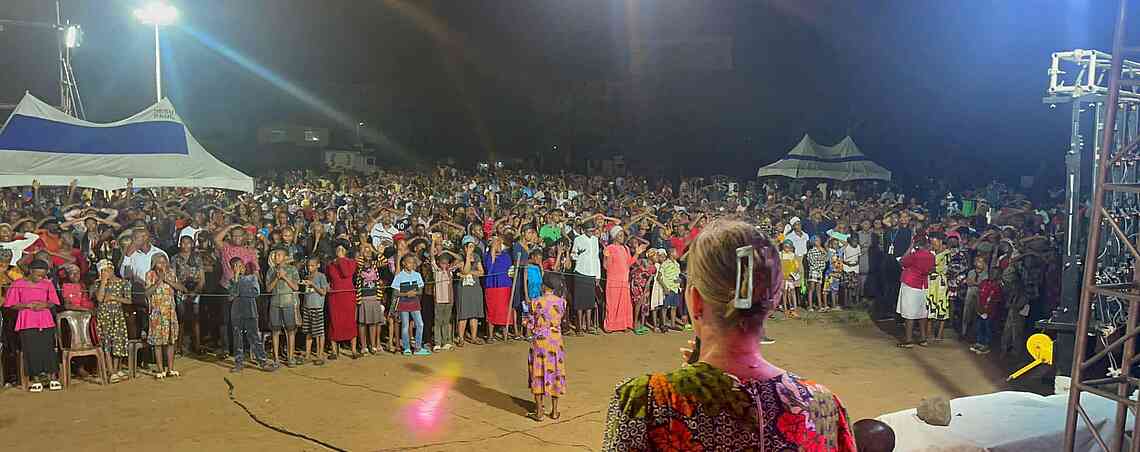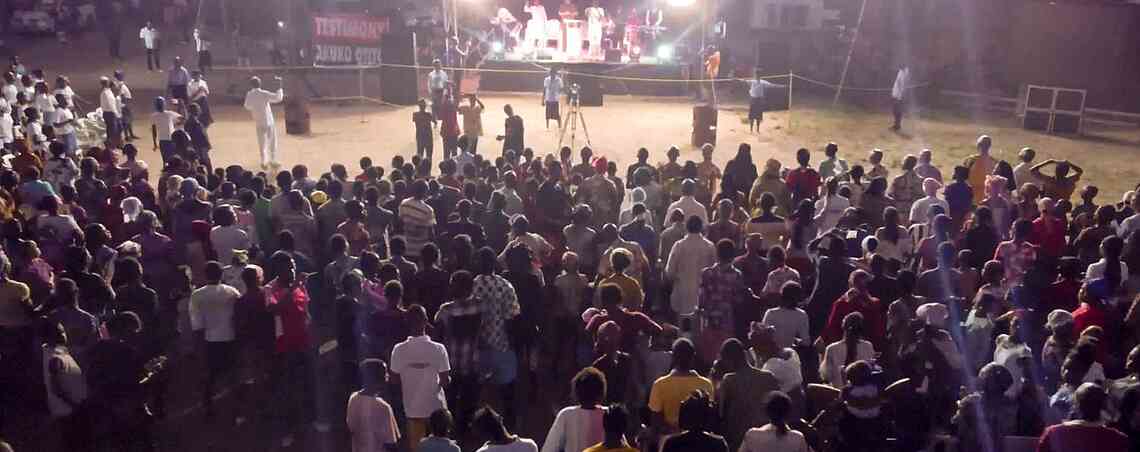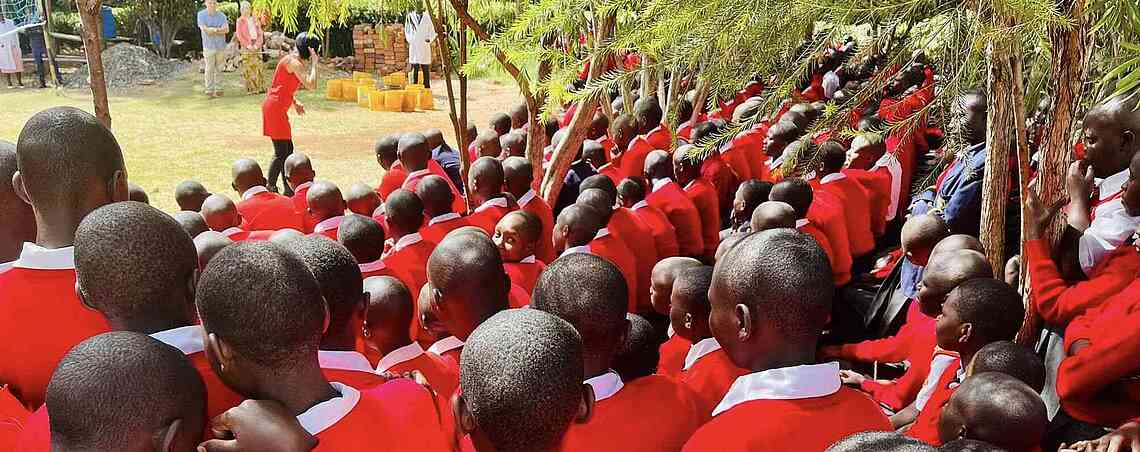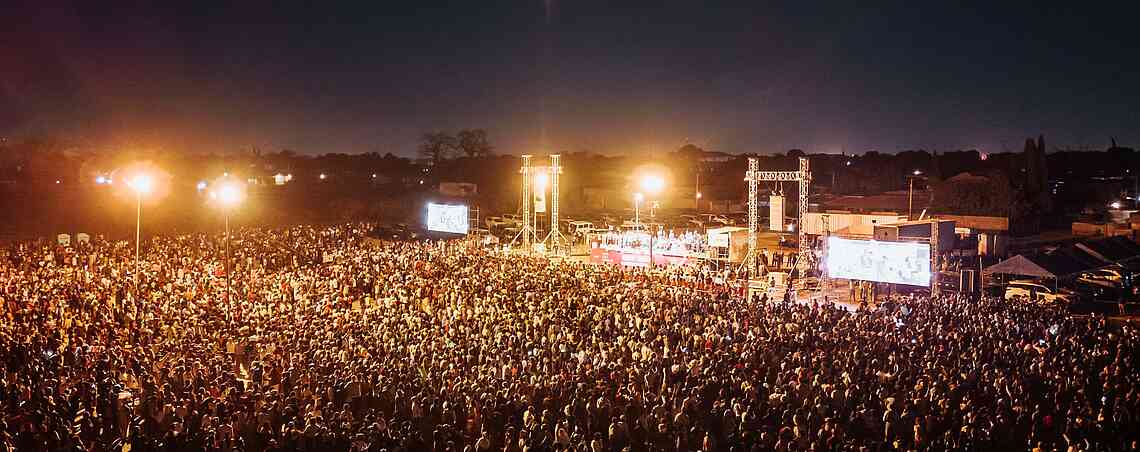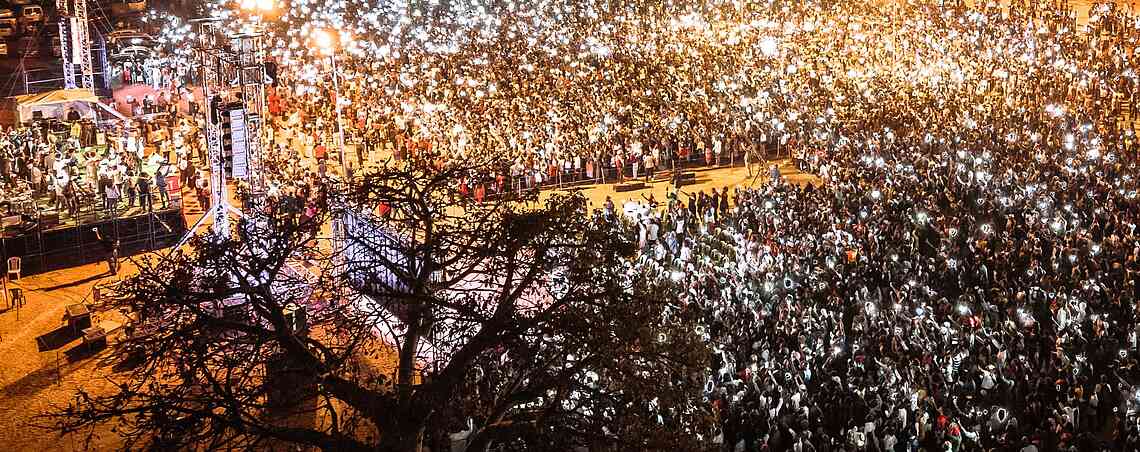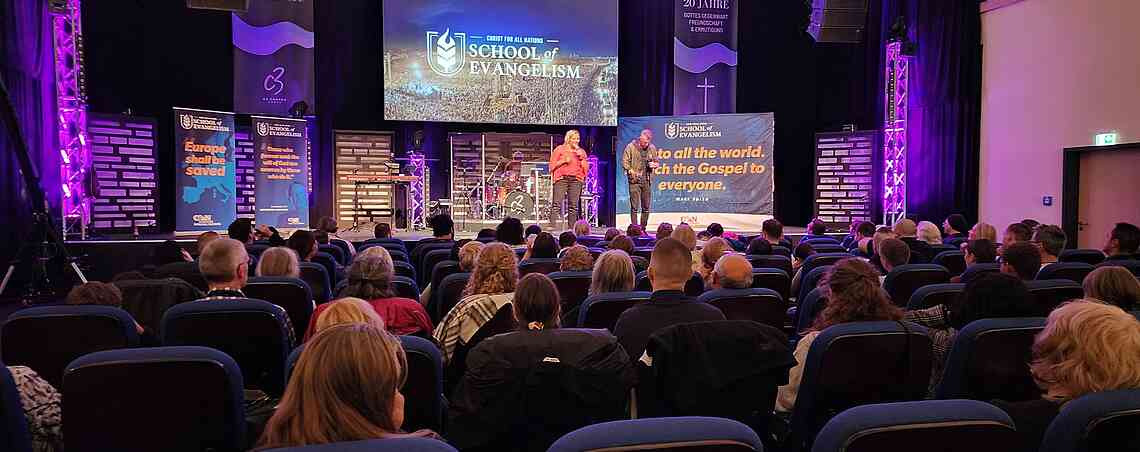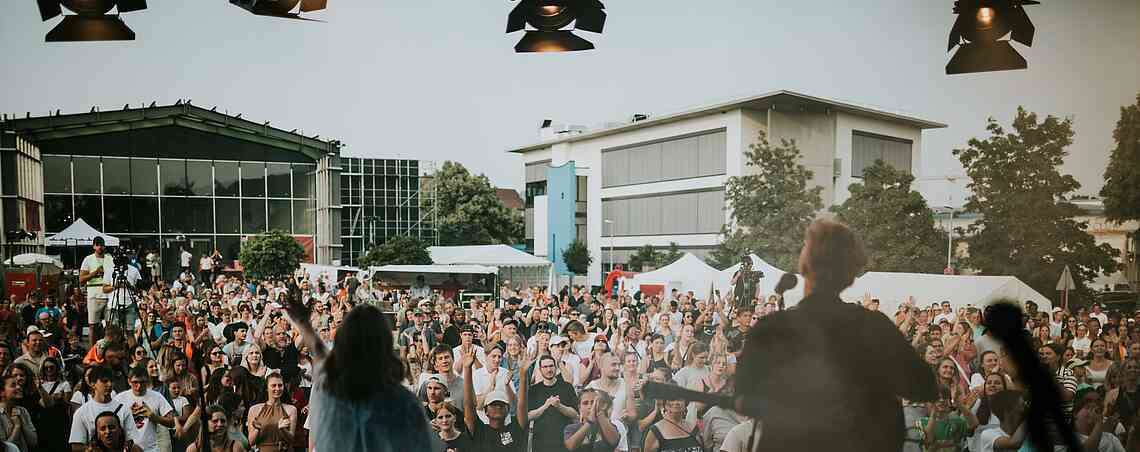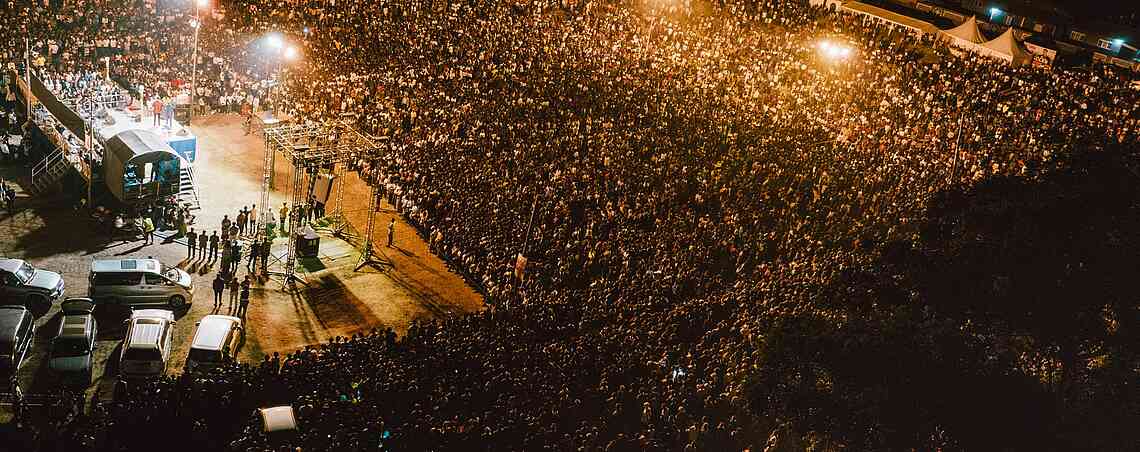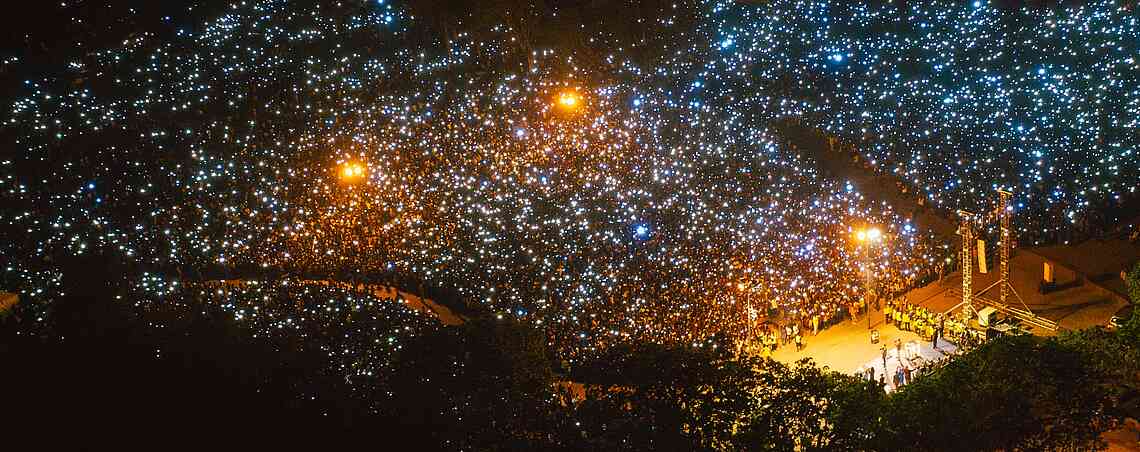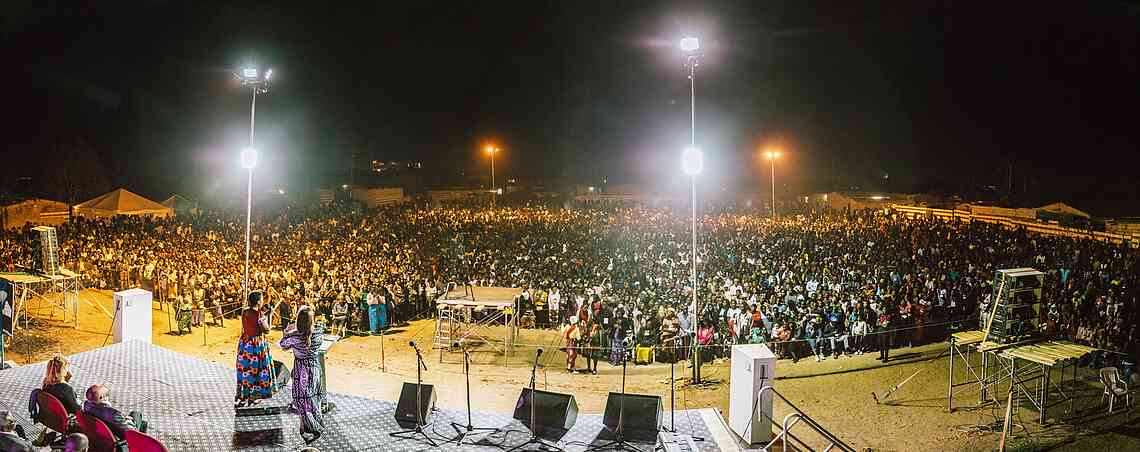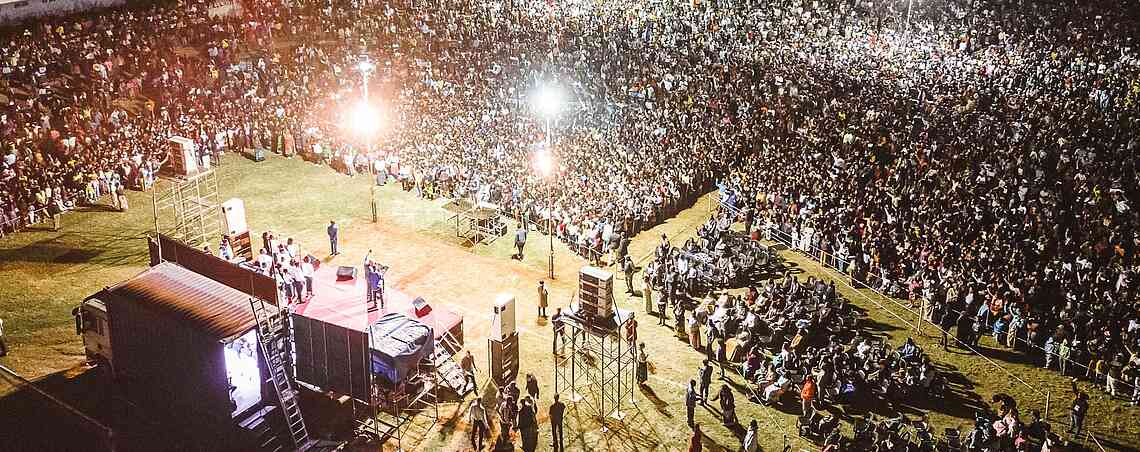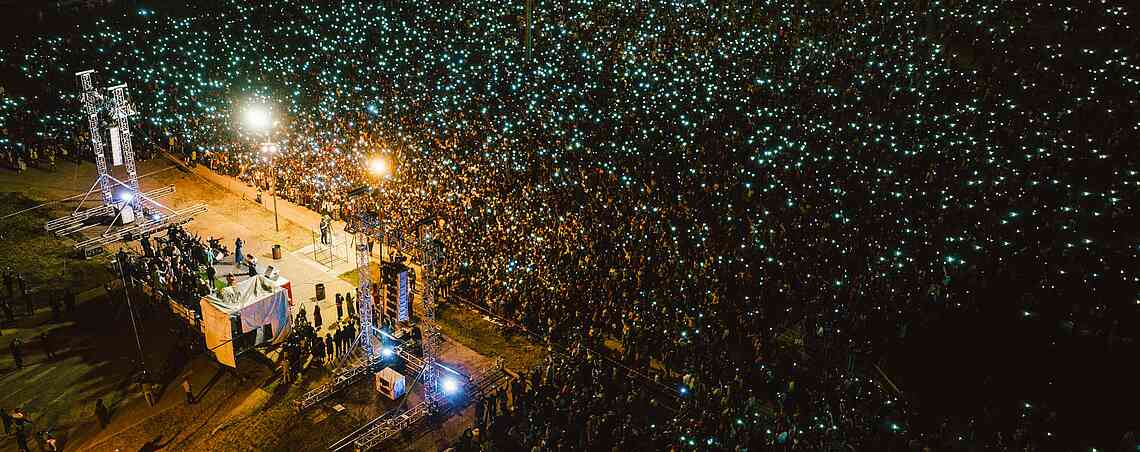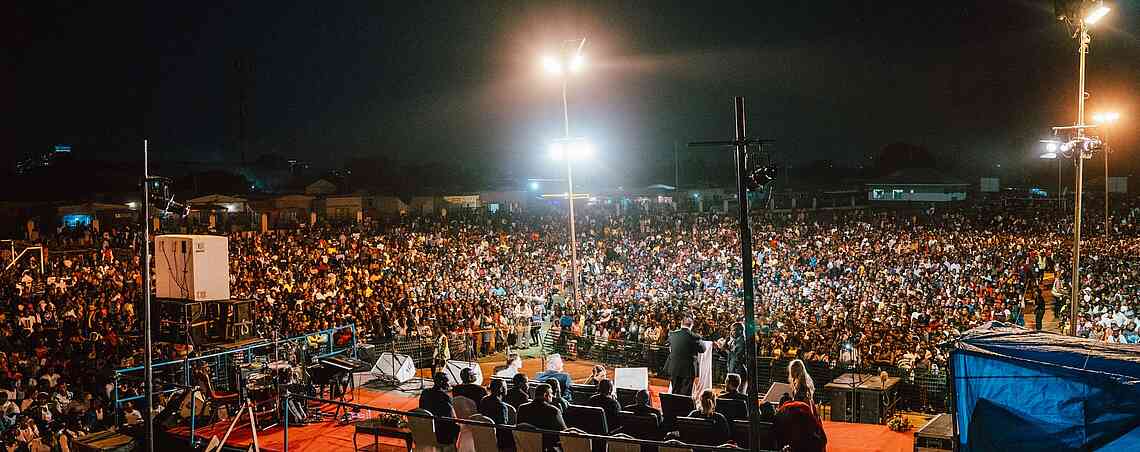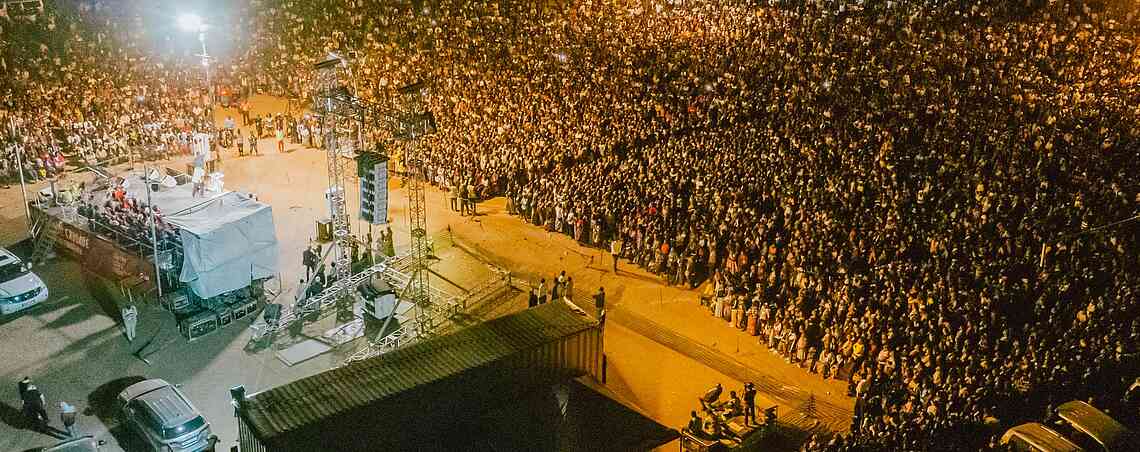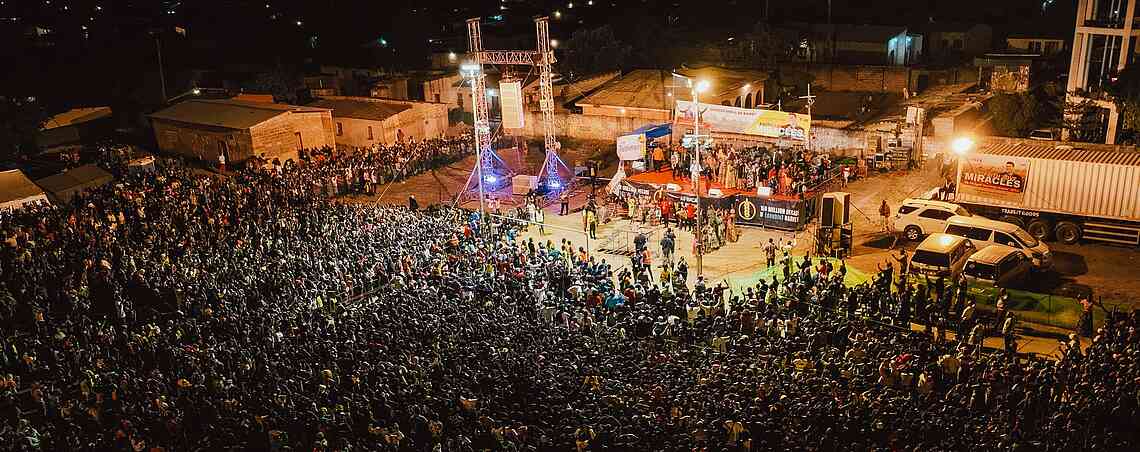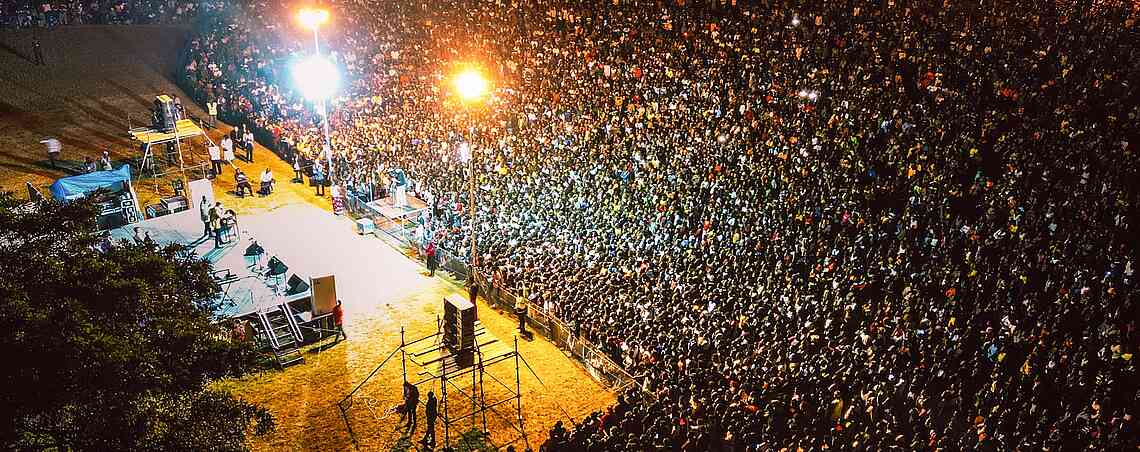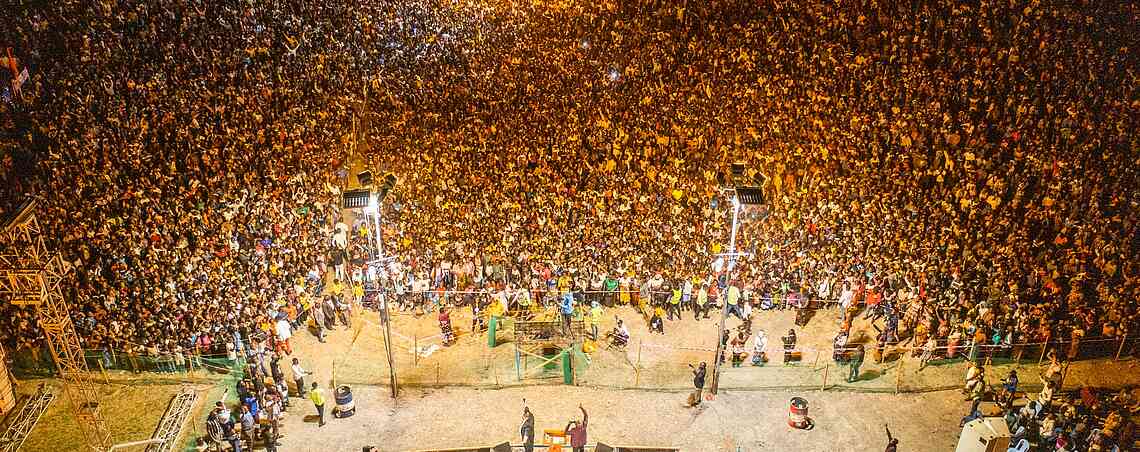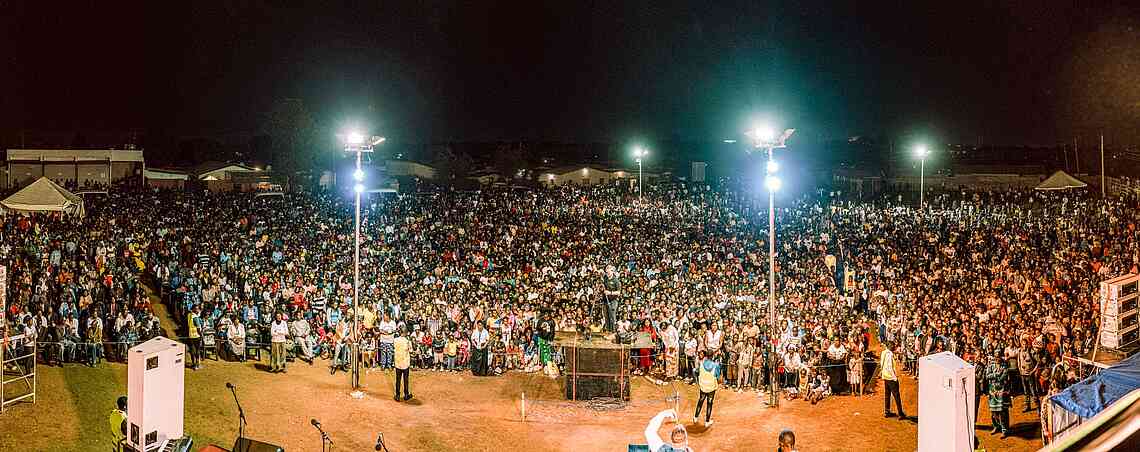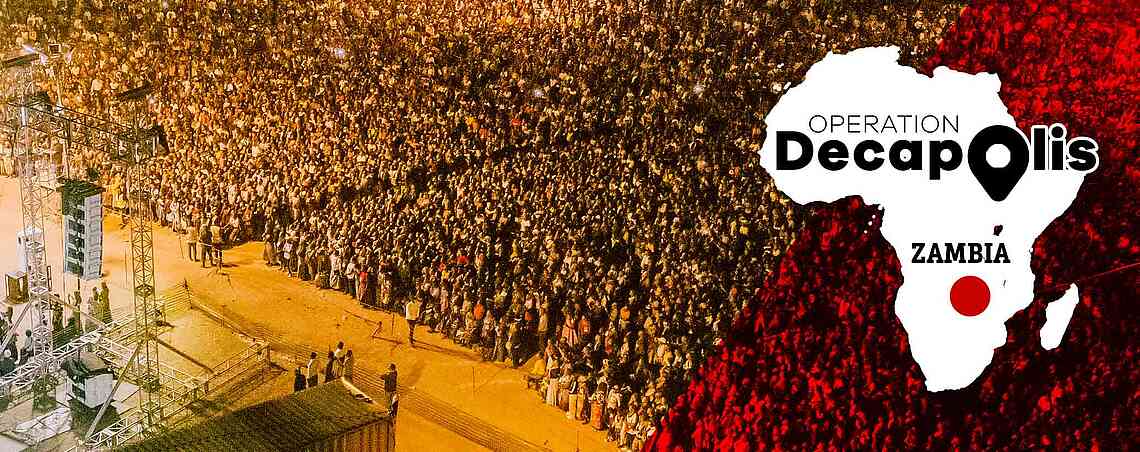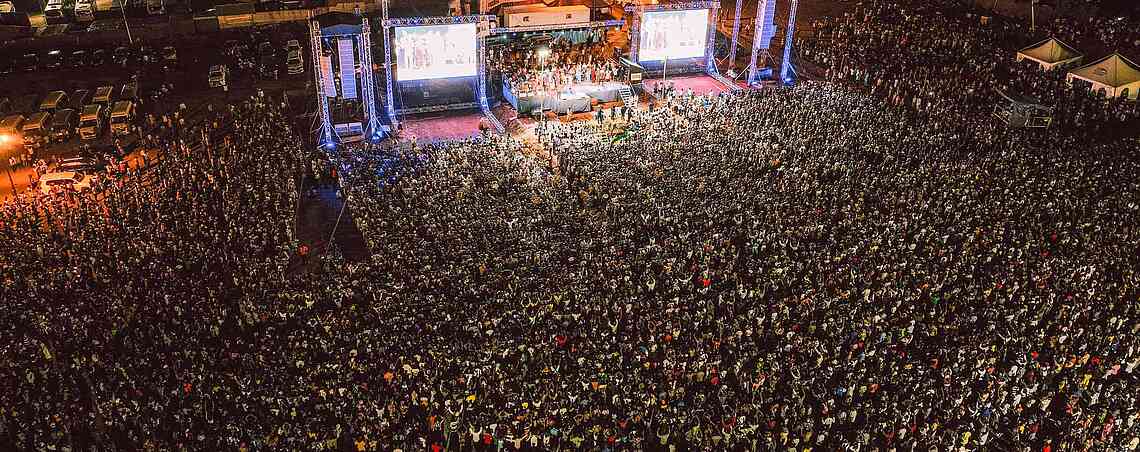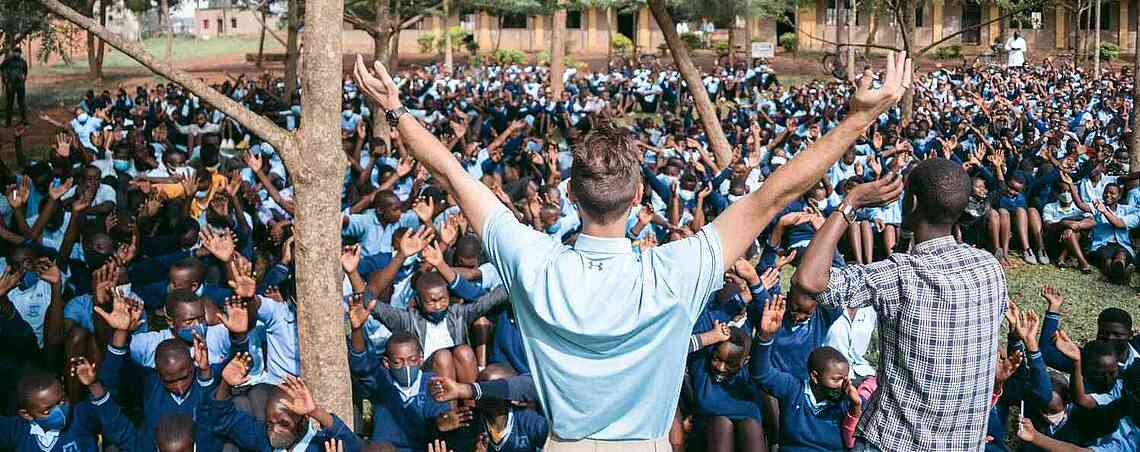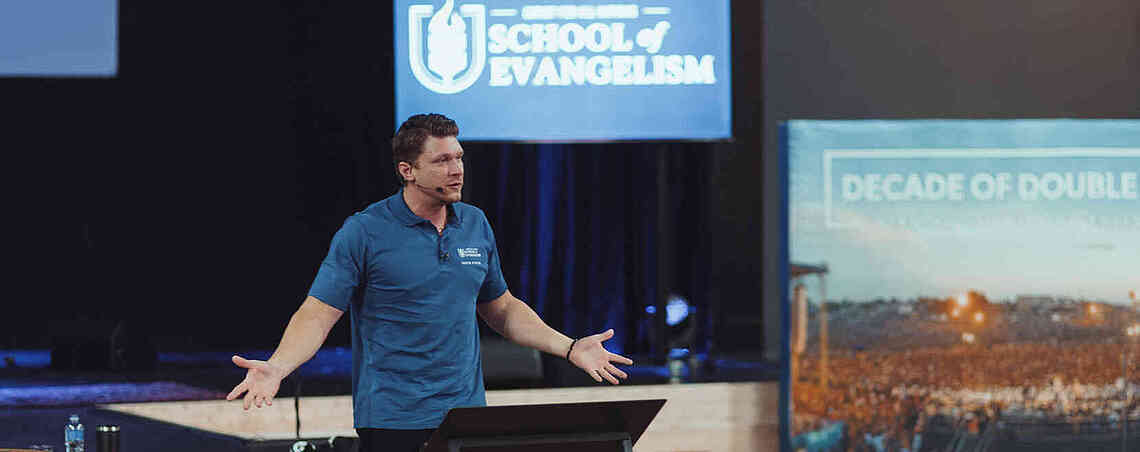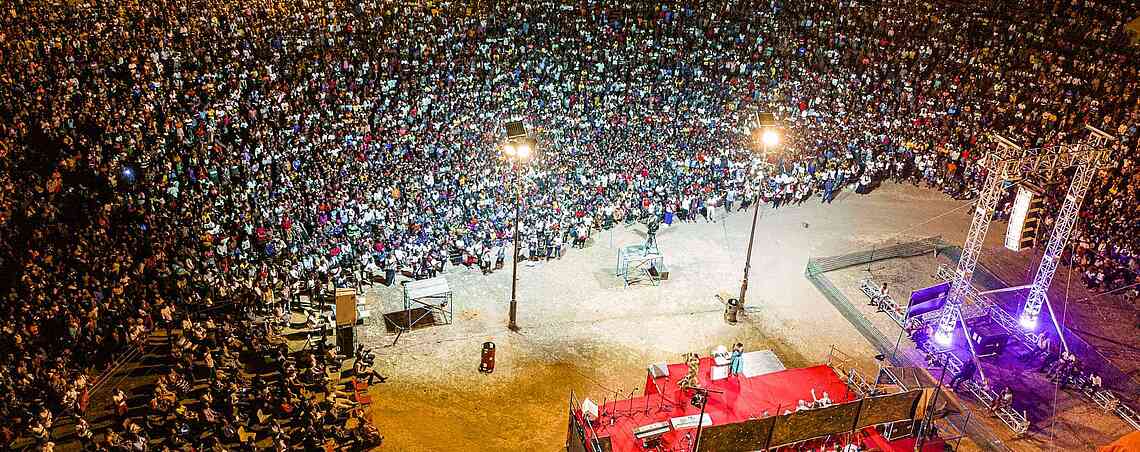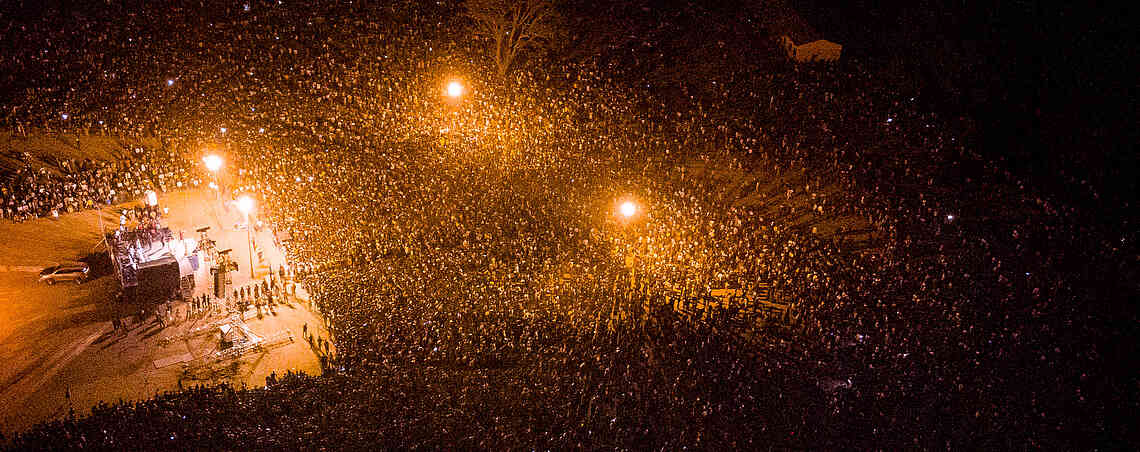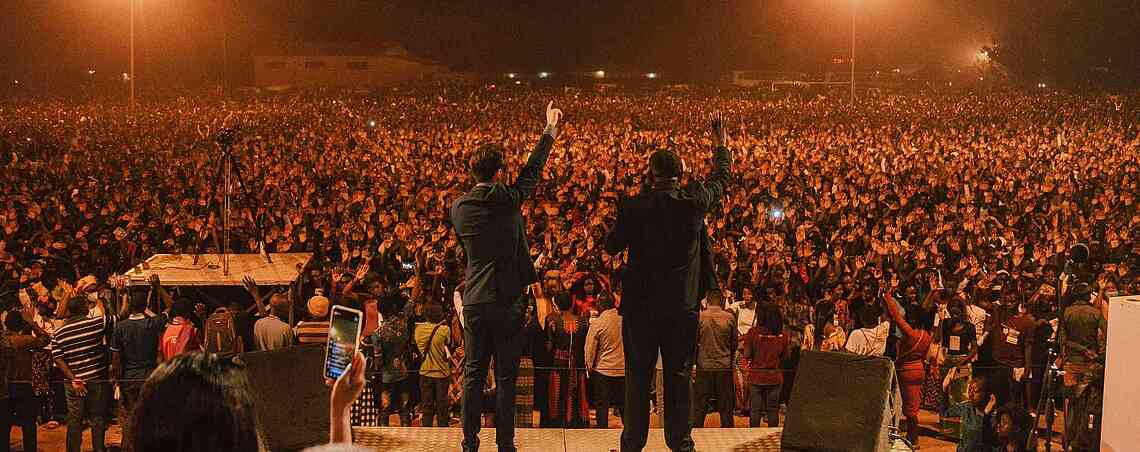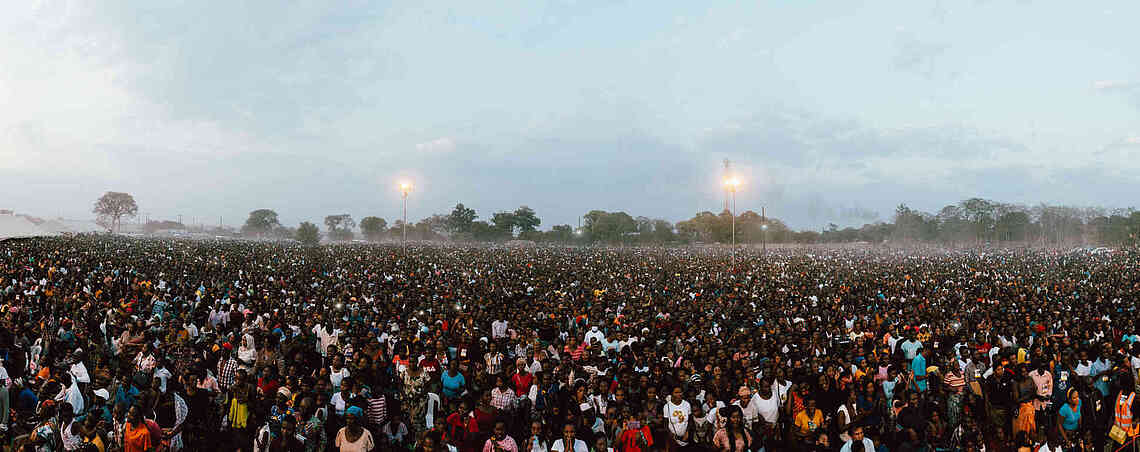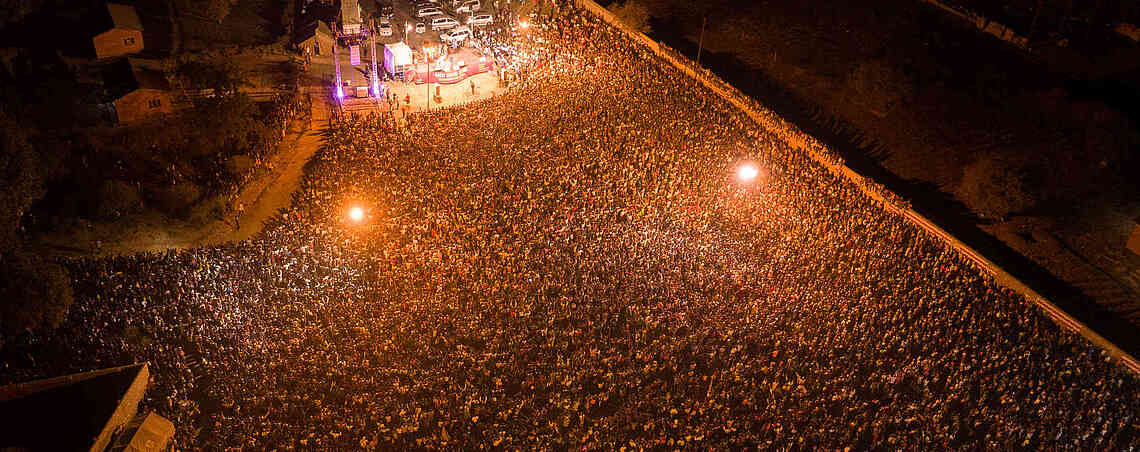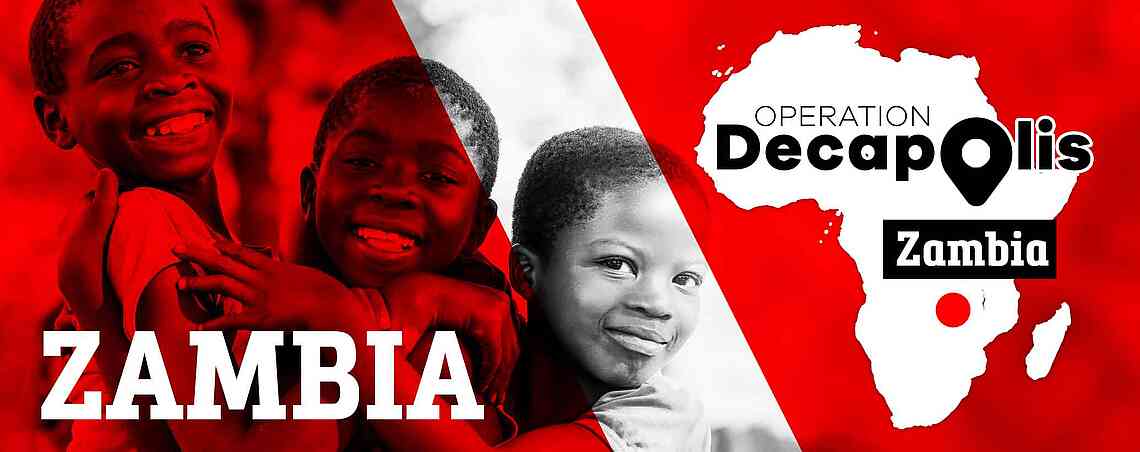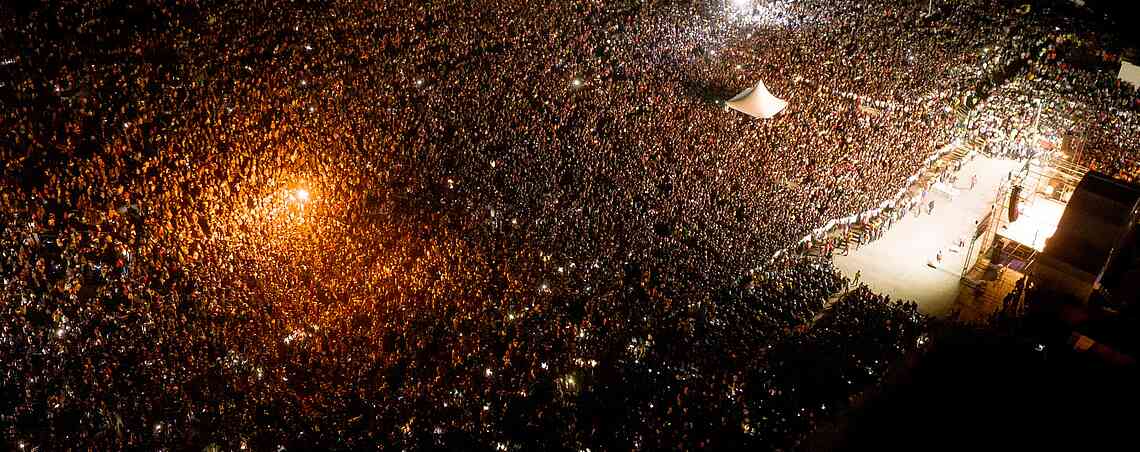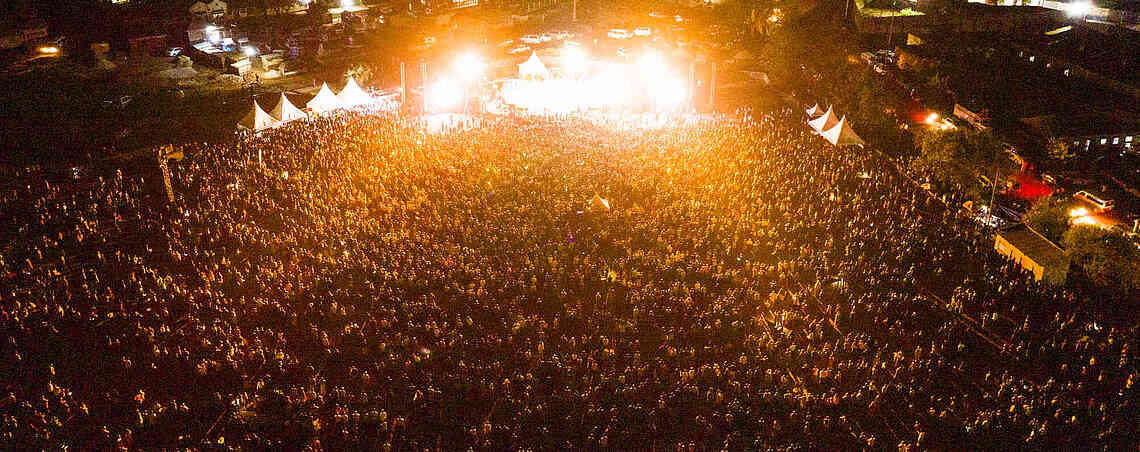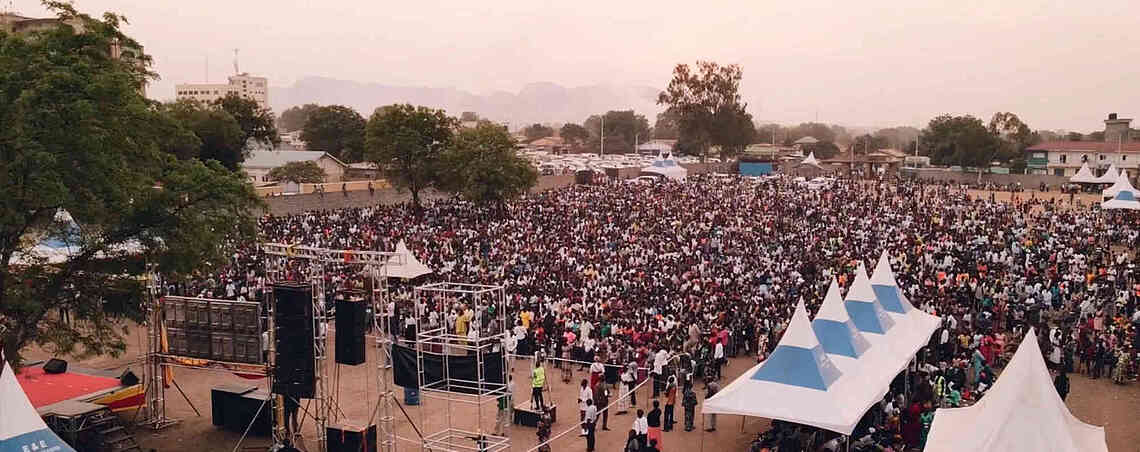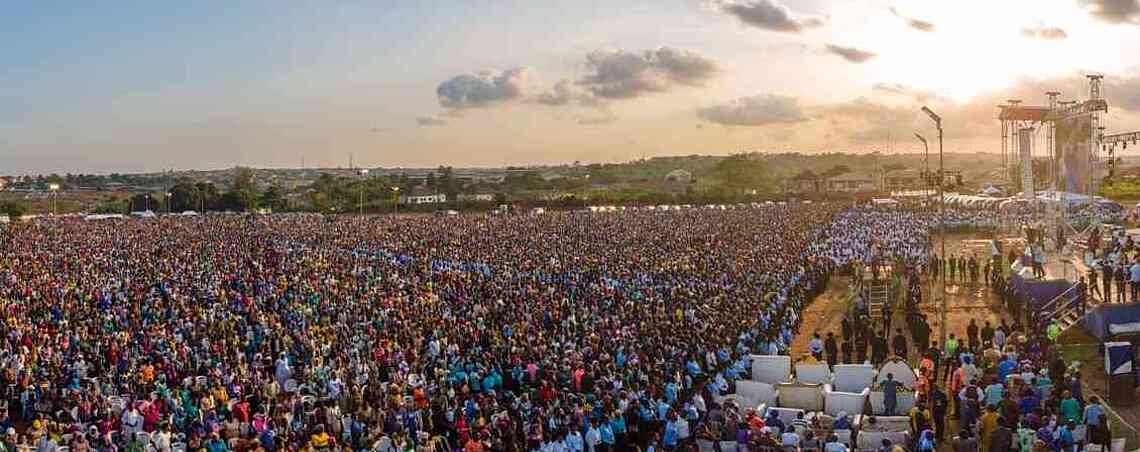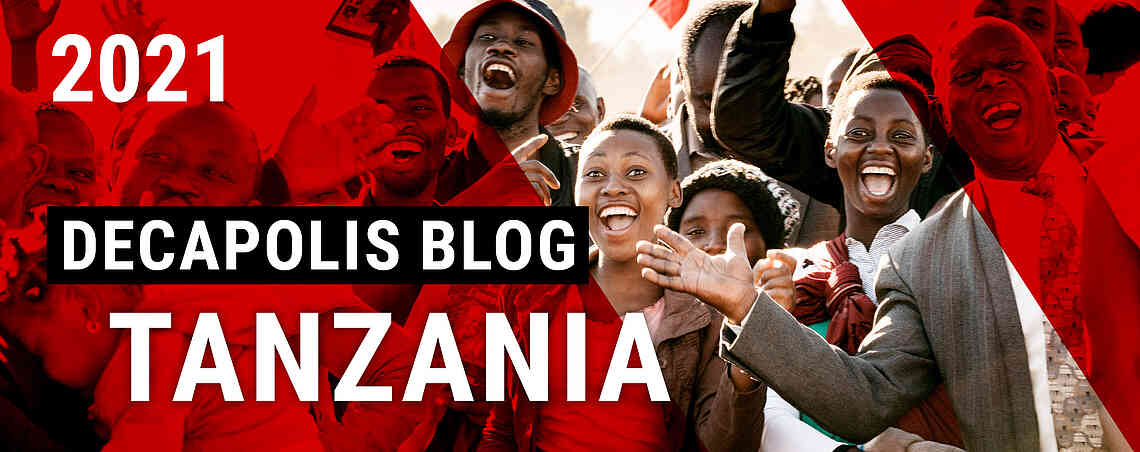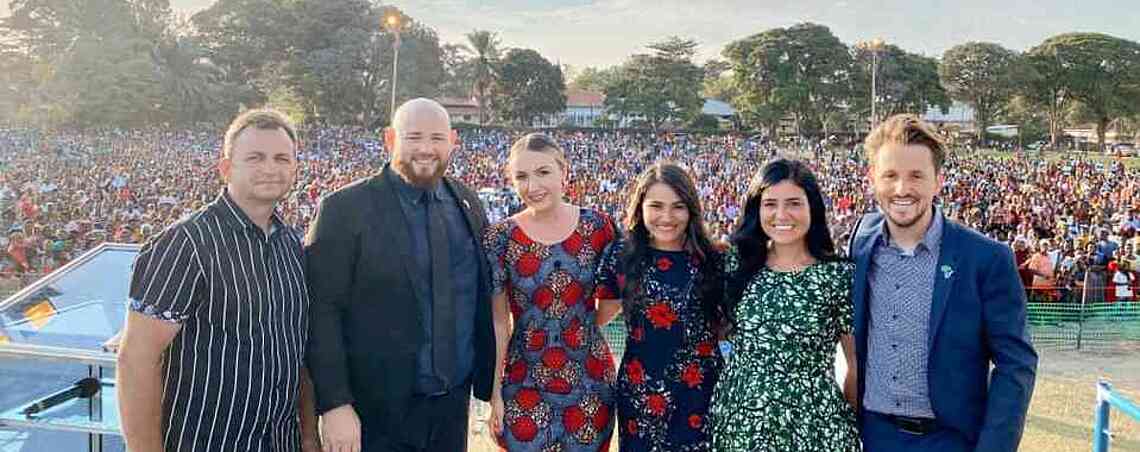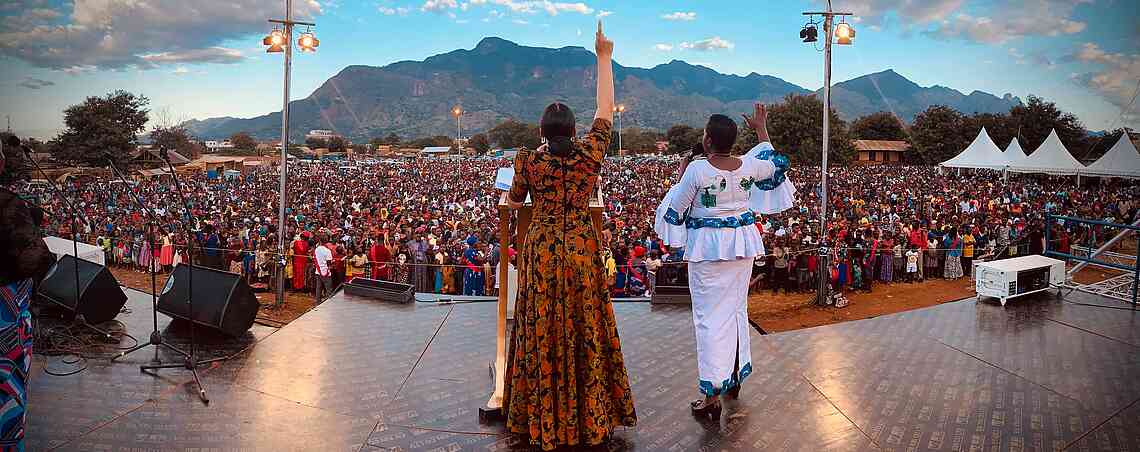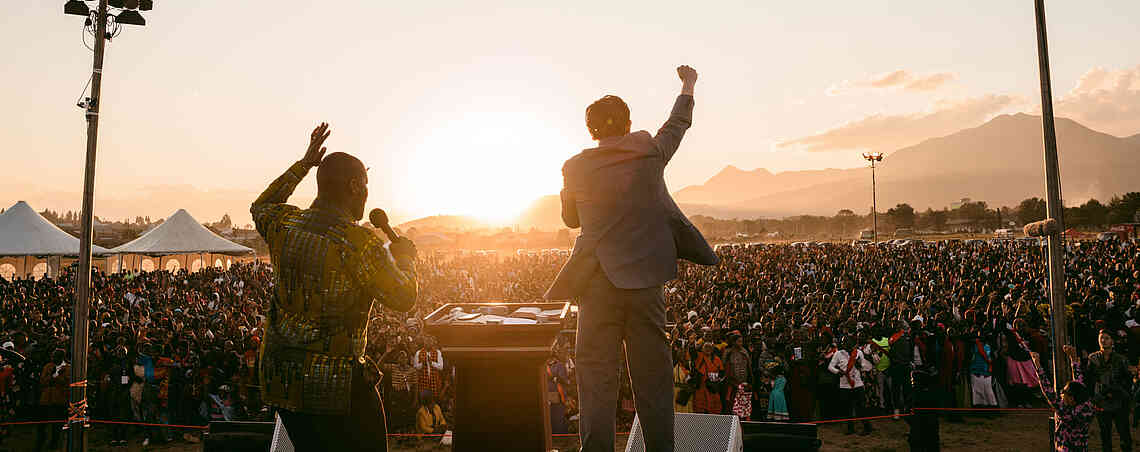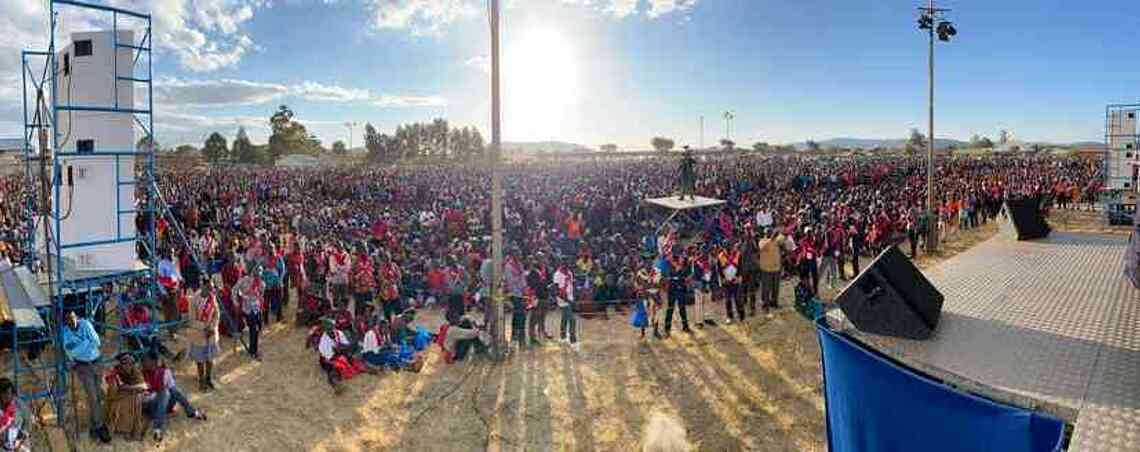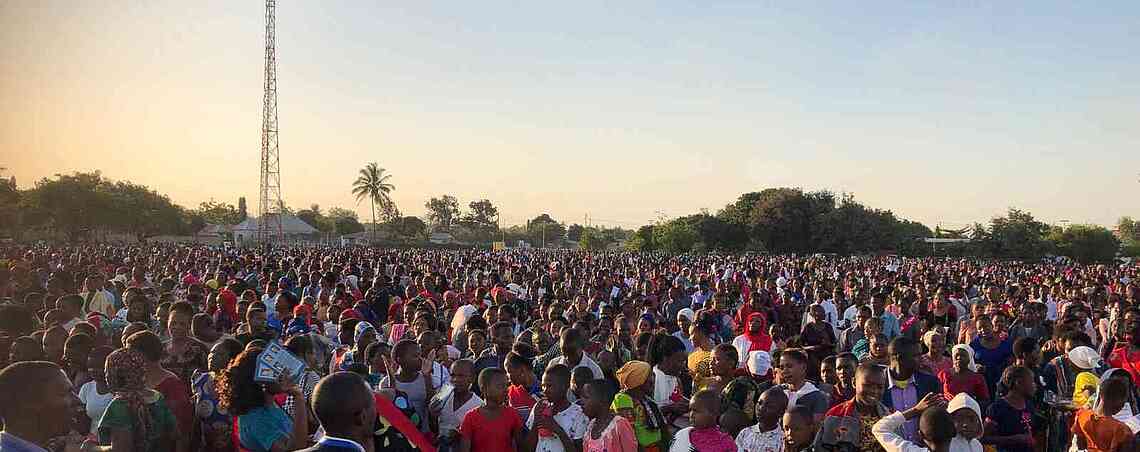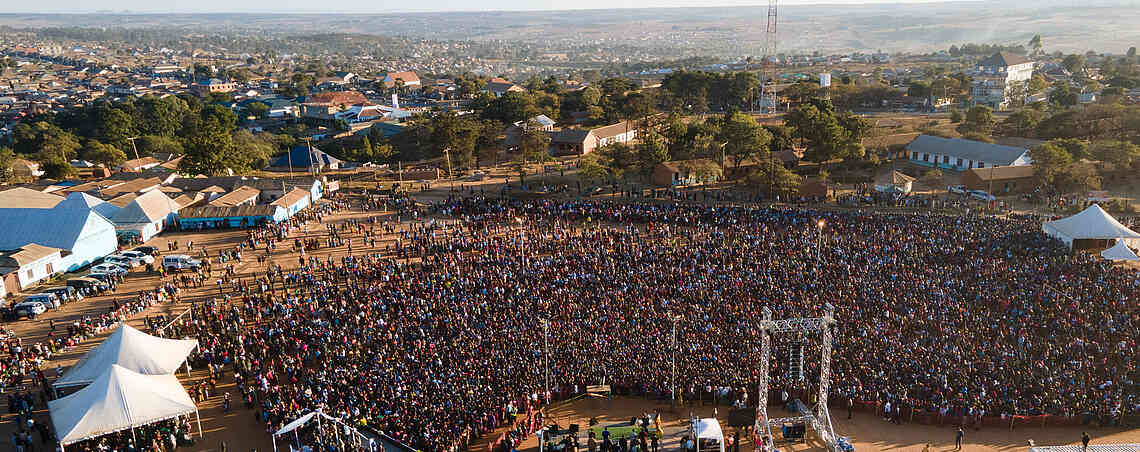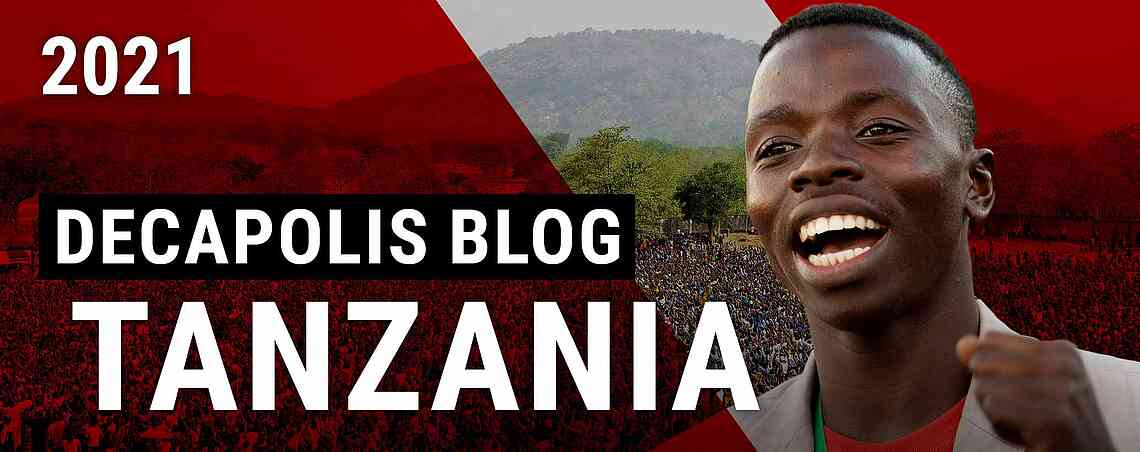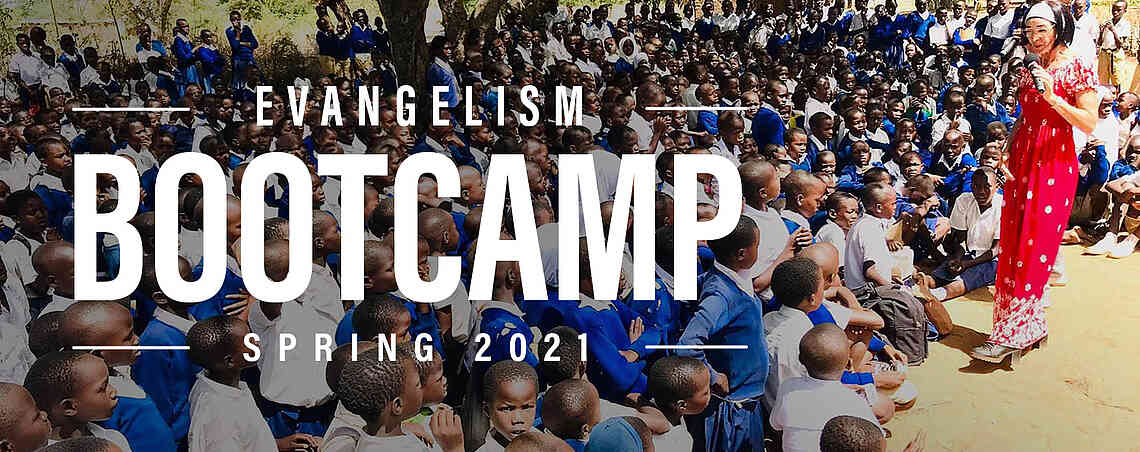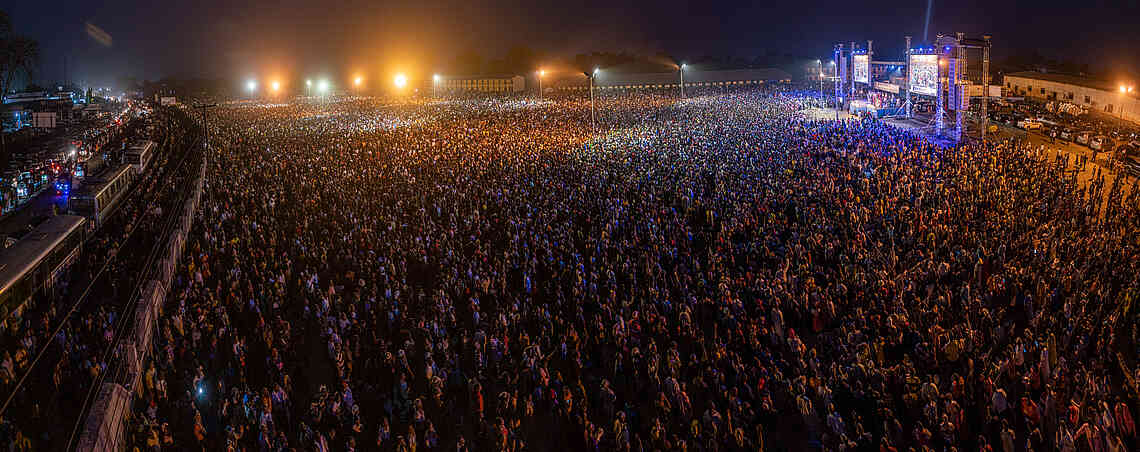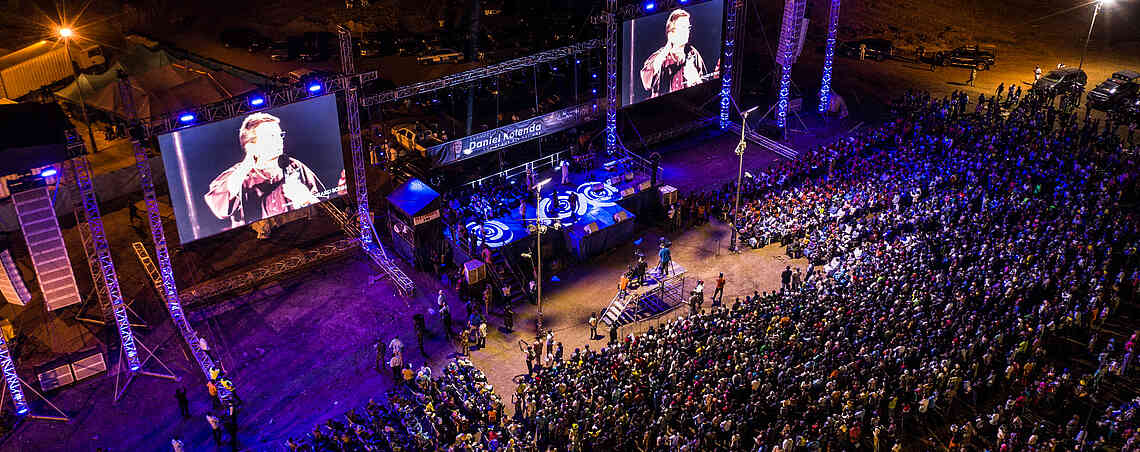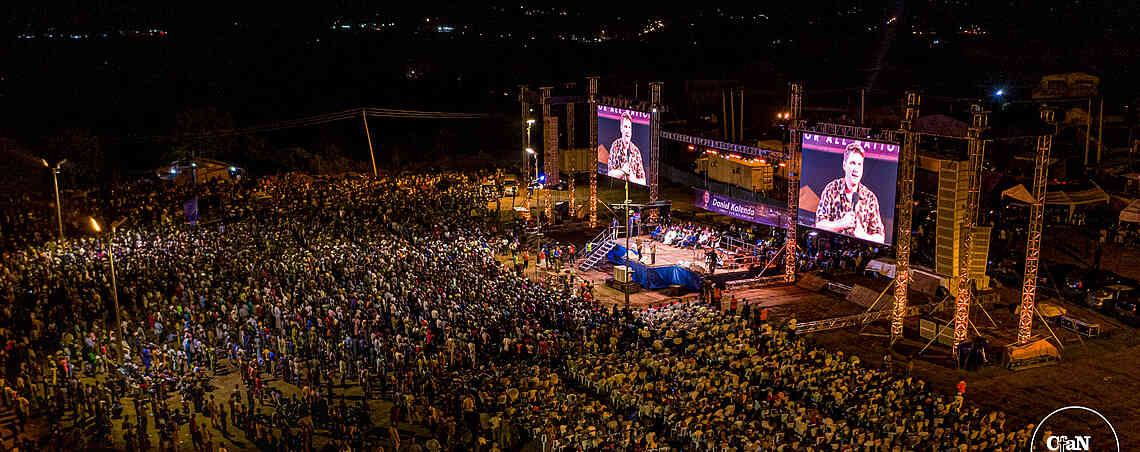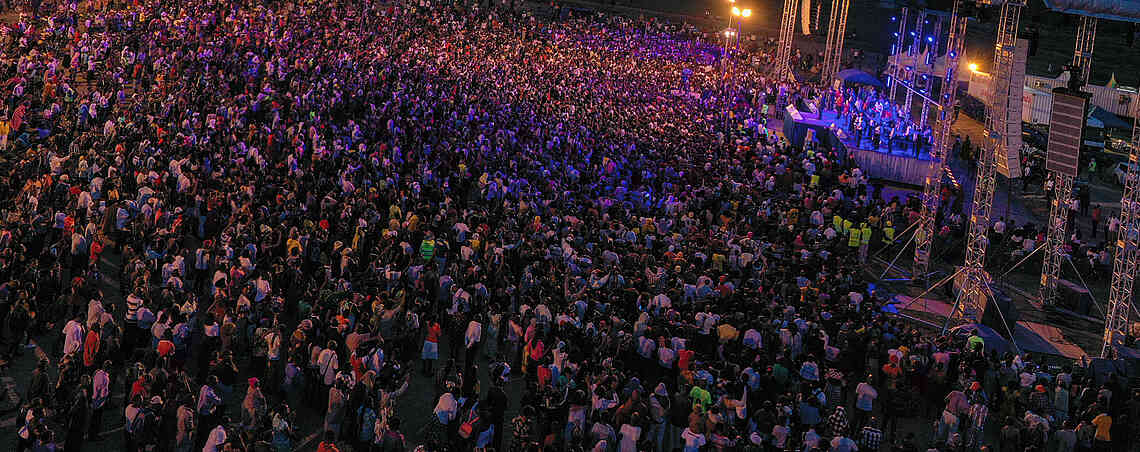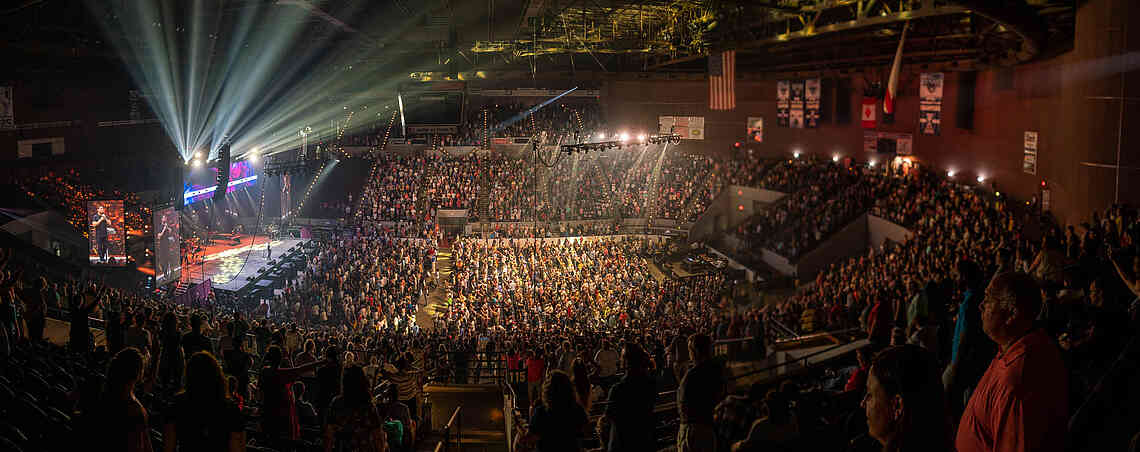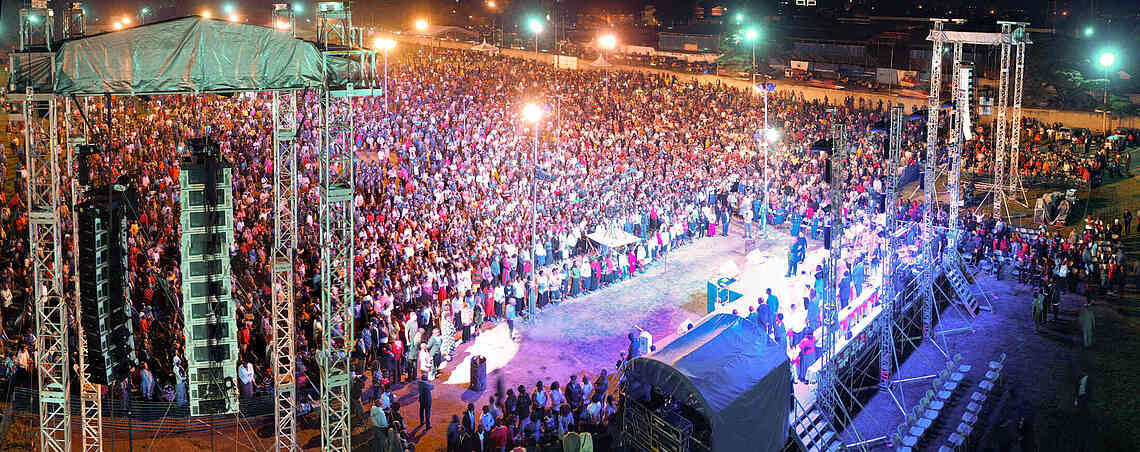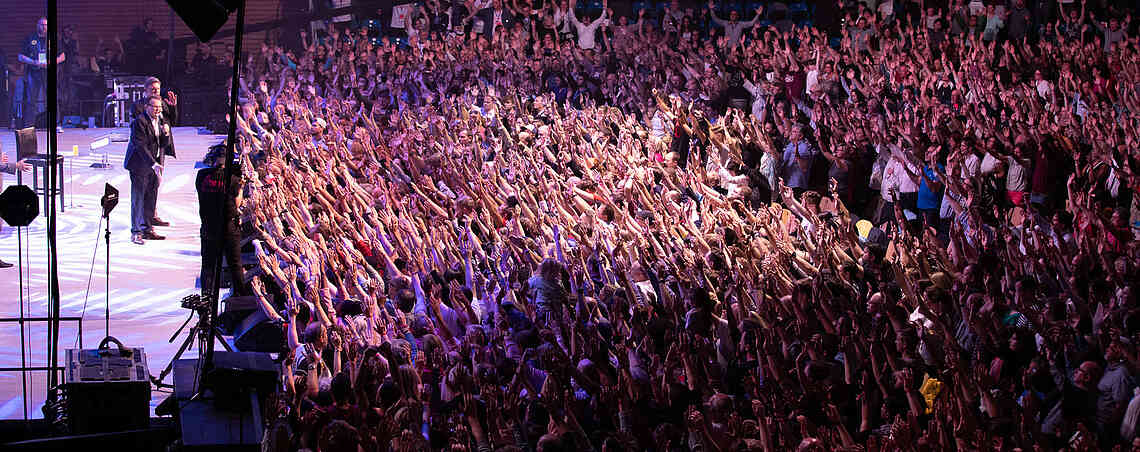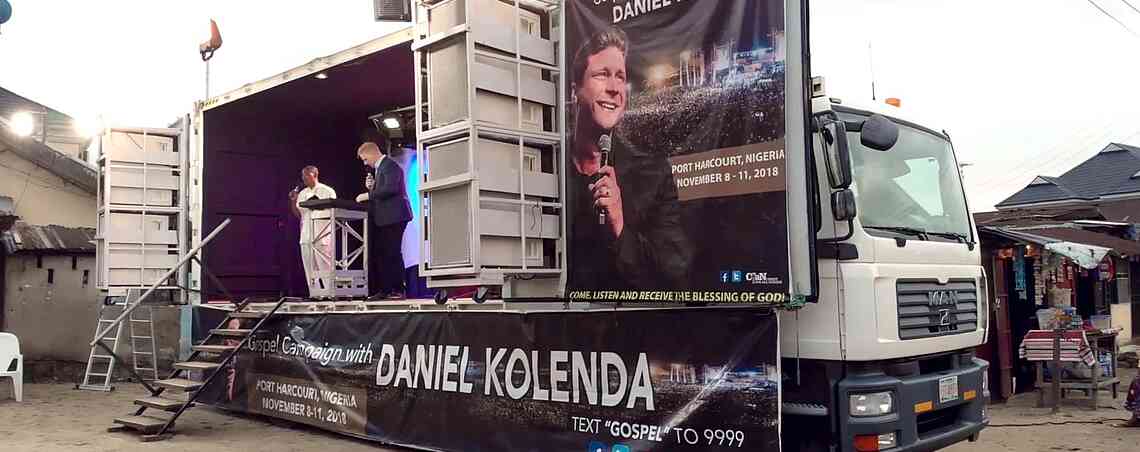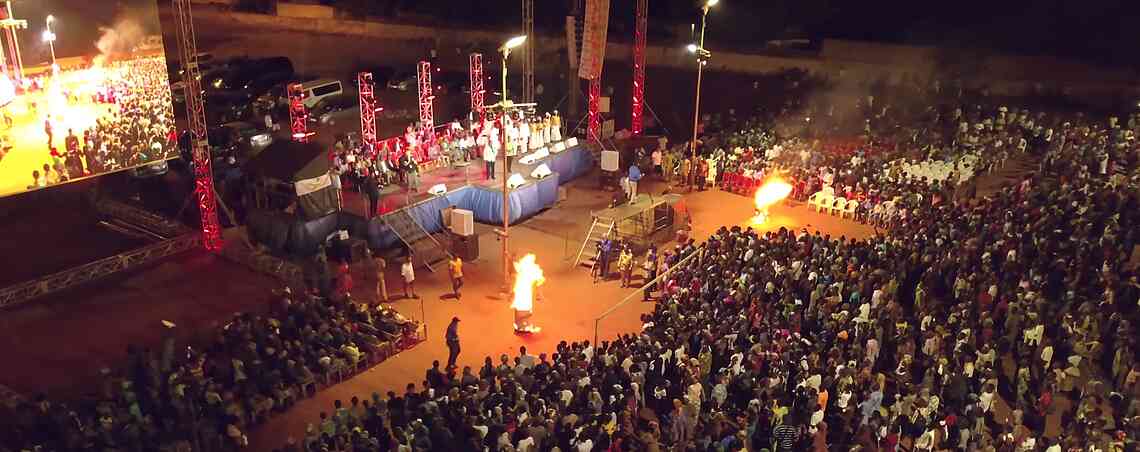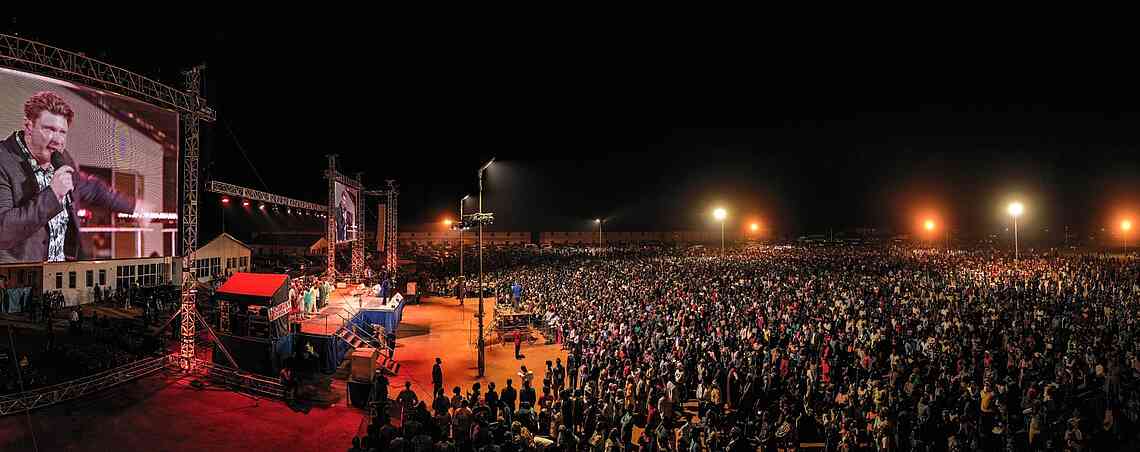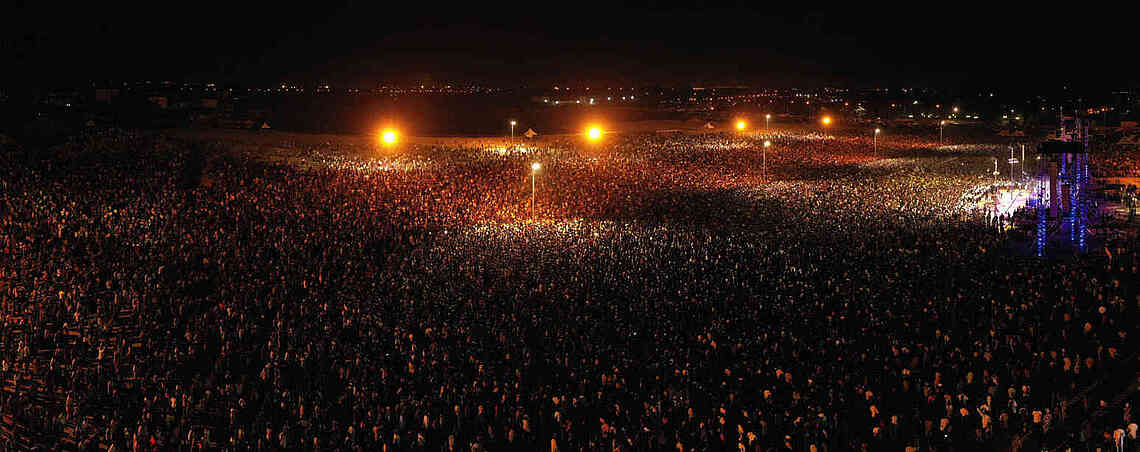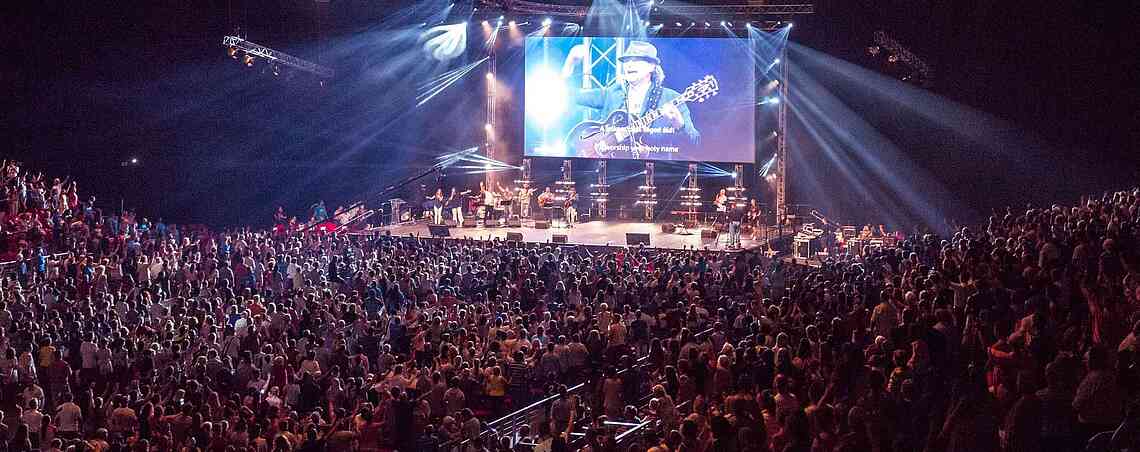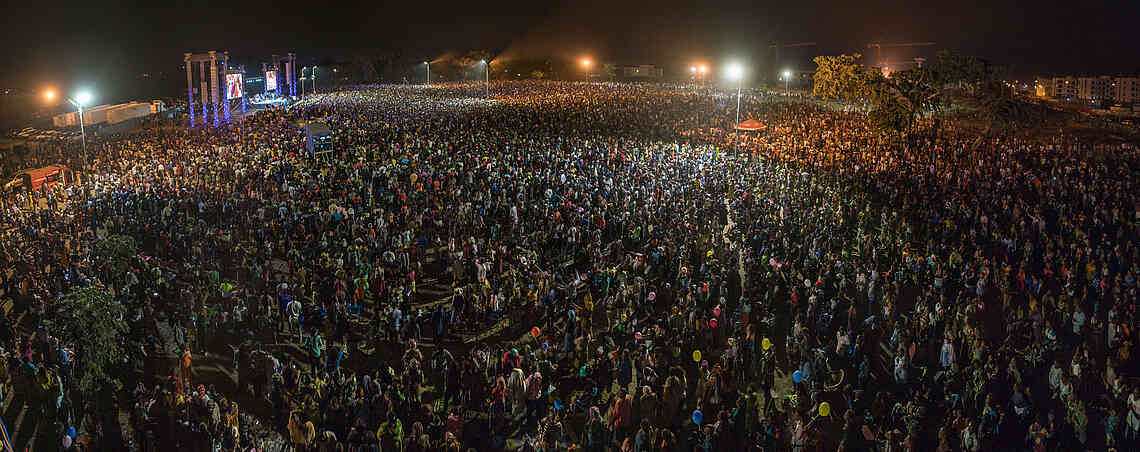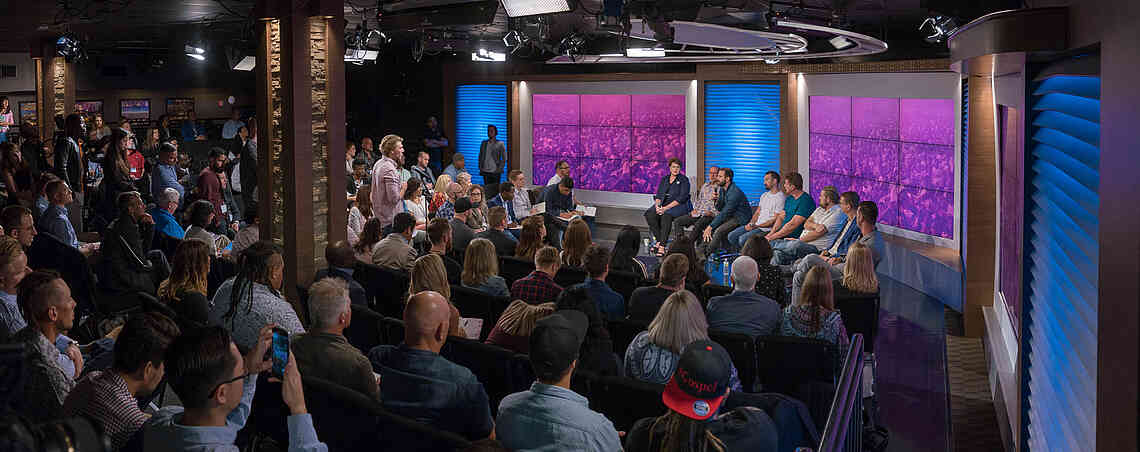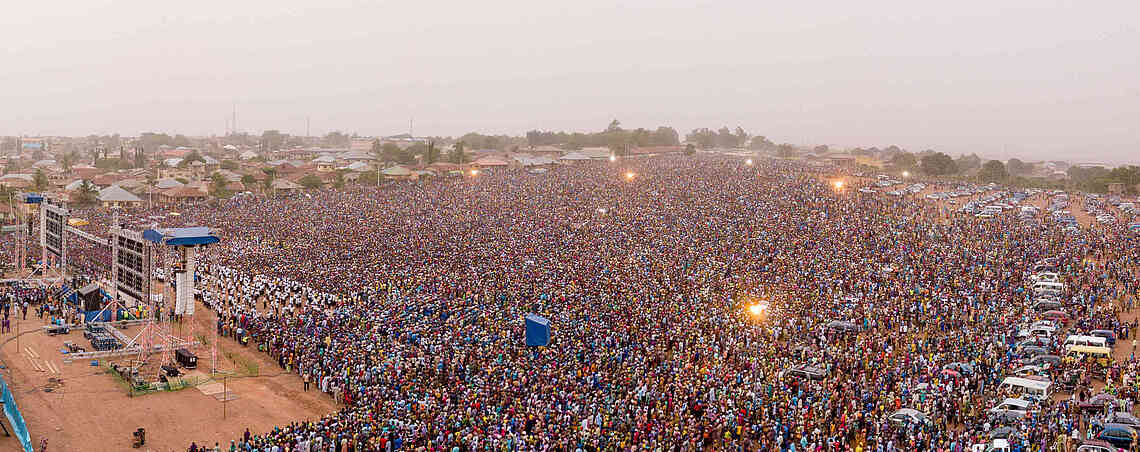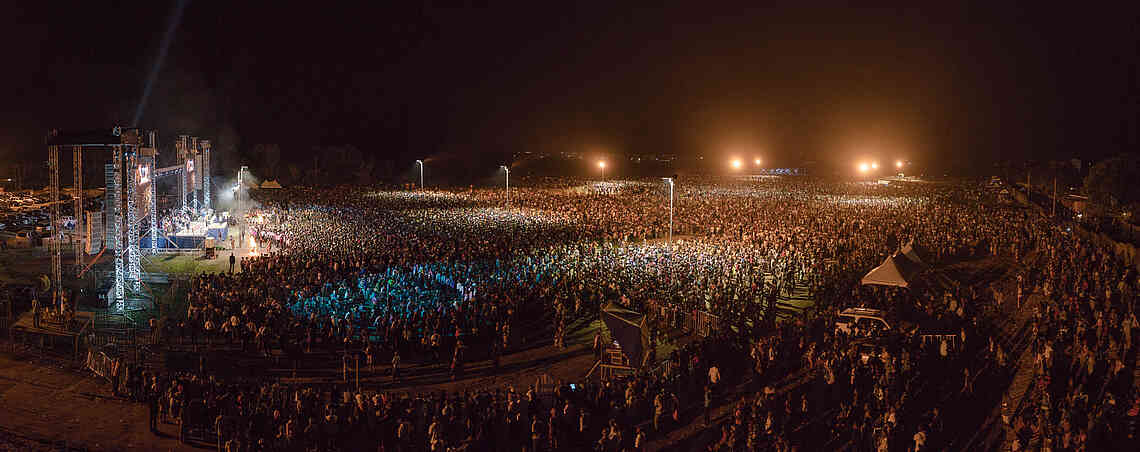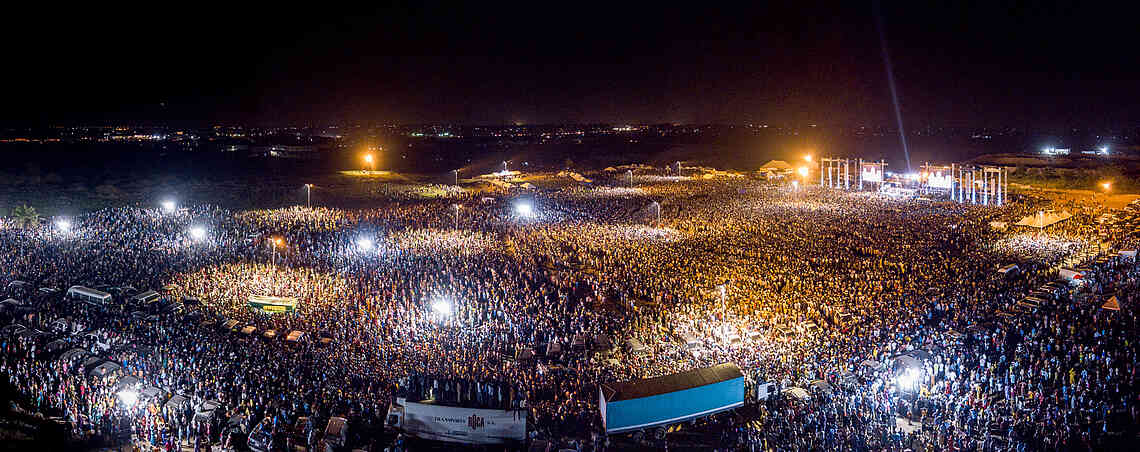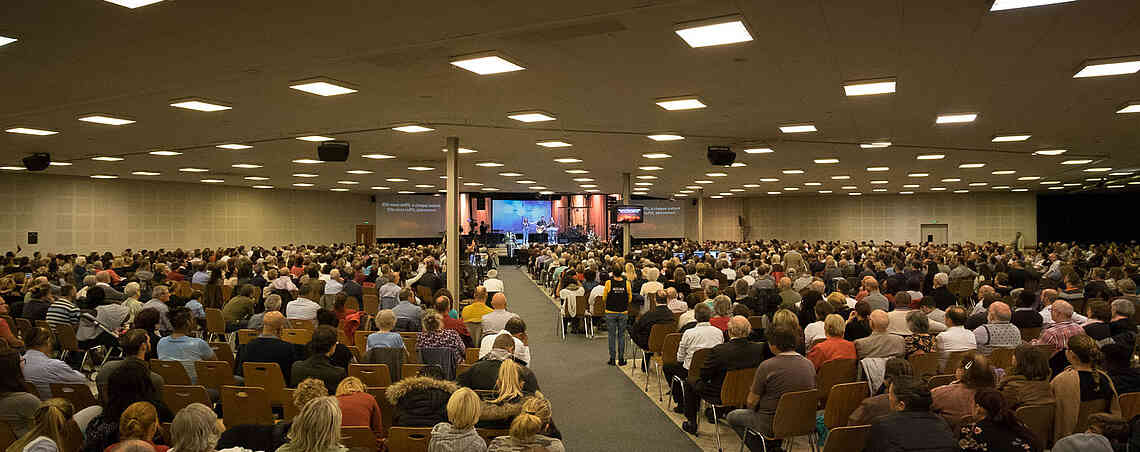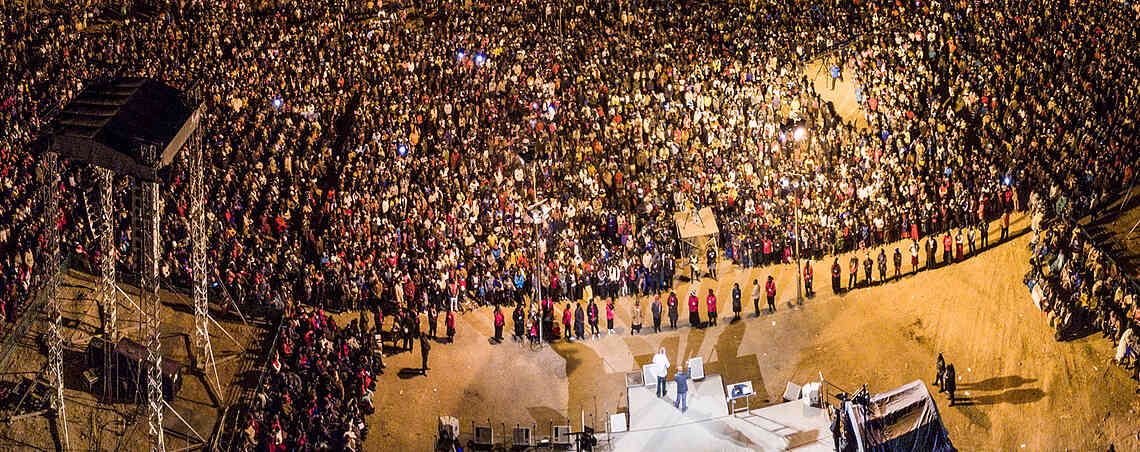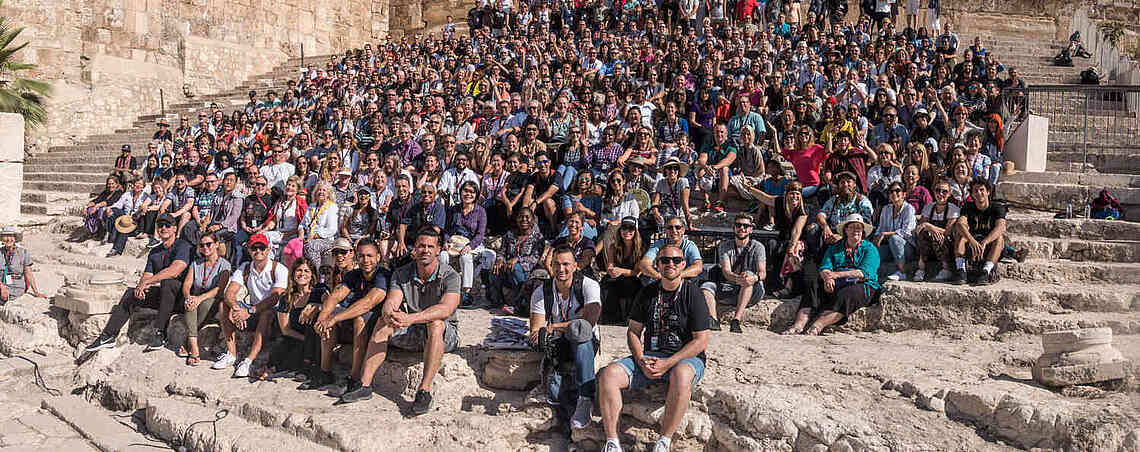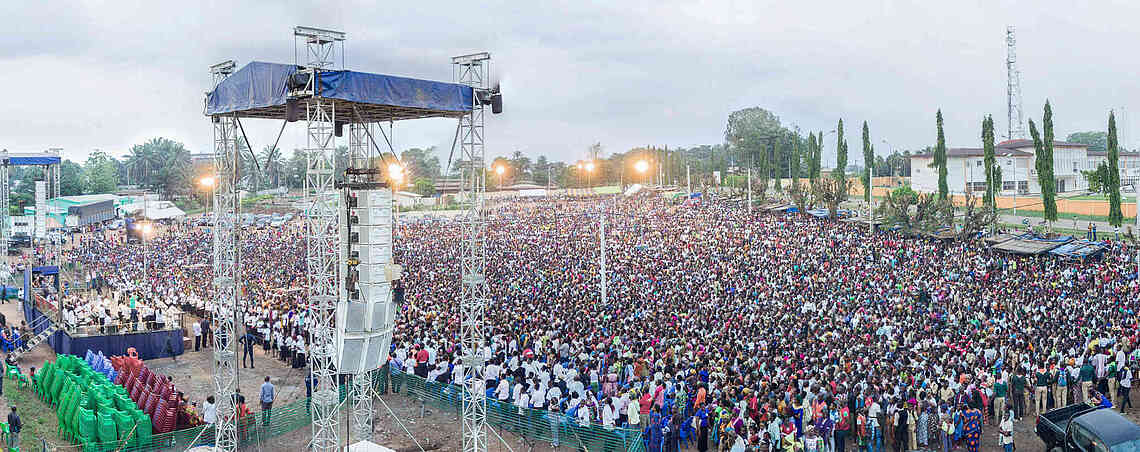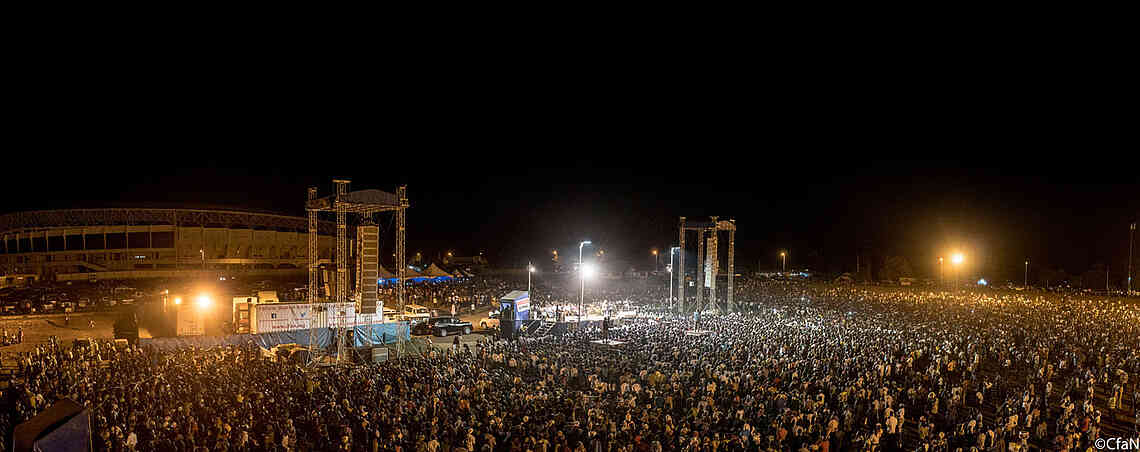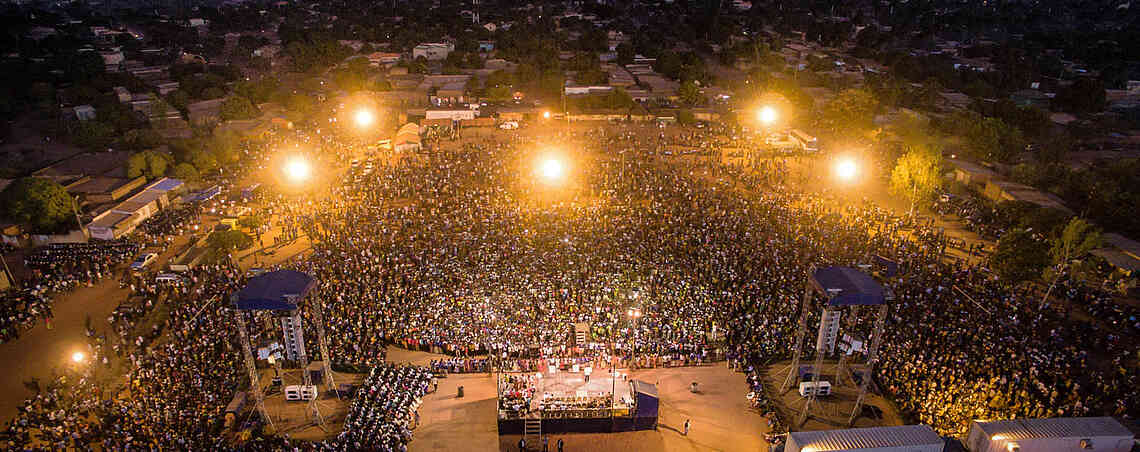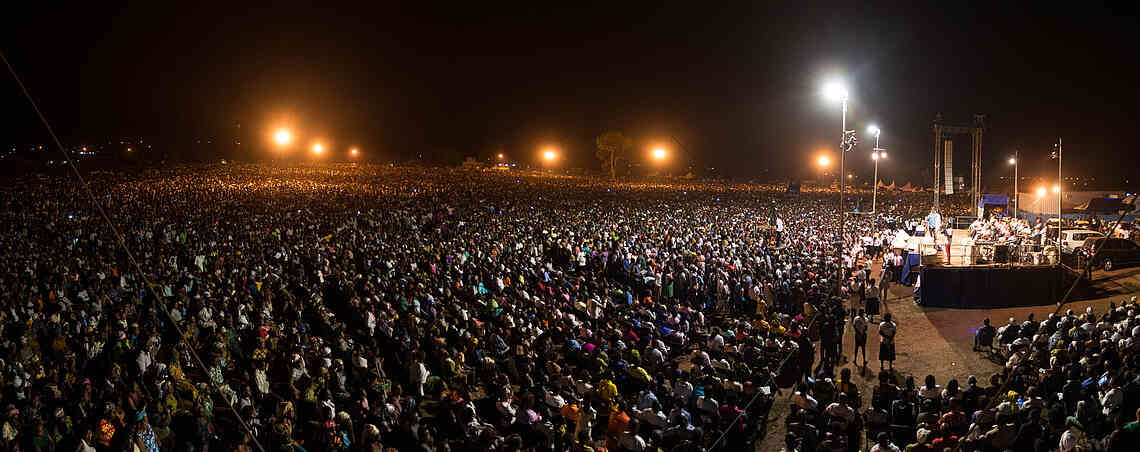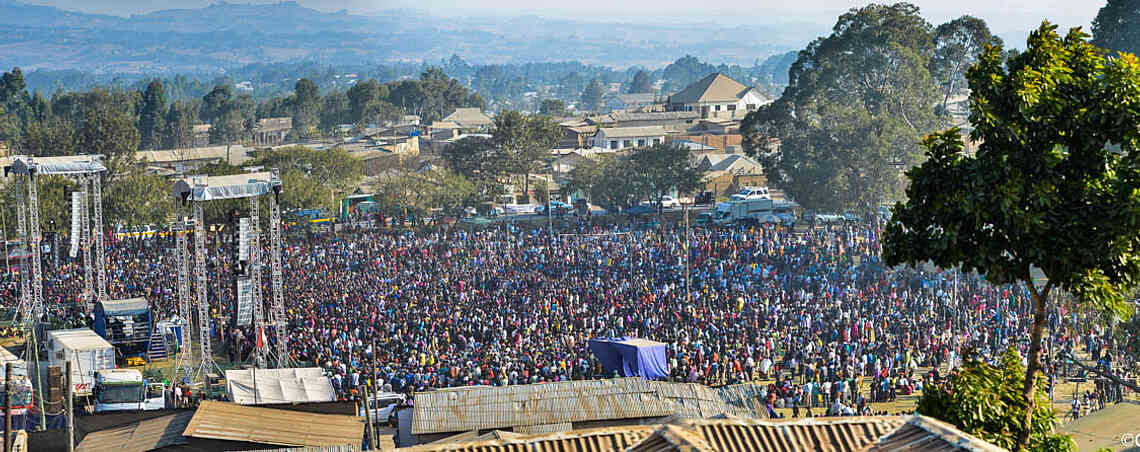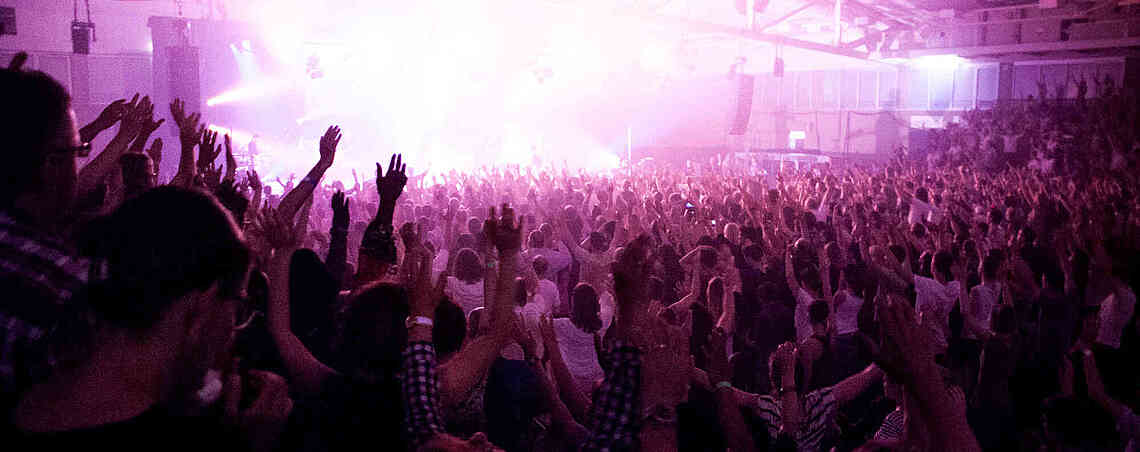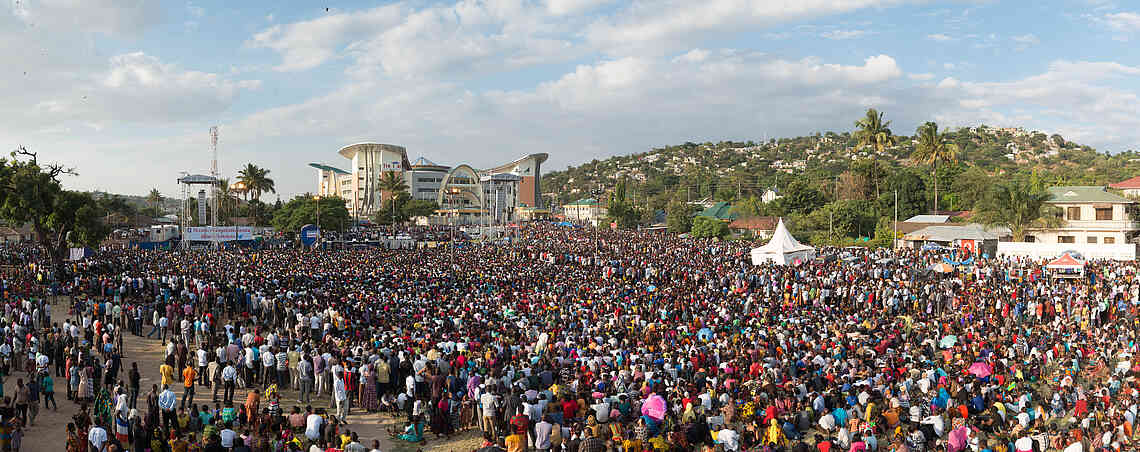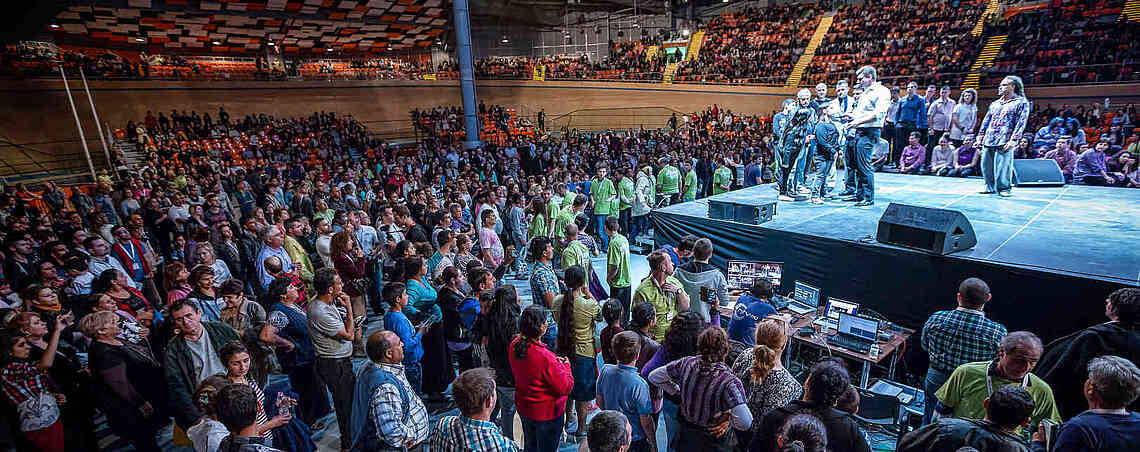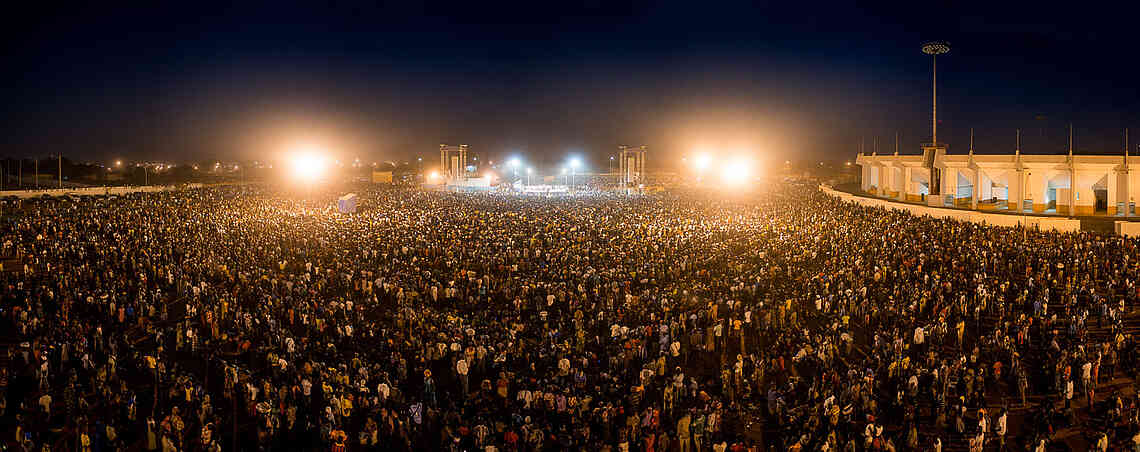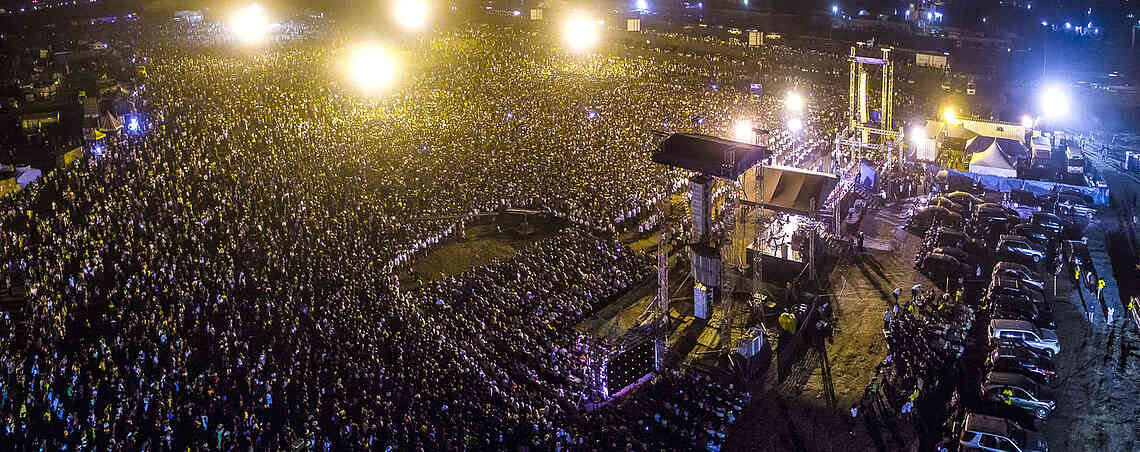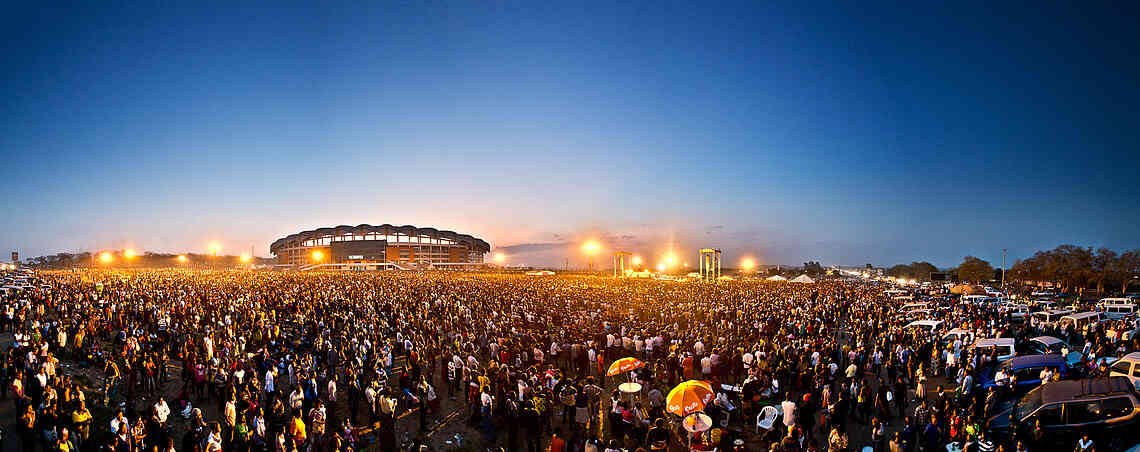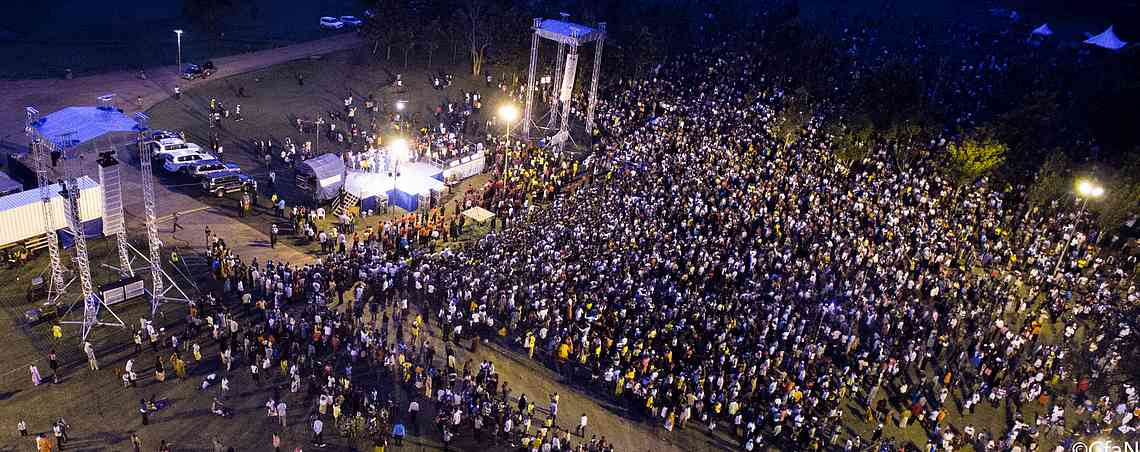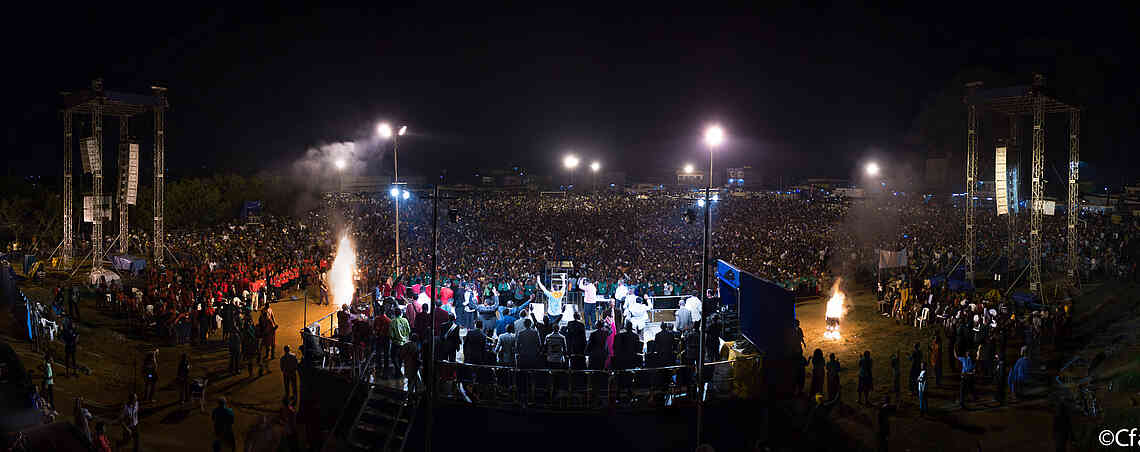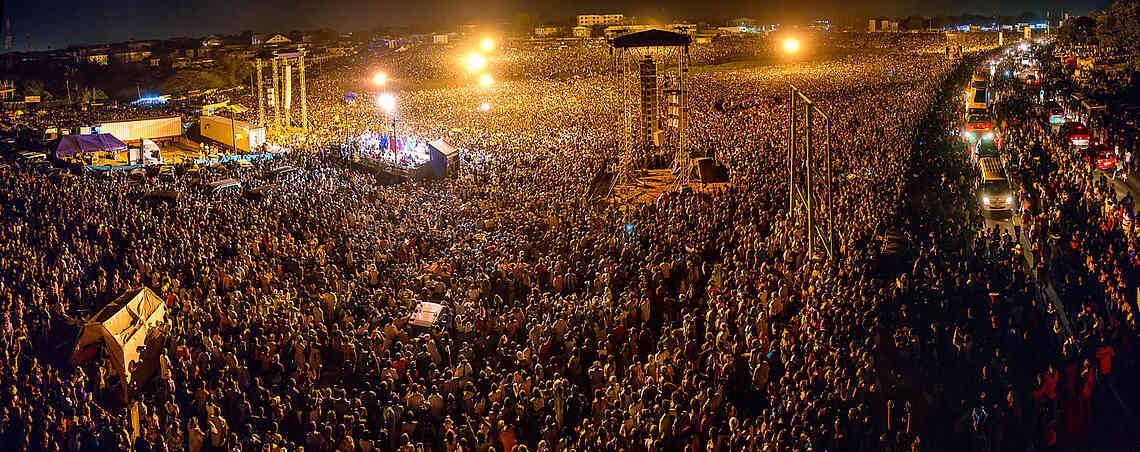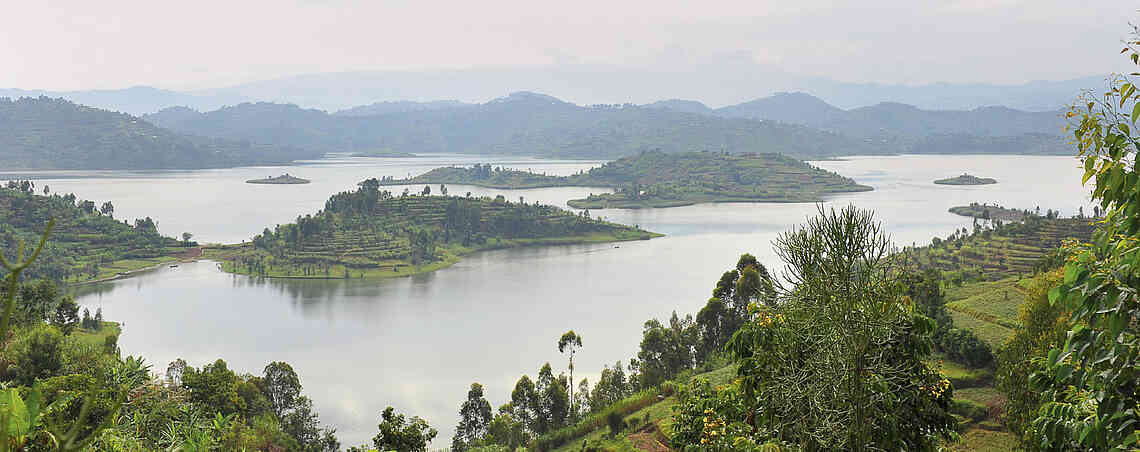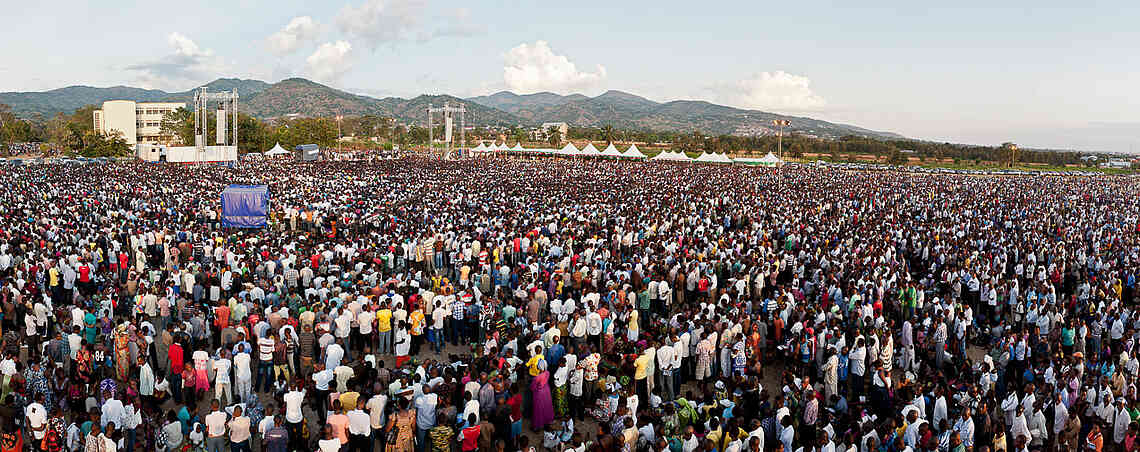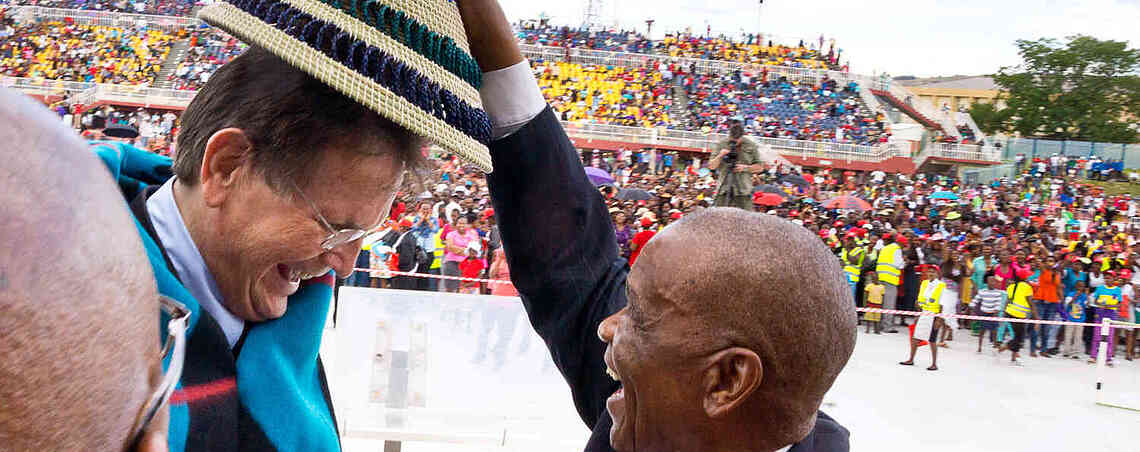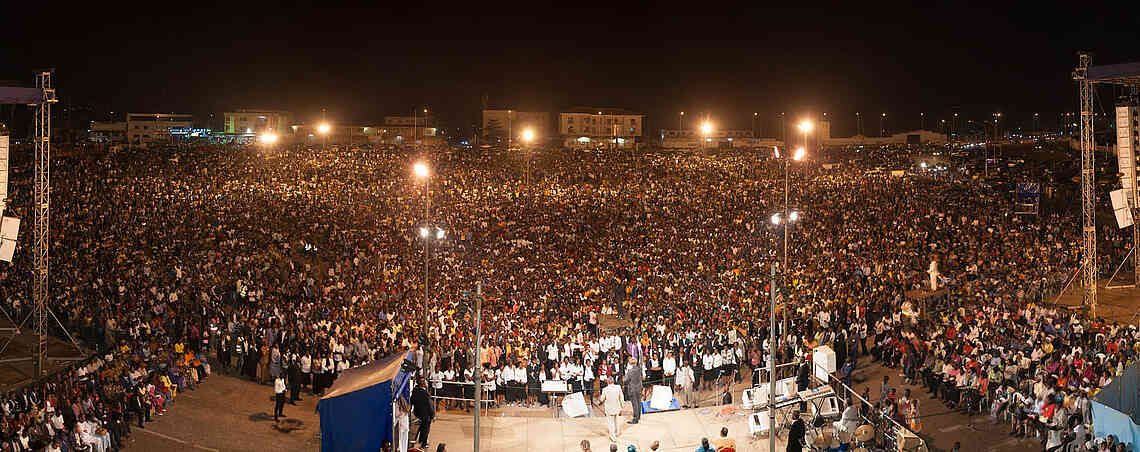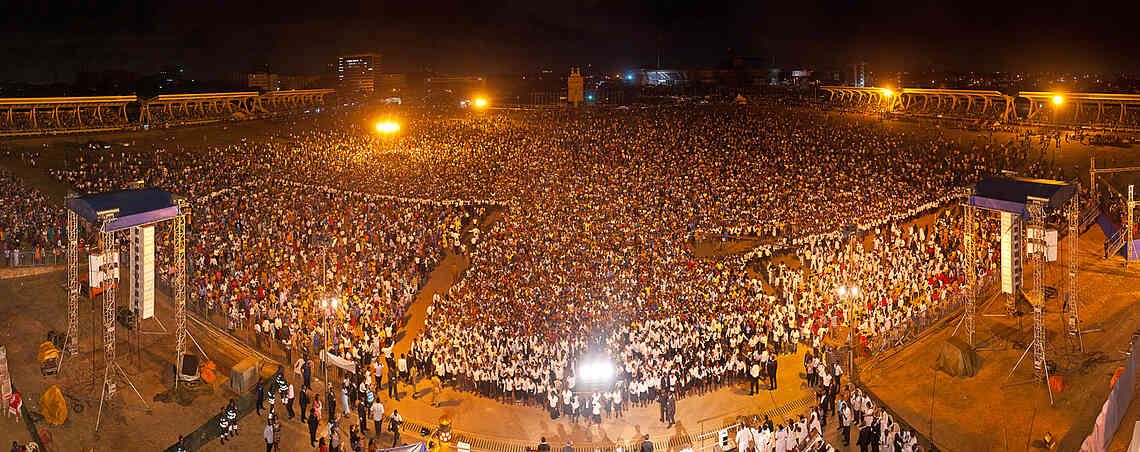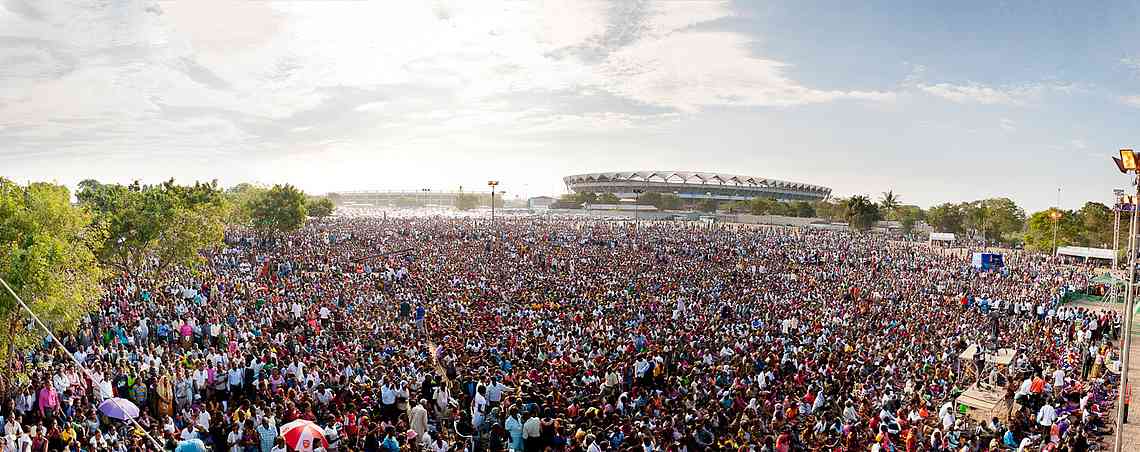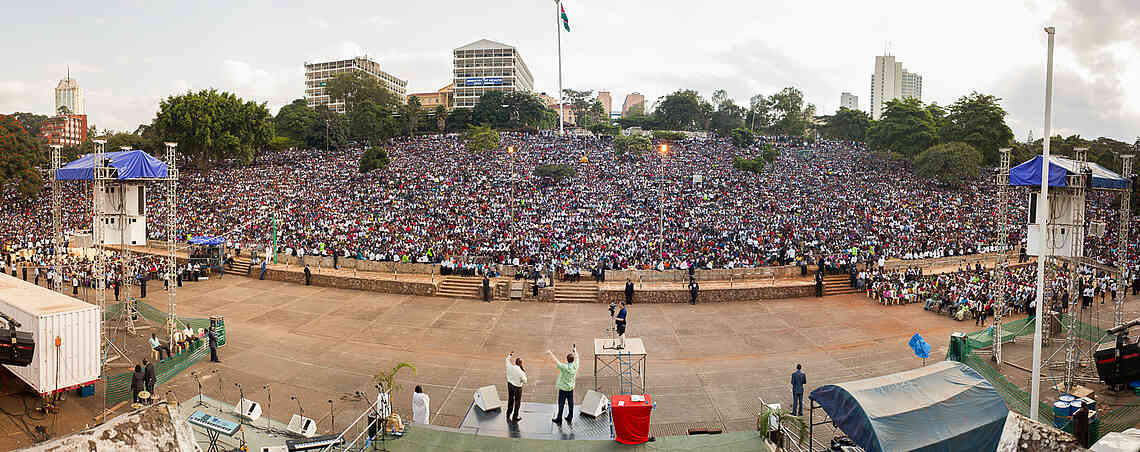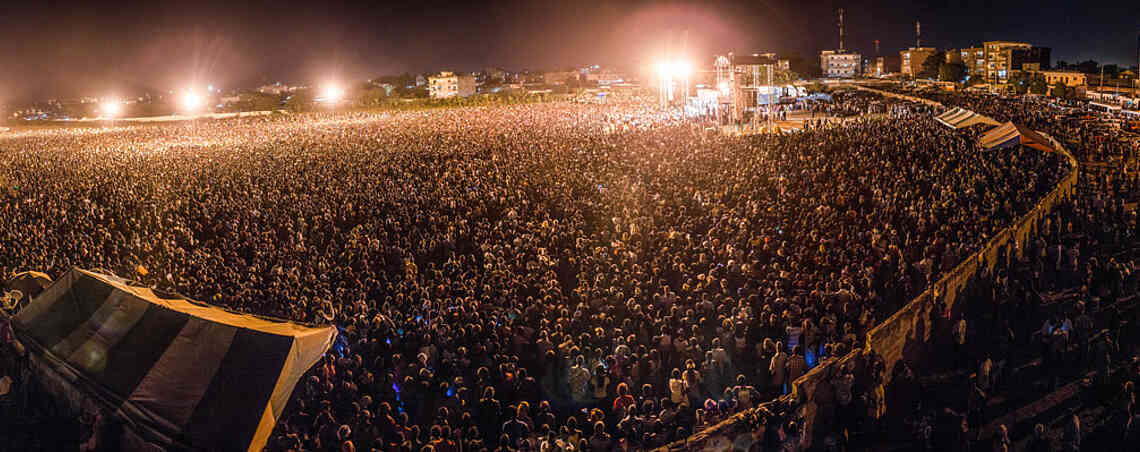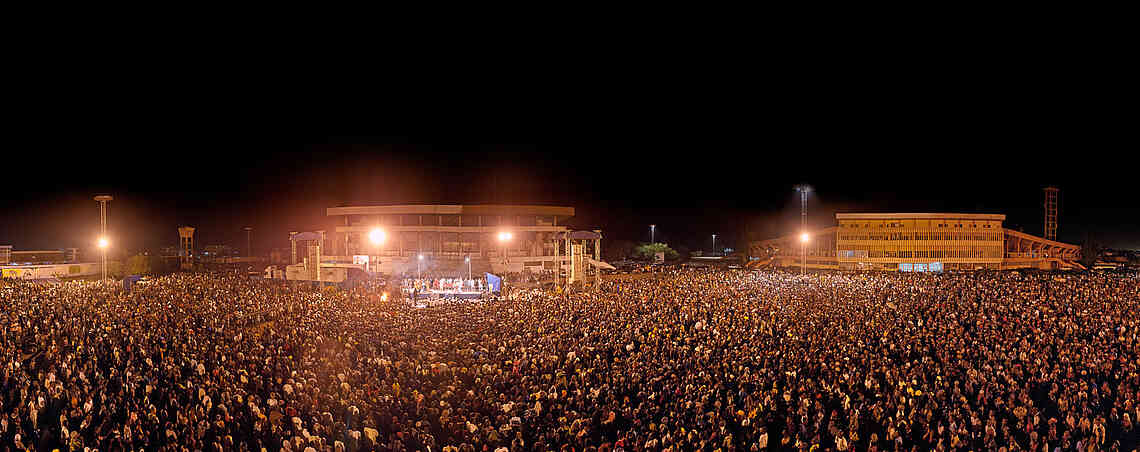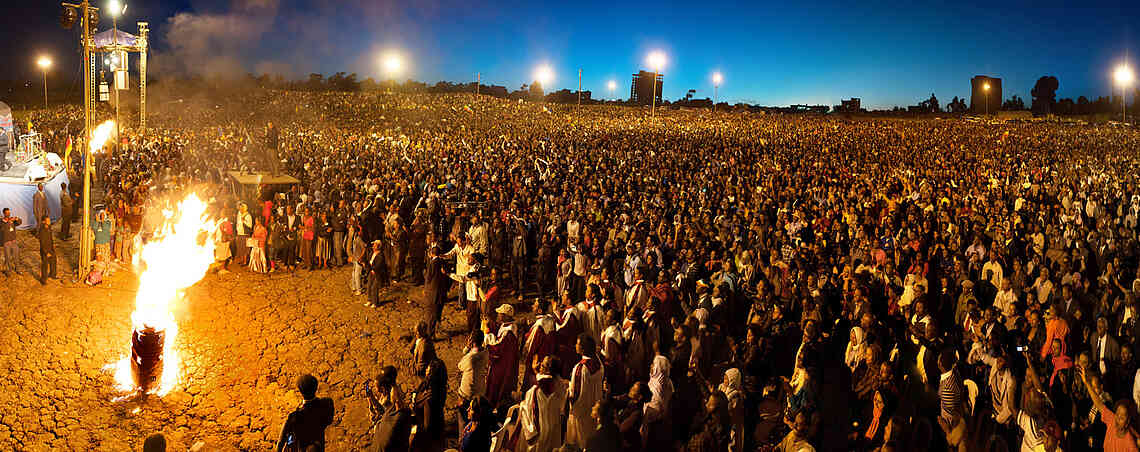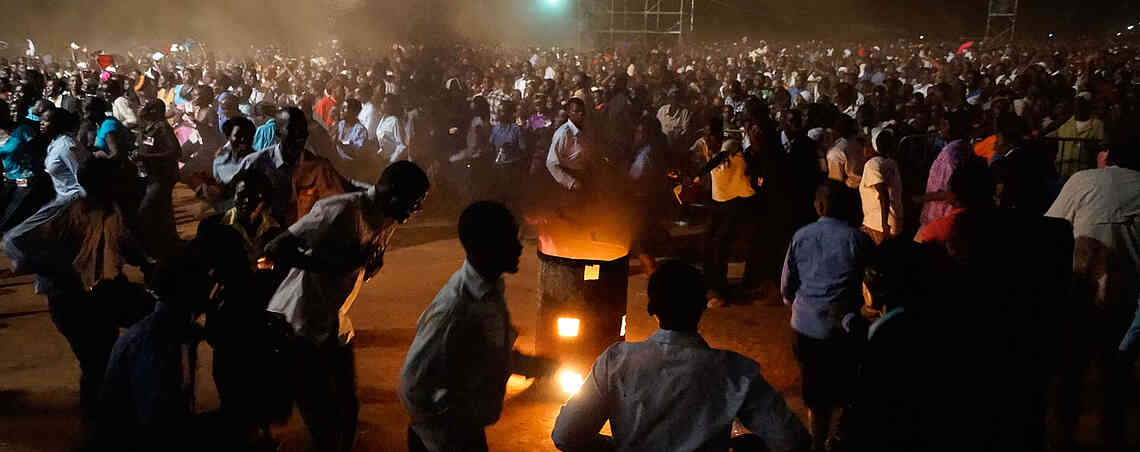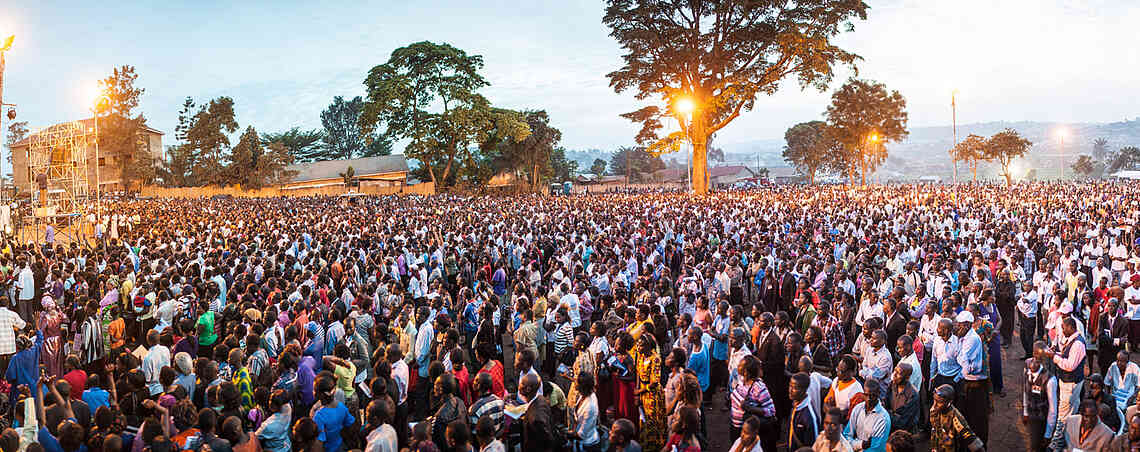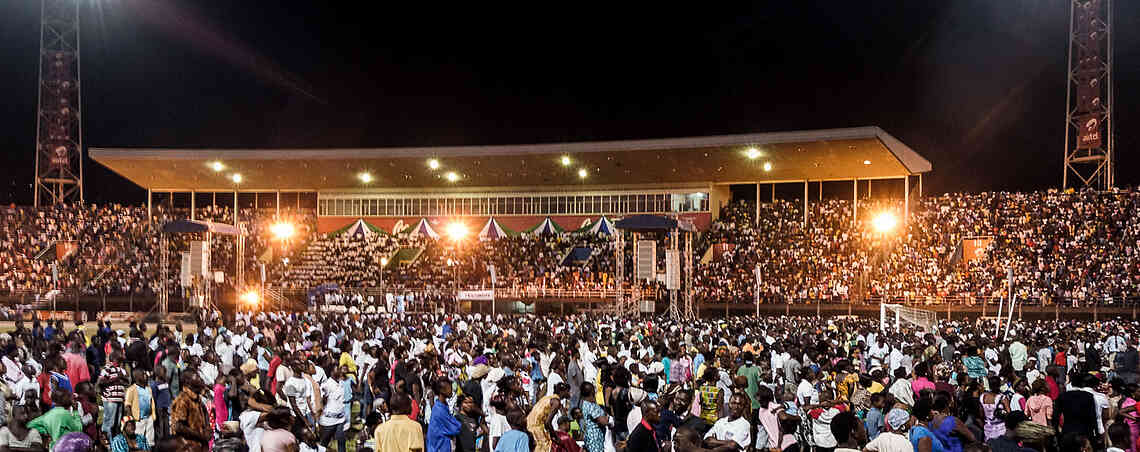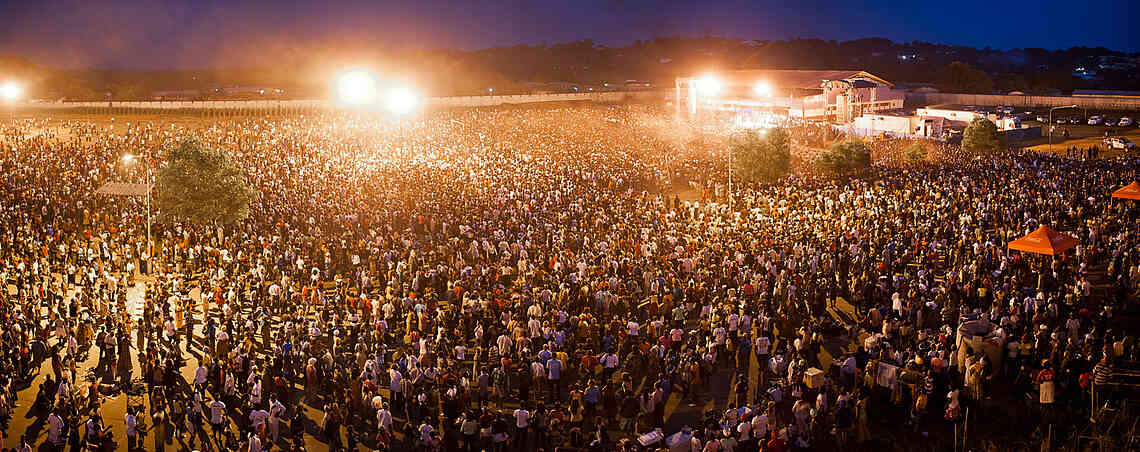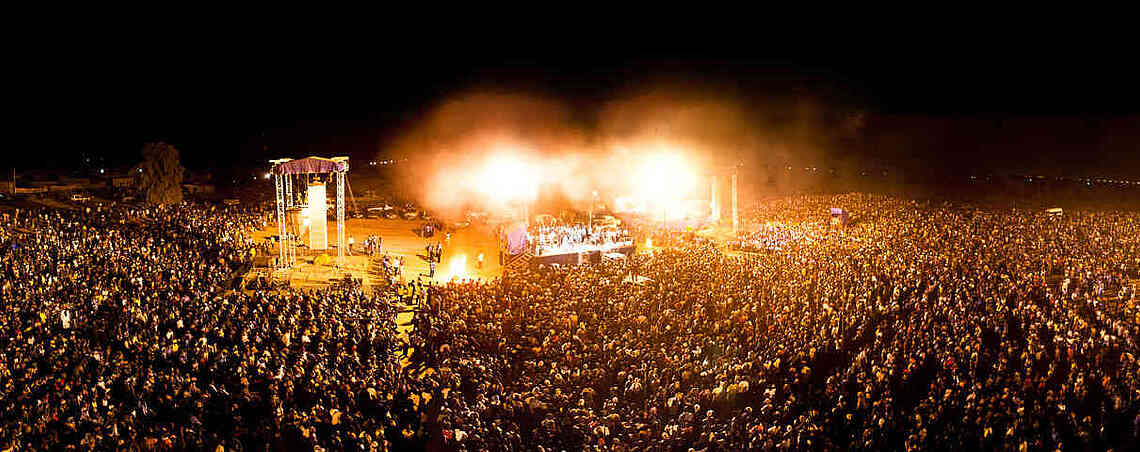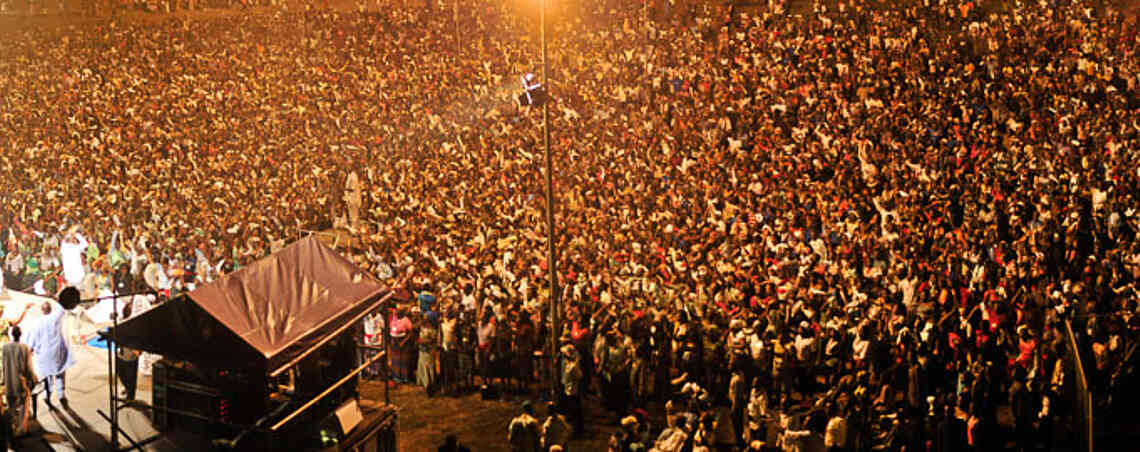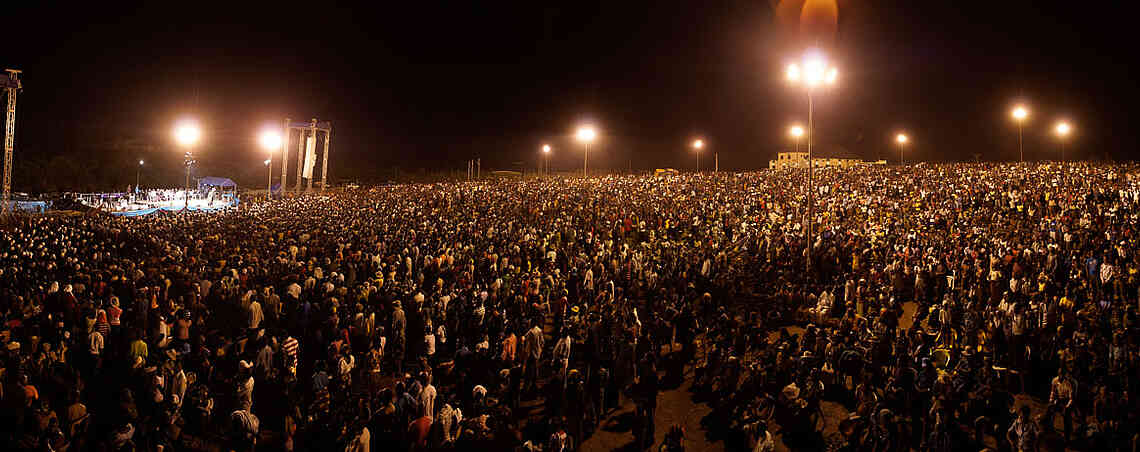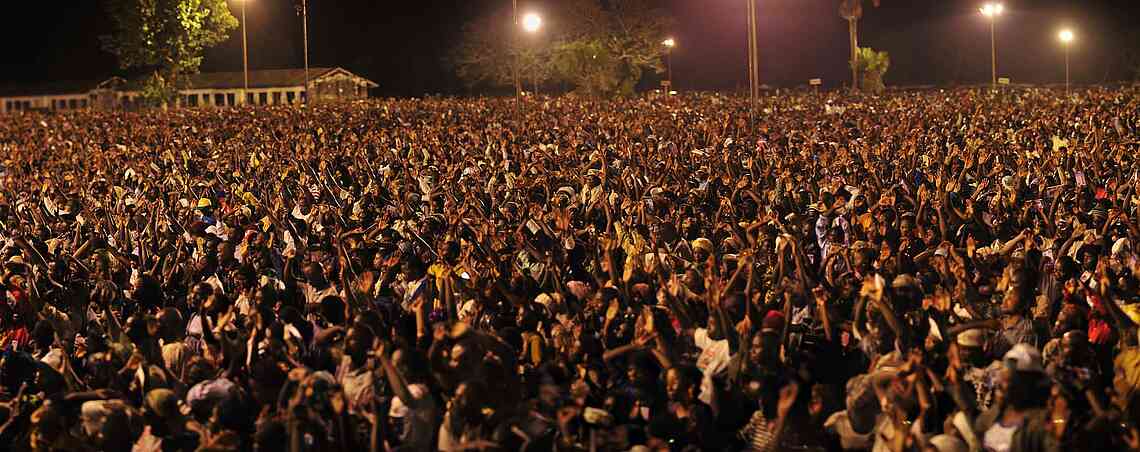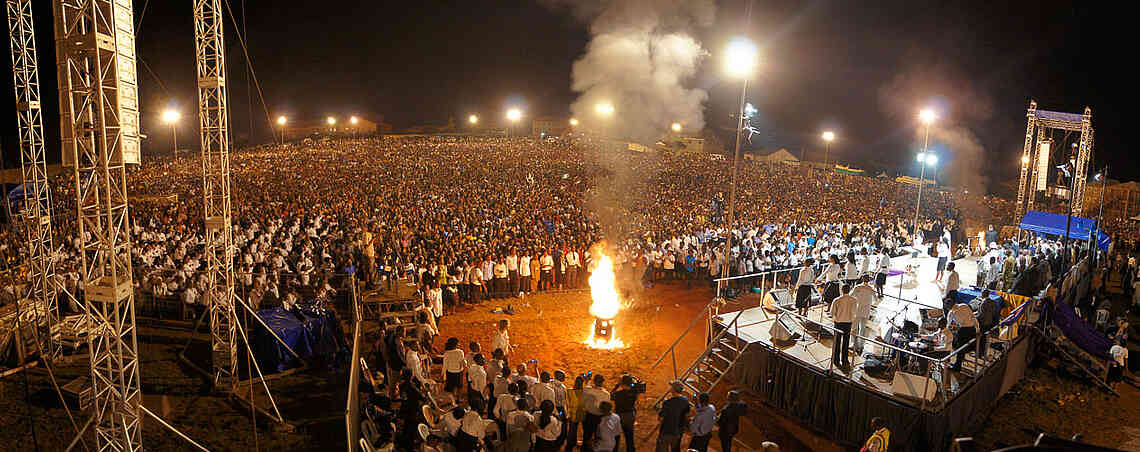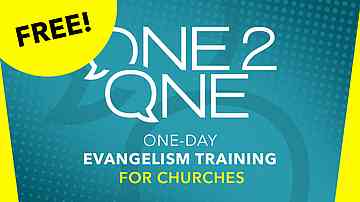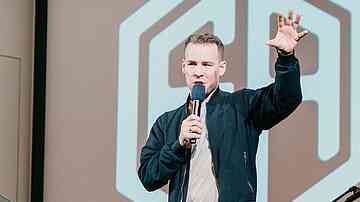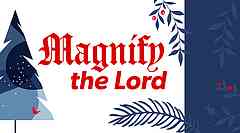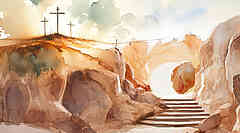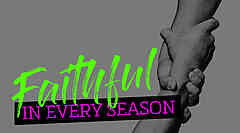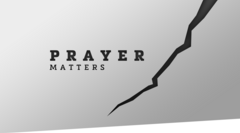
In the Middle of Nowhere
When Fear Turns into Firewood
It happened about ten years ago in southeastern Nigeria. At very short notice, the authorities revoked the previously granted permission for our Great Gospel Campaign venue at a prominent location. Instead they moved us to a very remote place - in the middle of nowhere. Nevertheless, the CfaN team decided to take on this special challenge, trusting the Lord.
When our trucks arrived at the site, John Darku met us with a small local crew he had recruited. As required on any suitable field for such an event, there was a partial clearing that naturally formed something like an amphitheater on the banks of a river. All we needed to do to set up our platform, generators, camera stands, and sound and light towers, was to clear the underbrush and remaining trees. Our containers and temporary barriers would form a secure backstage area.
We had not seen any sizeable population center within fifty miles. None of my crew had ever heard of this place, and it was not located on any map.
“John, will we draw a crowd here?”
“They will come. Look at these who are already curious.”
I looked around. Indeed, dozens of people were timidly watching us from the trees. Many had probably never seen a white man. Most of them had never ventured beyond the routines of gardening, hunting, and bartering with neighbors.
“There are many more where they came from,” said John. “They will spread the word. We have advertised in the entire region and now we are broadcasting the new Campaign site. Believe me, they will fill this field. You’ll see.”
John had never steered us wrong before. But in this case, I had some serious doubts.
After walking the open area and calculating the work to be done, I realized the two reasons why the state had given us this site. First, a witch doctor’s house stood in the center of the audience area. And second, a sacred grandfather tree stood in the best place for the platform. The huge, gnarled tree was said to have grown on this site for centuries. I could believe it. I admired the natural wonder of this living giant— but wonder and worship are two very different things. Locals, on the other hand, had placed dozens of small fetishes and votive offerings around the base of the trunk in hopes of appeasing the spirits in the tree.
“How will you deal with this?” John asked.
“Let’s start by meeting the witch doctor,” I replied.
We took an interpreter and approached his house. It was a typical mud and wattle hovel with a thatched roof located in a cluster of wild ground bushes. There was no door, and the opening required one to stoop almost double to enter. The interior was shrouded in blackness except for a small flame burning in an oil dish. The air coming from the door smelled of strange herbs and rotting flesh. I knew the explanation of the smell. Many fetishes were made of animal parts packaged in weird combinations of gut bindings, roots, bones, and gourds.
Through the interpreter, I asked the witch doctor if he would please consider moving his house for our crusade. The answer was no. He explained that his grandfather had established this practice near the sacred tree and that the land belonged to the spirits. We were not welcome and should find another site. He never came out of the house to speak with me.
Honestly, I had expected this response. The witch doctor surely felt threatened by a spiritual power he knew to be hostile to all that he practiced. More than that, we were invading the heart of his centuries-old power base – the field with the sacred tree. As we unloaded the equipment we noticed the witch doctor and some of his assistants scurrying about on the site. A local worker told us they were burying witchcraft fetishes in order to disrupt our meetings.
I decided that the most strategic place for the preaching platform was in front of the sacred tree facing the witch doctor’s house. We broke out the power saws and cleared the small trees that obstructed our position. This noise drew even more curious onlookers and the usual number of locals who wanted to use our cuttings for firewood. Out of courtesy, I sent word to the witch doctor that we were keeping the platform a full 40 feet from his sacred tree.
After completing this task, Boafo and the crew pitched camp. We sat around a bonfire listening to praise and worship music on the truck speakers, then retired for the night.
In the morning I awoke refreshed and could smell bread baking and fresh watermelon being sliced. As usual, I jumped down the truck to join my men around the fire for breakfast.
“Did you hear the crash in the night?” Boafo asked.
“No.”
The men laughed. My capacity to sleep through Armageddon had become an inside joke. Boafo pointed behind me. I turned. My jaw dropped to my chest. The sacred tree that had stood for centuries had suffered a catastrophic collapse in the night. Its trunk had split vertically from some incredible force, and several tons of water-rich timber had plunged to the earth, leaving a stump of jagged remnants standing where the tree had been only hours ago.
“See how it fell?” Boafo asked. “If it had fallen on the platform it would have crushed it completely. It fell away from it.”
I turned around. “Men, this is the hand of God. He is changing the spiritual powers that have dominated these people. Think of it. The odds of a centuries-old tree falling the same day we began to set up for Gospel meetings are beyond calculation.”
“Yes,” Boafo added, “and we were not even scheduled to be here until they canceled the previous location.”
Kwesi said, “Something good is happening here.”
As I walked over to inspect the tree, I saw that the entire field was now surrounded with curious forest people who had heard of the disaster. One of our local crewmen warned me that they were becoming angry, believing we had cut the tree down with power saws. In fact, they had heard our power saws the day before as we cleared the smaller trees near the platform. The people would naturally believe that we had attacked the sacred tree.
Incredibly, I saw a number of cell phones among the forest people. How times were changing, even in this remote region. The people were dialing the phones, and word was spreading like a wildfire. I knew that the situation could turn violent if I did not proceed with caution, so I sent one of the Land Rovers to the nearest city to bring the state government representatives to confirm the truth. We had not cut the tree down, and I wanted the official record to confirm it.
Meanwhile, I had hired a local Caterpillar operator to scrape the brush and trees from the site. I sent him to begin at the far reaches of the field near the river. The process of clearing the land would take the better part of two days. I could see about a half dozen tall palm trees on the plot, and I instructed the operator to clear around them and leave them standing. Their trunks would not obscure the crowd from viewing the platform, and they looked elegant with their tops spread against the sky.
By mid-afternoon the state official arrived in a black Mercedes. He got out wearing dark glasses and a three-piece suit. I showed him how the tree had fallen of its own accord. He agreed with us that the evidence was clear. Not one saw mark could be found on the trunk of the tree. I asked the official if he would please defuse a ticking bomb and confirm these facts to the witch doctor, who had made his living from the tree.
“Look around the clearing, sir. These people have lived here for generations under the witch doctor’s spell. If they think we have cut down the sacred tree, we will be in great danger.”
The official agreed, and we drove across the now cleared ground to the witch doctor’s house. Coming to the door we called for him, but there was no answer. The forest people crowded around closer, watching everything we did. Boafo handed me one of our large flashlights, and I handed it to the state official. Switching it on, he removed his sunglasses, stooped down, and crawled into the hut. After several minutes he emerged and handed the flashlight back to me, dusting off the fabric of his fine black suit.
“I will send an ambulance to remove him.”
“He is sick?”
“No, he is dead.”
I felt a wave of amazement sweep over me. My next thought was that the people would not only believe that we had cut the tree down; they might also believe that we had killed the witch doctor.
“Is there blood with the body? Did he commit suicide?”
“I see no evidence of foul play, but I am not an expert. He is just lying on his sleeping mat, cold and dead. I think he died in his sleep.”
My concern now was for the safety of the upcoming crusade. “Would you please make an announcement to these people so they will understand that he died of natural causes? Please let them know that we had nothing to do with it. You can really help us here.”
He agreed. He gathered a group of bystanders and explained, in their native tongue, what he had found at the tree and in the witch doctor’s hut. The people seemed deeply disturbed by the news, which was understandable. I prayed for more wisdom in dealing with their feelings.
“Sir,” I asked, “is there a tribal chief over these people?”
“Yes. He rules from a village a few miles from here.”
“Would you please visit him on your way home and ask that he come and see what has happened here? These people need to have someone they trust tell them the truth. They will not believe us.”
“I will make a stop on my way back to my office.”
Late in the day, most of the field had been cleared. An amazing crowd of perhaps 20,000 people now surrounded the site watching everything we did. Some were setting up makeshift camps, preparing to stay for days and witness the entire showdown. For them, this conflict amounted to a spiritual Super Bowl.
An ambulance drove across the field to the hut, and the body of the witch doctor was loaded on a stretcher. The ambulance attendants did not bother to cover the body with a sheet, and several onlookers crowded close to see for themselves. I was glad for this development because I wanted them to see that he had not died from any kind of violence.
As the stretcher was loaded into the ambulance, a man carried by four slaves on a throne beneath a sunshade emerged from the forest. Obviously this was the tribal king. He wore a headdress of ivory animal tusks and shells, and two heavy necklaces in ochre and ivory. His long robe was black muslin with a richly embroidered pattern of green and gold braid. Behind him followed four women decorated in ochre-colored netting that draped their heads and shoulders. I assumed they were wives or concubines.
The chair was carefully deposited next to the ambulance. The king rose while the four slaves prostrated themselves in the dirt and the women bowed on one knee with their faces to the ground. The king came slowly forward to inspect the body. He had a few words with the ambulance attendants and then sat again in his chair.
The four slaves rose from the ground and hoisted the chair to their shoulders. The procession moved on to the sacred tree where, again, the ritual was repeated. As the king carefully inspected the fallen giant, I was grateful to see a few cell phones among the forest people. I presumed they were sending out reports of this action. After the inspection, the king and his attendants disappeared again into the forest. I hoped that he had concluded that we were not the problem in this scenario.
I stood on the platform surveying the field where the people would stand. I estimated that we could accommodate perhaps 250,000 people with the field cleared as it now was. We needed more room, and the room we needed was between the witch doctor’s house and the river. The campfires burning around the field, and the multitude of watching eyes, told me that my next decision would affect an entire culture. I began to feel as if the earth was turning beneath this nameless plot of land.
The next morning Boafo and I took the Land Rover and visited the state official in his office some fifty miles away. I asked if the witch doctor had any legal claim to the land where his house stood. The answer was no. He and his ancestors had been squatters, answering to no rules but their own. The land laws had emerged between the tribe and the state. But both the state and the tribe had been limited by the people’s bondage to the witch doctor. I then asked him the extent of our rights under the contract we had signed with the state. He said that we had legal right to clear the land completely. I thanked him and returned to the task, certain of my course. This was a war that was already won. It was time to go forward on the ashes of that victory.
My Caterpillar operator was across the field, in the process of smoothing out the dirt he had exposed with his blade. He was packing it down and making it safe for foot travel. I drove up to his machine, and he came down to speak with me.
“I want you to bulldoze the witch doctor’s house into the river.”
The man nearly froze with fear. “I will be killed by the spirits.”
“No, no, you won’t. We are here representing Jesus. We are preaching salvation through Him, Who delivers you from all the power of the devil and his puny little demon spirits. The tree has fallen, the witch doctor has died. You have nothing to fear. You can do what I ask.”
But fear was all over him. He shook his head and walked away, crossing his arms resolutely. I followed. “Okay, I have another idea. We will set the Caterpillar in a position with the blade down and start it moving toward the house. You will jump off and let the Caterpillar do the work of removing the residence.”
“You don’t understand. I make my living with that Caterpillar. The witch doctor said it would explode into flames if we did anything against him.”
“Nonsense. The only power the witch doctor has ever had is the power to make you afraid of him. Your Caterpillar will not burst into flames.”
He shook his head resolutely. “I cannot risk it to do this thing.”
“Very well,” I said. “I will risk it. I will buy you a new Caterpillar if this one explodes or breaks down or if anything bad happens to it.”
He looked at me and looked again at his beat-up old Caterpillar. I could see the mental wheels turning. He might get a new Caterpillar out of this deal. “Okay, I will set it in motion and leap off if you will buy me a new machine.”
“Agreed.”
As we set up the Caterpillar, I looked up and couldn’t believe my eyes. The crowd around the field now amounted to about 30,000 people. They were on their feet and had come forward, standing shoulder-to-shoulder several rows deep to watch us. I silently prayed that God would open their eyes to the truth of God’s victory over Satan.
As the Caterpillar blade hit the house, it crumbled into an awful cloud of choking dust. I could see the people in the crowd cringing, fearing that the earth would open up and swallow the entire field, or that the dozer would burst into flames. But nothing of the sort happened. The Cat continued churning toward the river.
“You better catch that machine,” I said to the operator. “I won’t replace it if you let it fall in the river.”
The driver raced off across the field to catch the slow-moving machine. As he did, an amazing sight began to emerge from the cloud of dust behind it. The ground beneath the witch doctor’s house was now littered with human skulls and bones and a treasure trove of money. A literal pirate’s fortune lay exposed on the ground amid the human relics. These were the wages of fear and superstition.
I watched the crowd to see who would be first to reclaim a piece of their soul from this pit of filthy lucre. Not one of the forest people made a move to claim any of the exposed money. One of my local crewmen told me that the witch doctor had told them that his money would catch fire in the pocket of anyone who stole it from him. I was amazed to see that even after this demonstration, these people were still bound by fear and superstition.
The sun was going down, and I decided to leave all the money and bones exposed through the night. Perhaps some of the locals would become brave enough to pick up a few bills and coins under the cover of darkness. The next morning, all of the money and paraphernalia seemed unmolested, exactly where they had been the night before.
I told the operator to dig a hole in the center of the field and bury the skulls, bones, fetishes, and money in the pit. He did so and smoothed over the top until nothing could be seen. We now had one more day before the meetings began.
In the meantime, the crowd camped around the field had grown to nearly 50,000 people who visited the river to fetch water, bathe, and do laundry. They had set up a village, complete with markets for trade and barter. Cows, goats, and chickens were slaughtered and traded. Cooking fires burned brightly at night, but no one approached the fallen sacred tree to use its limbs for firewood. Everyone seemed to be waiting for the main event—the arrival of Reinhard Bonnke for the preaching of the Gospel.
Nearly 100,000 people stood shoulder-to-shoulder in front of the platform as the meetings began that first night. The field was lit to the riverbank by our generators and light and sound towers. I smiled to see that the place where the witch doctor’s house had stood was a mass of upturned faces, eager to hear the message of salvation. Suddenly, the sky split open. A bolt of lightning struck a tree on the perimeter of the meeting site. Then a torrential rain descended on everyone. Reinhard was soaked to the skin, his umbrella stripped and shredded. Still he held to the microphone and continued to preach even as the wind swept some of the sound monitors from the stage.
After twenty minutes the rain passed and we saw a tremendous response to the Gospel. Blind eyes were healed and miracles demonstrated God’s power to the crowd. The joy of a Gospel of love, light, and life stood in sharp contrast to the grip of fear and superstition that had held these people until now. Over the five nights of preaching, 870,000 people stood on the field where the witch doctor’s house had once dominated the landscape. We registered 527,810 decisions to receive Jesus as Savior.
As the final night of the crusade began, the tribal king came out of the forest, carried on his chair, to greet Reinhard. His entourage led a pure white cow as a present to the man of God. Once again, as the king rose from his chair to come to the platform and address the crowd, his bearers lay face down on the ground while his wives knelt before him. Reinhard greeted the king and let him speak. In his native tongue, the king told Reinhard that the crowd was expressing gratitude to the man who had brought the message of love, forgiveness, and restitution. Reinhard accepted the gift, and the king remained to witness the preaching and the miracles that followed.
The next day, it took us until evening to dismantle the equipment and stow it in the containers for the next meeting. We worked with the local crew as usual to accomplish this task. Finally, at nightfall we finished our work and decided to stay the night before driving toward Lagos. At daybreak we ate a cold breakfast and prepared to leave the field. Boafo, Kwesi, Friday, Stephen, Mike, and I joined hands to thank God for the great victory He had given us over the enemy in this remote land. As we prayed, the sound of chopping began and increased in volume.
Boafo nudged my shoulder and pointed to the fallen tree. Several groups of locals had come out of the forest with hand axes. They were chopping the branches of what had once been their sacred tree. No doubt these small gestures were the first blows any of them had ever struck against the superstition that had oppressed them for generations.
We climbed into our caravan. Putting the Iveco into six-wheel drive, we began to slowly move the seventy tons of evangelistic equipment onto the long road home. As we passed the downed tree, we waved at the people working there and were happy to see them wave back to us with smiles and real joy.
“I love it when people turn fear into firewood, don’t you, Boafo?”
“I love it too, Boss.”
A chapter from the book, By Life or by Death,
by Winfried Wentland


